











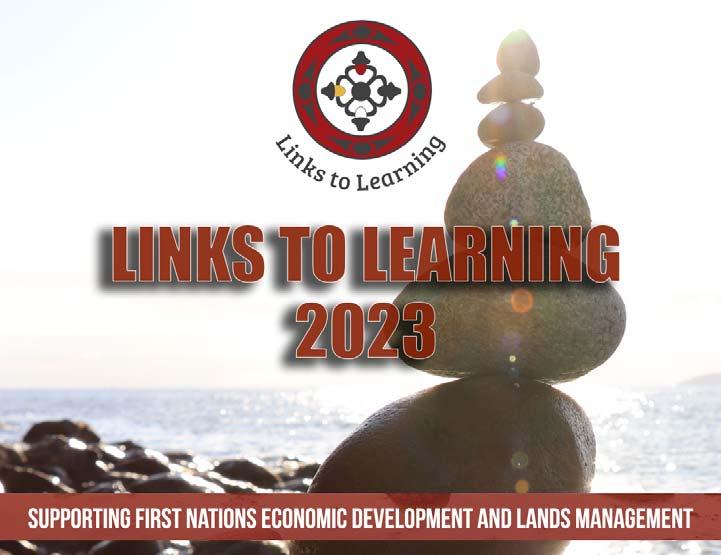














Cando is pleased to announce the recipients of the 2022 NIEEF Scholarships. Starting in 2022 Cando will increase the scholarship program to 6 awards at $3,000 each. A total of $18,000 was made available to post-secondary Indigenous students studying in the fields of economic development, community development, finance, accounting or business administration. Profiles of the NIEEF scholarship recipients begins are pages 06–11.
Cando was proud to deliver the 5th Annual Economic Development Youth Summit as an in-person event at Grey Eagle Resort on Tsuut’ina Nation (west of Calgary) from August 8 – 11. More than 45 youth delegates from communities throughout Canada were successful applicants and were invited to attend.
For more please turn to pages 14–37.
Cando is excited to announce that the 9th Annual BC Links to Learning event will be in person at the Westin Bayshore Hotel in Vancouver from January 31 to February 2, 2023. Invitations will be sent to all BC First Nation communities so that one EDO and one lands manager can be supported to attend.
For more infoprmation including registration, please visit www.links-tolearning.ca
The Links to Learning Webinar Series has continued through the fall and winter. Cando will continue to deliver skills development opportunities for its members via this weekly series until at least March 31, 2023. The Links to Learning Series delivers content every Tuesday. In addition, a weekly Innovate BC Wednesday Webinar series will be delivered for the balance of 2022. Please visit the www.edo.ca/links-to-learning for a full schedule of upcoming webinars.
A recap of the 28th Annual Cando National Conference and AGM was hosted by the Whitecap Dakota First Nation at their new Dakota Dunes Hotel at Whitecap, Saskatchewan (south of Saskatoon) from May 16 – 19. Conference coverage is found on pages 40–61.
Cando has confirmed that the 29th Annual Cando National Conference will be hosted at Membertou First Nation, Nova Scotia at the Membertou Trade and Convention Centre from June 26 – 29, 2023.
For updated information on the 2023 Cando Conference, please visit: www.edo.ca/conference/
Looking forward to seeing you at Cando’s next in-person event: BC Links to Learning to be held January 31 – February 2, 2023 at Westin Bayshore in Vancouver.

Amber Balan was already making a difference in the world.
But Balan, a 42-year-old Métis woman from Winnipeg, felt she could be doing even more.
That’s why Balan, who had graduated with a nursing degree from the University of Manitoba back in 2012, decided to head back into the classroom.
Balan is now in her final year of studies at the University of Winnipeg in the Master’s in Development Practice (MDP): Indigenous Development program.
“Grad school was always something I wanted to do,” Balan said.
Amber Balan is now in her final year of studies at the University of Winnipeg in the Master’s in Development Practice (MDP): Indigenous Development program.
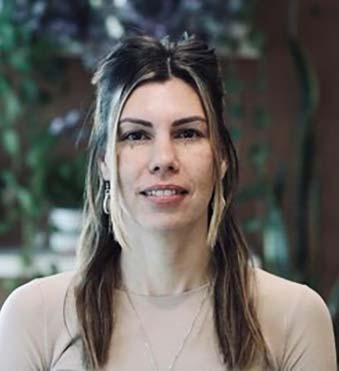 By Sam Laskaris Cando Contributor
By Sam Laskaris Cando Contributor
Though several other universities offer the MDP program, Winnipeg is the only post-secondary school that has its program focus on how Indigenous knowledge and experience can shape a sustainable path for development, rooted in culture and identity.
Balan had worked several years as a nurse at a Winnipeg inner-city urgent care facility. So why the decision to leave her position and return to school?
“One of the main drivers was when I was working as a nurse I noticed a lot of racism and a lot of the policies were not conducive to Indigenous people and marginalized people,” she said. “It just seemed like a broken system.”
Balan believes her current program will better equip her to assist Indigenous people. But she is not quite sure what type of position she will seek after August of 2023, when she has fulfilled all of her degree requirements.
“As long as it relates to Indigenous health or programming and services,”

she said. “I don’t know where it will be. It seems it is still unravelling.”
But she’s not worried about her future career path.
“I feel wherever the Creator needs I’ll be placed,” she said.
Balan is thriving in her current program. In fact, she is one of six individuals from across Canada this year to receive a $3,000 National Indigenous Economic Education Foundation (NIEEF) scholarship.
NIEEF is the charitable arm of Cando, an organization that promotes economic development in Indigenous communities across the country.
“It alleviates a lot of my financial position,” Balan said of her scholarship money.
Balan is no stranger to finding ways to make things work. She is a full-time university student now as well as a single mother of six children (three girls and three boys).
Balan has a 20-year-old son and two other children who are teens, aged 16 and 14. She also has an 11-year-old, a three-year-old and an infant who is one.
“Juggling is a good way to put it,” Balan said of her hectic family and academic life. “What helps is that I have a great daycare at the university.”
Balan’s two youngest children attend the daycare while she goes to her classes.
Needless to say, Balan is loving her current program.
“It seems that it has brought out the best in me,” she said. “I feel really determined and I feel excited about the content. It’s easy to work at it when things are so interesting. The content is so super interesting.”
Daniel Nychuk is following in the footsteps of his sister.
The 24-year-old citizen of the Manitoba Metis Federation graduated earlier this year with a Bachelor of Commerce Honors degree in accounting and finance from the University of Manitoba’s Asper School of Business.
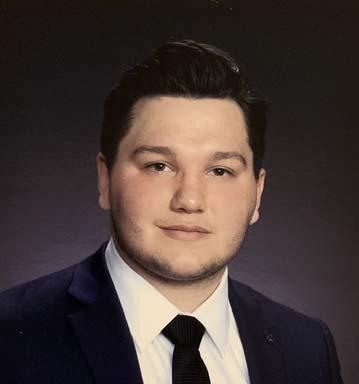
But he’s back in the classroom now as he’s a first-year student in the Master’s in Development Practice (MDP): Indigenous Development program offered through the University of Winnipeg.
“I wanted to take a career path towards Indigenous economic development,” Nychuk said of his decision to continue his schooling.
Nychuk didn’t have to go too far to get some insight into the program. His sister Ali was a program graduate in 2021.
“She let me know about it,” he said. “And she got me in touch with the team that helped out.”
Nychuk commutes to the Winnipeg university from Osborne, the small rural Manitoba town that is located about a 30-minute drive south of the school.
Nychuk said a portion of his transportation costs and some of his tuition fees were covered via the $3,000 National Indigenous Economic Education Foundation (NIEEF) scholarship that he received.
“It meant a lot,” Nychuk said of his scholarship. “It goes a long way to help me through my academic career at the University of Winnipeg.”
Nychuk is already well acquainted with Cando and some of the work the organization does.
This past summer he attended Cando’s Economic Development Youth Summit, which was held at TsuuT’ina Nation near Calgary.
“I got the opportunity to network in person with other Indigenous youth and potential employers that will help me on my new career path,” Nychuk said. “I got to create many lasting relationships within my group as well as with other delegates throughout the week that I still carry with me today.”
Nychuk said he also benefitted greatly from a co-op term while he was at the Asper School of Business. He worked as a transfer payment student through Indigenous Services Canada during this period.
“That gave me the opportunity to go to northern isolated communities in Manitoba,” he said. “And I got to see their economic standpoint.”
During his co-op placement Nychuk visited Bunibonibee Cree Nation, which is almost 1,000 kilometres north of Winnipeg, and Little Grand Rapids First Nation, a fly-in community located near the Manitoba/Ontario border.
Nychuk is hoping he’ll have a position in his future where he will be able to assist various Indigenous communities once his schooling is complete.
“After graduation I hope to continue to work in economic development within Manitoba Indigenous communities,” he said. “I hope to one day be able to be a part of a project that will leave an impact on not my generation but more importantly the generations to come.”
By Sam Laskaris Cando Contributor
Ethan Coe admits he wasn’t much of a numbers guy during some of his teen years.
But Coe, who grew up in Wawa, Ont. and is a member of Odanak, an Abenaki First Nation in central Quebec, certainly has a passion for accounting now.
Earlier this year Coe, who is 20, graduated with a business accounting diploma from Sault College, located in Sault Ste. Marie, Ont.
He’s furthering his education now as he’s attending Algoma University for business accounting. Algoma University is also in Sault Ste. Marie, where Coe now lives with his father.

Coe opted to continue with virtual learning.
His academic efforts have been rewarded as he was chosen as one of the six recipients this year for a National Indigenous Economic Education Foundation (NIEEF) scholarship.
Each winner received a $3,000 prize. The scholarships were presented by the foundation, which is the charitable arm of Cando, the national organization which promotes economic development in Indigenous communities throughout Canada.
Ethan Coe graduated with a business accounting diploma from Sault College, located in Sault Ste. Marie, Ont.
By Sam Laskaris Cando ContributorCoe aspires to eventually become a certified accountant.
“At first I wasn’t interested in accounting,” he said. “During high school there was an accounting class that I took and I really enjoyed it.”
Coe’s introduction to accounting was via a Grade 11 course. He also took a Grade 12 accounting class the following year.
And then he moved to Sault Ste. Marie to live with his father Sean and attend Sault College.
Because of the COVID-19 pandemic, Coe took all of his college classes online.
“It was much more easier for me,” he said. “I just find it better (to learn remotely).”
Coe added it did take some time for him to adjust to remote learning.
“I have had to rework how to learn and maintain focus during this time but have persevered throughout and maintained a good GPA,” he said.
Though he had the option to attend in-person classes at Algoma this year,
Coe said his scholarship money will go towards his tuition and the purchasing of books. His tuition fees are about $3,000 per semester. And it cost him about $600 (U.S.) to buy the required textbooks he needed for his first semester this academic year.
Coe added his Algoma University textbooks are all online and have to be purchased through an American website.

Coe also has some advice for those students who are seeking financial assistance at the post-secondary levels.
“I heard in high school that a lot of scholarships went unclaimed and I didn’t believe it,” he said.
Besides his NIEFF scholarship, Coe received three others this year.
“There’s a lot of scholarships that do go untouched,” he said. “There’s multiple websites you can go to and find different scholarships. And the school has been a big help as well in finding them.”
Besides becoming a certified accountant, Coe is also thinking of teaching his passion to others.
“I’m interested in teaching students how to do basic accounting,” he said.
Jessica Boucher-Cowie realizes that she has been rather fortunate.
“I’m lucky to have a very supportive family,” said Boucher-Cowie, a 27-yearold Métis woman who is in her final year of studies in the Master’s of Development Practice (MDP): Indigenous Development program offered through the University of Winnipeg. “I feel I have been given a lot of opportunities that maybe others may not have been granted.”
Boucher-Cowie plans to put her good fortune to use and assist others. Especially Indigenous people.
She already has one university degree under her belt. She earned her undergrad degree in international development and conflict resolution, graduating from the University of Winnipeg in 2020.
Getting into her current MDP program was no easy feat.
“It is a competitive program,” she said, adding her cohort has 10 students. “I think they have a few hundred applicants every year.”
Winnipeg’s MDP program is considered even more prestigious since it is the only one globally that has a focus on Indigenous development.

Upon earning her Master’s, BoucherCowie is planning to enter the workforce. But she also already has her eyes set on furthering her education even more.
“I’m hoping to secure some full-time work,” she said. “And I wish to pursue a PhD. I would like to do that part-time if my circumstances allow.”
Boucher-Cowie has a passion for Indigenous rights, sovereignty and economic advancement. She would love
to land a job where she can assist fellow Indigenous people.
And ideally, she would prefer to do that in her hometown of Winnipeg.
“There are a lot of needs in urban areas,” she said. “I think I would be most comfortable in staying put (in Winnipeg).”
Besides being one of the lucky few accepted into her Master’s program, Boucher-Cowie was also one of six individuals selected nationally to receive a National Indigenous Economic Education Foundation (NIEEF) scholarship this year.
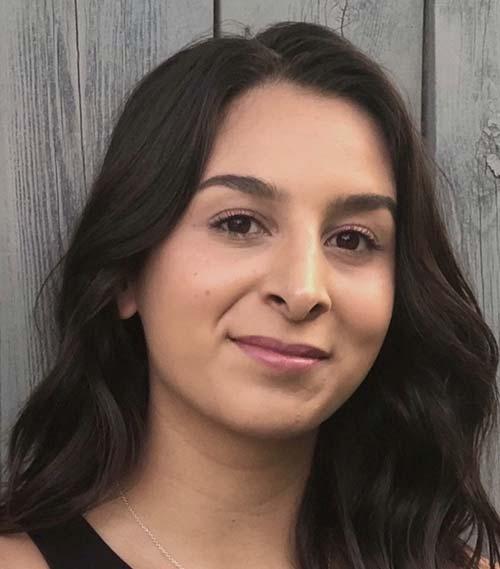
Each scholarship recipient received a $3,000 award.
Boucher-Cowie obviously welcomed the news she was receiving some financial assistance with the scholarship.
Her annual tuition alone costs $22,000.
“It helps me a lot,” she said of her NIEEF scholarship. “It makes my living expenses and tuition a little more palpable.”
In order to be eligible for a scholarship, students must also be studying in a certain field. The options include business administration/ economics, business finance, business management, natural resources or community economic development.
Boucher-Cowie is obviously pleased that financial assistance is available, including the funds provided via her NIEEF scholarship.
“Opportunities like this provide the support necessary to pursue higher education and are integral to my continued success in achieving my personal and career goals,” she said.
By Sam Laskaris Cando ContributorNathan Breitenbach moved more than halfway across the country to continue his post-secondary education.
But Brietenbach is confident his decision to do so will not only benefit himself but countless other Indigenous people as well.
Breitenbach, who is 28, is currently studying at the Shannon School of Business at Cape Breton University (CBU). He headed to eastern Canada in 2021 after beginning his postsecondary studies a couple of years earlier at the First Nations University of Canada (FNUNIV), where he was working towards an arts degree that majored in human justice.
He plans to graduate from CBU in 2024.
industries,” he said. “Of course, our goal is to create our own Indigenous sovereignty and by more Indigenous students getting their business education will help create a better and clear path for the future.”
Breitenbach was thrilled to be one of the 2022 NIEFF scholarship recipients.
By Sam Laskaris Cando Contributor“There were personal reasons as to why I left the FNUNIV to attend CBU,” he said of his decision to leave his Regina school after two years and head to Sydney, Nova Scotia to further his studies. “But ultimately it was because I wanted to be in a business program. CBU offers an amazing program with amazing opportunities. Not to mention the over-all class sizes went from an average of 80 students a class down to 20-25.”
Breitenbach is also one of the lucky few to be awarded a $3,000 National Indigenous Economic Education Foundation (NIEEF) scholarship this year. There was a total of six NIEFF scholarship recipients this year.
“As an Indigenous person, I believe we need to see more Indigenous individuals with business degrees to help them tackle western and colonial
“It meant the world to me,” said Breitenbach, a member of Zagime Anishinabek First Nations in Saskatchewan. “Coming from a lowincome family, university wasn’t really a question for me. I knew there was a possibility because of being Indigenous, but even then, the chances can be slim to get approved for funding. I was denied funding my first year of university from my reserve, so I had to seek financial support from outside the reserve.”
Though he still has a long way to go, Breitenbach is planning to attend law school after earning the degree he’s currently working on.

“The NIEEF scholarship was placed in a savings account to help me save for the expenses of law school,” he said.

Breitenbach is hoping to eventually put his law degree to good use, which includes helping his own people.
“My plan is to work with Indigenous communities in Nova Scotia, while of course trying to help my own communities back in Saskatchewan where I am from,” he said. “As an Indigenous person working towards their degree and wanting to be a future lawyer, I hope that I can help future students work towards a path that’ll get them educated and working for their community.”
News that she had won a $3,000 scholarship was indeed welcome news for Wynonna Inez Smith.
Smith, who is 34 and is a single mother of an eight-year-old daughter named Zophia, is one of this year’s six recipients of National Indigenous Economic Education Foundation (NIEEF) scholarships.
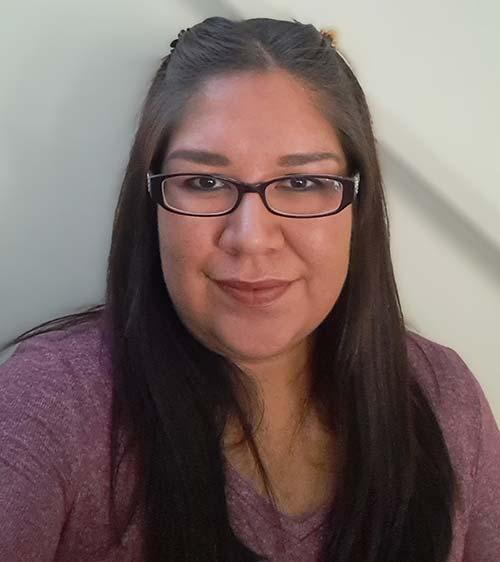
Smith is currently in the Psychology and Indigenous Governance Business Management (IGBM) combined degree program at the University of Lethbridge.
Thus, receiving some financial assistance via her scholarship was a blessing.
“Prices are rising,” Smith said, adding her increased expenses have included larger grocery bills and costlier gas. “It’s been difficult financially for any single parent.”
Students with Indigenous ancestry that are currently enrolled in full-time studies at a post-secondary school in Canada are eligible for NIEEF scholarships.

In order to apply for the scholarship, individuals must also be studying in one of the following fields – business administration/economics, business management, business finance, natural resources or community economic development.
Smith is a member of Piikani Nation in Alberta through her mother Gertrude. And she said she’s also a member of a First Nation in Browning, Montana through her father Wilbert.
Before transferring to the University of Lethbridge, Smith had completed a general studies psychology and sociology diploma from Lethbridge College in the spring of 2021.
“It’s been very educational towards Indigenous stuff,” Smith said of her current IGBM program, adding she had never studied much about Indigenous life before, including simple things like how treaties were made.
But her university program is certainly expanding her knowledge, including being taught extensively on various Indigenous issues.
“It’s kind of opened up a whole new world to me,” she said.
Smith, however, acknowledges she is not taking all of the courses that she would like. Since she is a single mother, she is only able to take university classes that are offered between 9 a.m. and 2 p.m. That way she is able to take her own daughter to and from school.
“There are some pretty good classes that are not in my timeline,” Smith said. “It’s kind of difficult because of that.”
Smith added she is hoping that courses that do appeal to her will be offered in the future during times that she is available attend.
Smith began taking University of Lethbridge classes in September of 2021.
“I had no idea which direction to take for education,” she said. “But I know I want to help my people back home. Continuing in psychology, I want to pursue the study of Indigenous psychology. I feel Indigenous peoples along with non-Indigenous peoples can share the learning and awareness of Indigenous psychology in a doctrine of reciprocal understanding.”
“This is the journey I am on and I am anxious to gain so much more knowledge to help myself and teach my eight-yearold daughter as well as my people,” she said.
By Sam Laskaris Cando Contributor
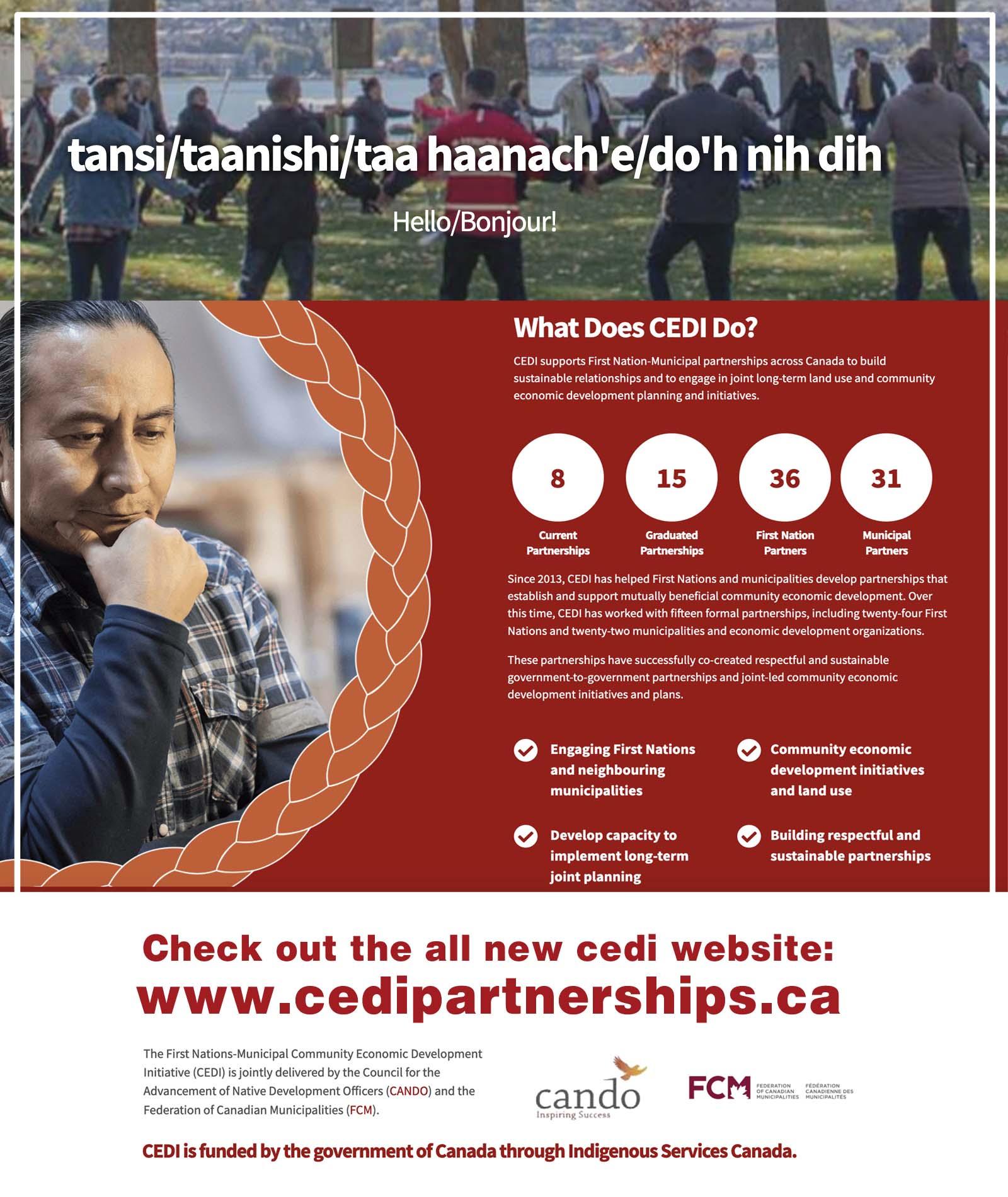
The 2022 Economic Development Youth Summit was hosted at Grey Eagle Resort on TsuuT’ina Nation (west of Calgary) from August 8-11. The 5th Annual youth event returned to in-person after two years of being virtual.
All selected youth delegates were provided with free travel (to and from the event host hotel), meals and accommodation – thanks to the generosity of the event sponsors!
Each year Cando receives 150+ applications, but only 50 youth are invited to participate – as selected by our event Steering Committee and organizing team.
It’s not the first 50 applicants, but the 50 that best demonstrate how they are suitable to be selected a delegate. Show us why we should choose you to be a delegate!
Applicants are encouraged to show why they should be selected.
The 2022 Economic Development Youth Summit is designed for First Nations, Métis, Inuit and non-Indigenous youth from across Canada within the ages of 18-30 yearsof age. The Youth Summit promotes the field of Community Economic Development and the role of Economic Development Officers to youth.


All invited youth must not have attended the previous Youth Summits (2018–2021). Cando wants to ensure that a maximum number of Indigenous youth have a chance to participate.
Youth are grouped into teams and then are given a Case Study to evaluate. Teams learn throughout the week and apply what they’ve learned in order to develop a compelling Strategic Economic Plan that they present to a group of judges. Winning teams are awarded prizes!

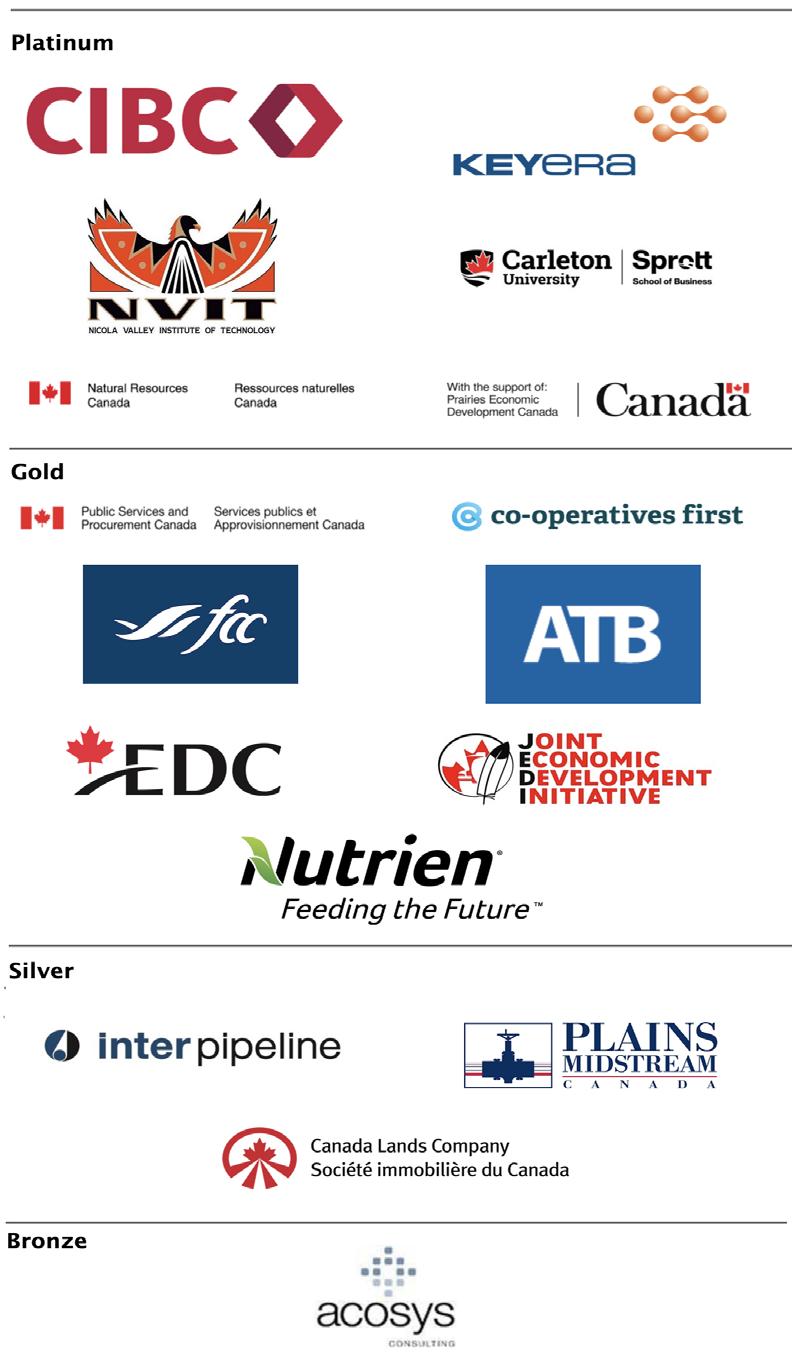
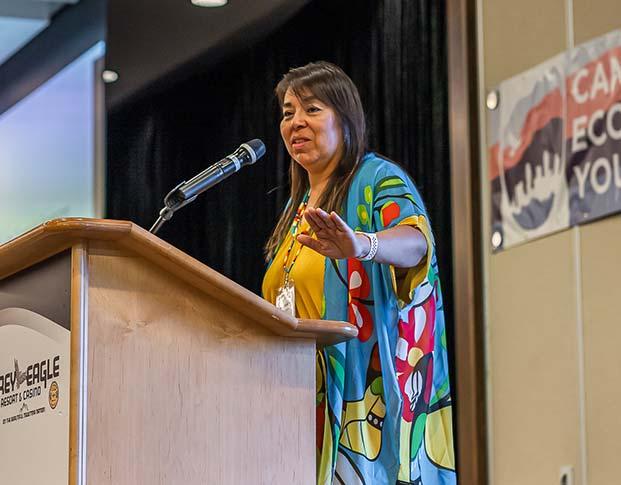

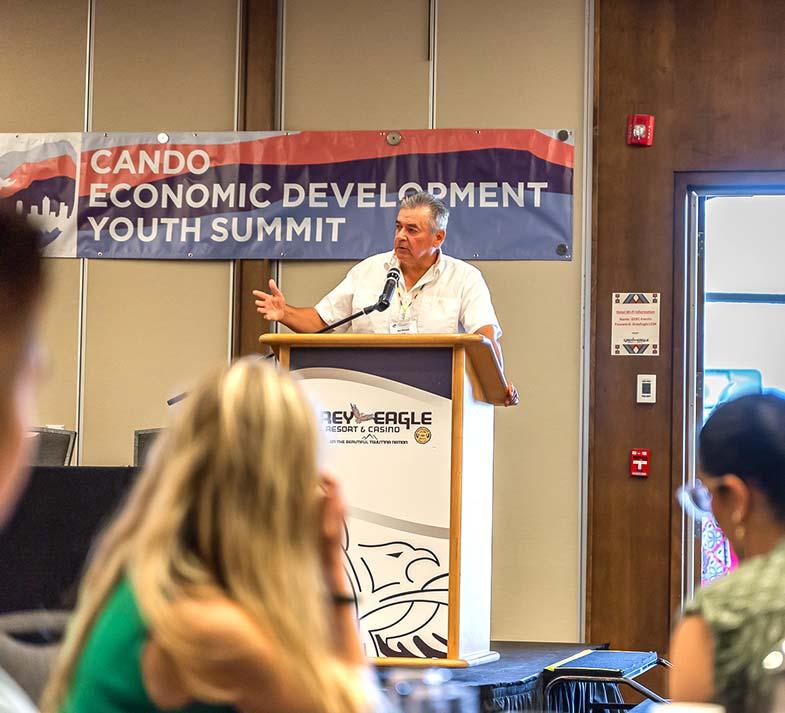




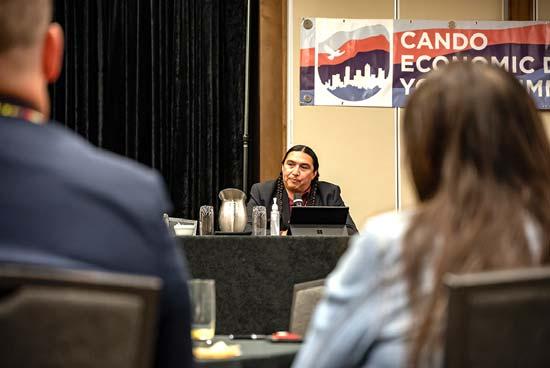
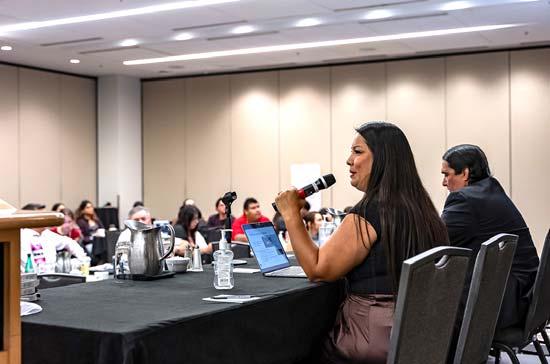

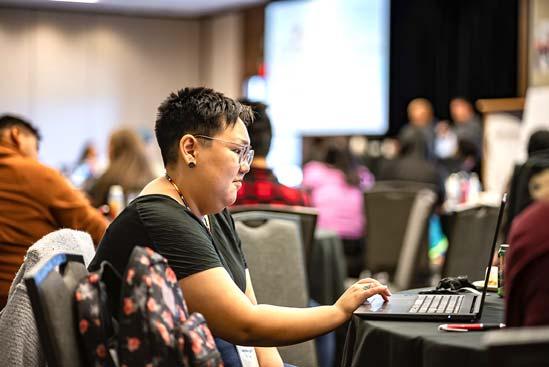

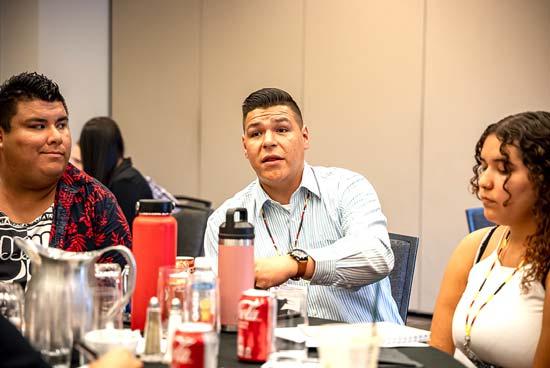

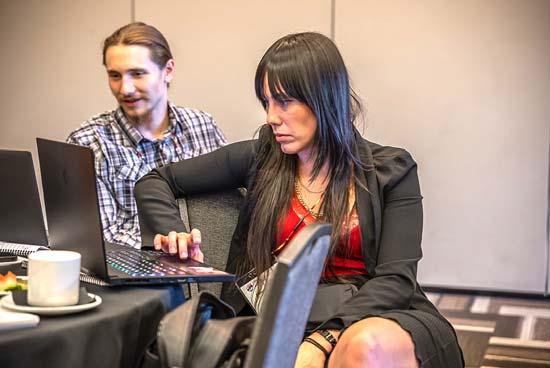
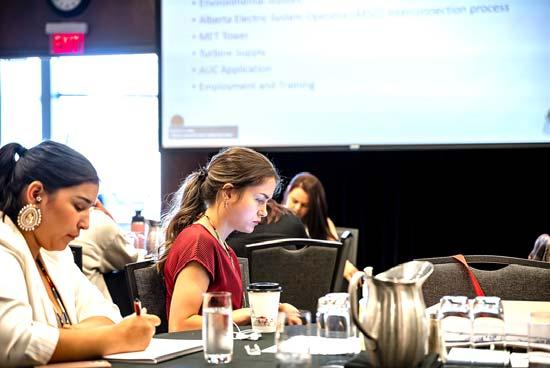

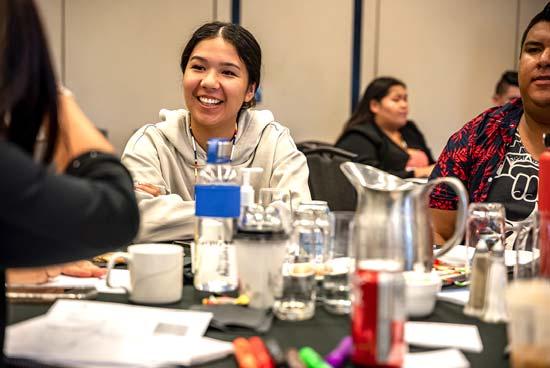



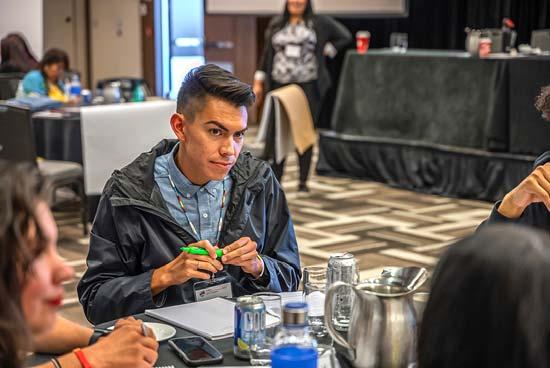
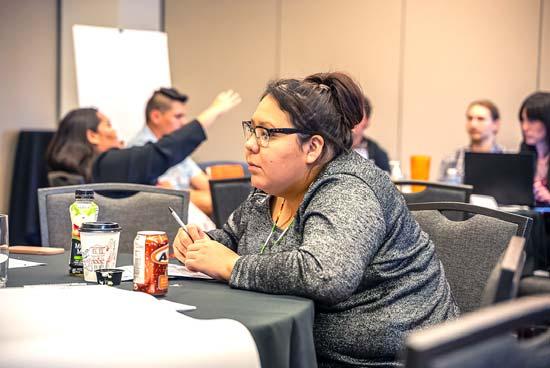
Natural Resources Panel: Catherine Peltier (standing), Sr. Advisor, Indigenous Affairs, CMMP, Lands and Minerals Sector and Michelle Vello (seated), Policy Analyst, Indigenous Affairs, CMMP, Lands and Minerals Sector with NRCan welcomed delegates and introduced some of the resources available through NRCan for economic development officers and Indigenous communities. Michelle also presented on current employment opportunities with NRCan.


Entrepreneurship Panel: (left to right) William Vu, Senior Relationship Manager for Indigenous Financial Services, ATB; Riel Houle, owner and operator of Pale Horse Tipi Camp; Payne Many Guns, owner of Niitsitapi Company; and Bobbie Racette, Founder and CEO of Virtual Gurus. Each of the panelists discussed their experiences with entrepreneurship – postive and not-so-positive. They discussed access to finance and how that shaped the growth and development of their business.


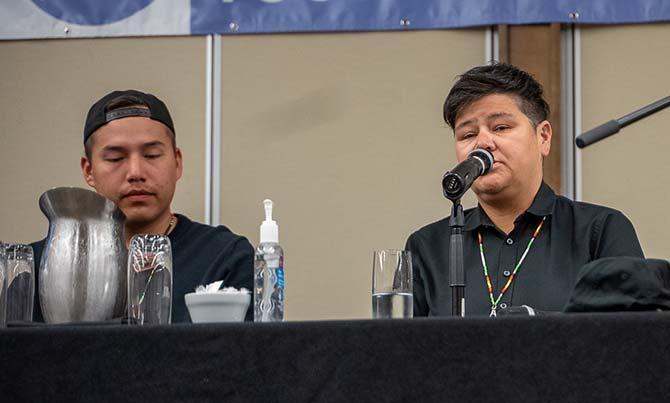

Additions to Reserves: TimDaniels is the Chief Development Officer with Treaty 1 Development Corporation responsible for the planning and re-development of the 160 acre former Kapyong Barracks in Winnipeg, now known as Naawi-Oodena.
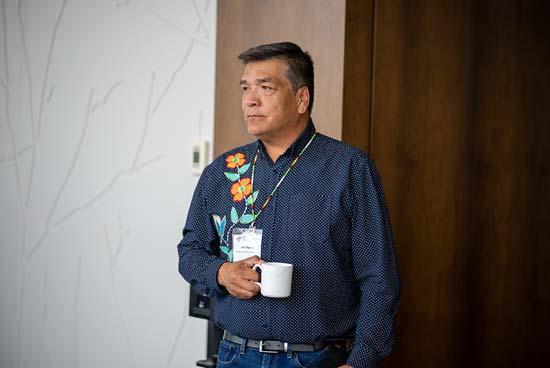

Personal Finance with Amber Strikes With A Gun. Amber is an Associate, Commercial Banking with CIBC and is based in Maskwacis, Alberta. Amber showed delegates the importance of credit and how to utilize it responsibly.


Lands Presentation

(above left)
They showcased some of the technology utilized to survey Indigenous lands. This includes drone imagery combined with satellite imagery and NRCan data to provide incredibly accurate survey information for Indigenous communities exploring development opportunities.




with Jesse James (above left) and Norm Lavallee (above right) who delivered the overview of what the teams were responsible to include in their presentations. Presentations were evaluated on how well they met the Case Study limitations and requirements. Jesse and Norm also hosted the ‘Building a Sustainable and Resilient Indigenous Economy Game’ that was fun for all but also frustrating for some.
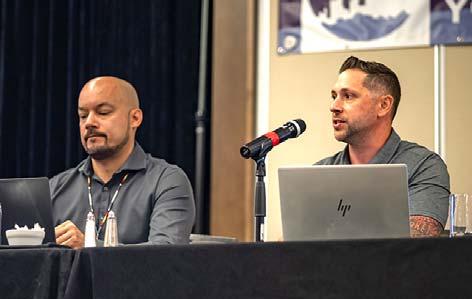
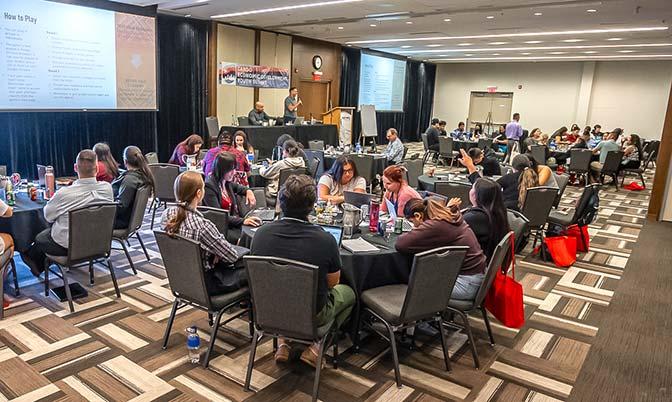
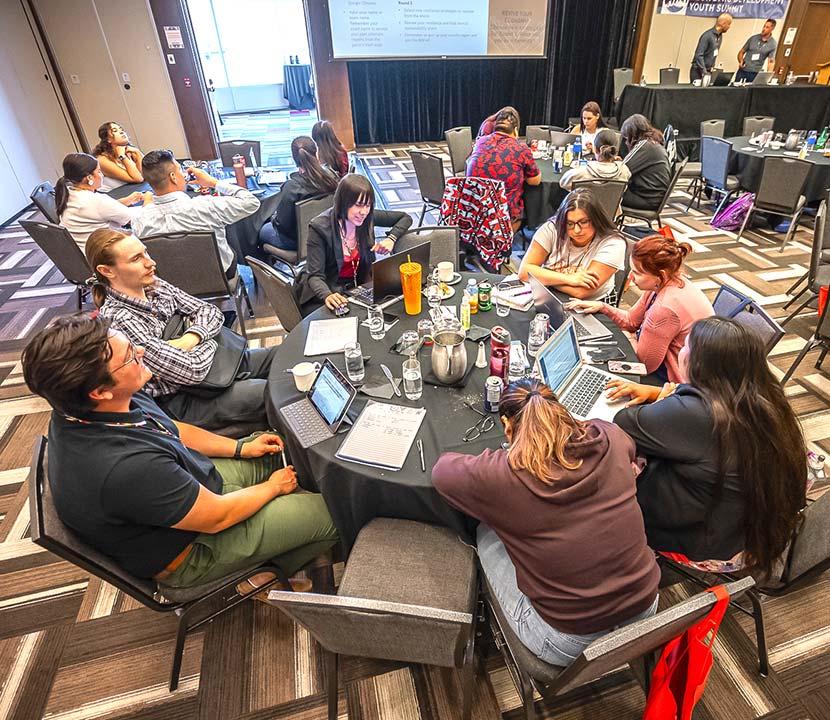


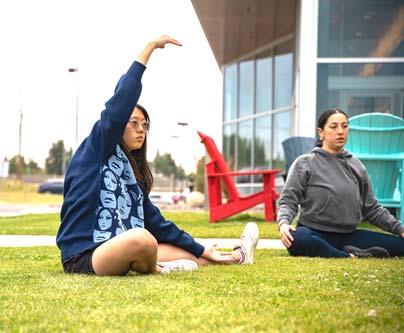
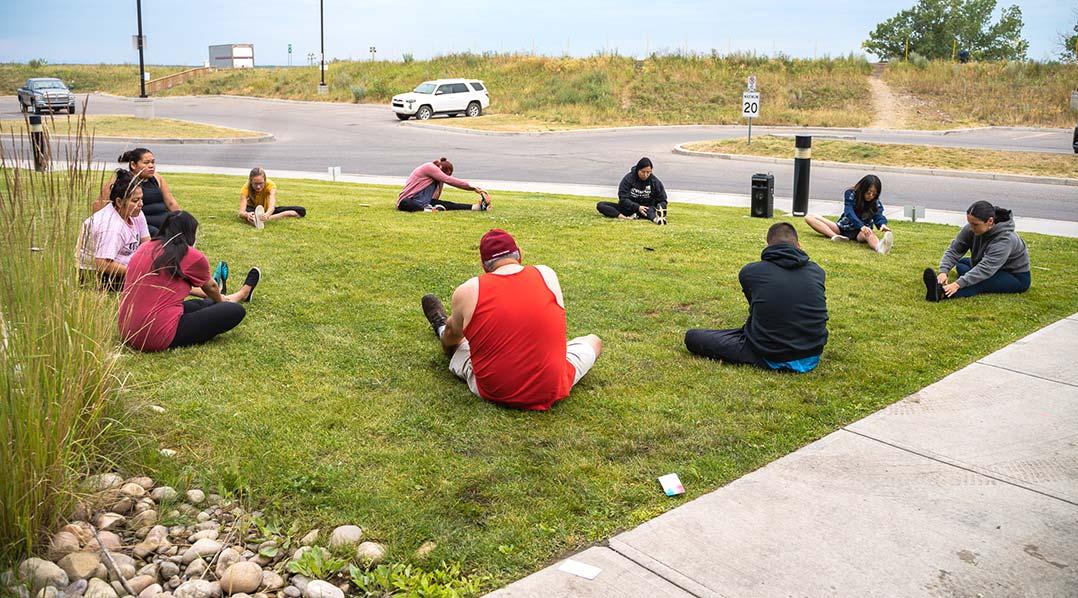
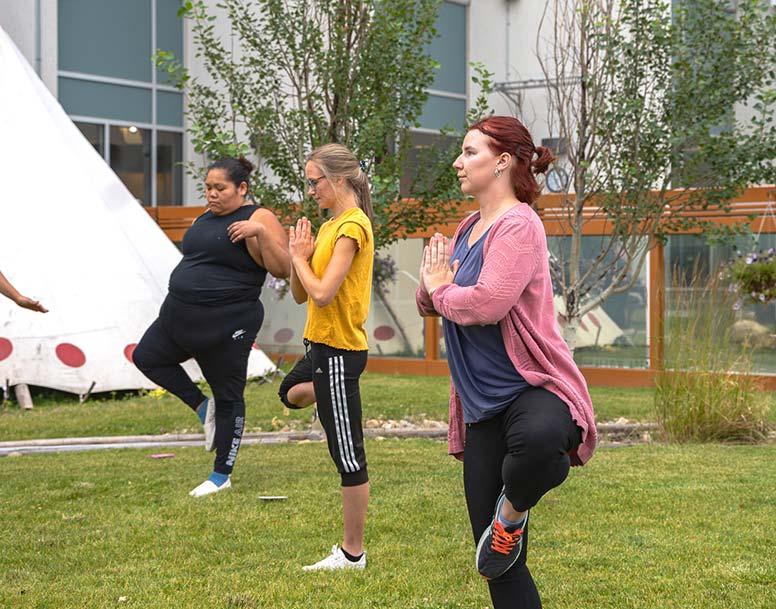

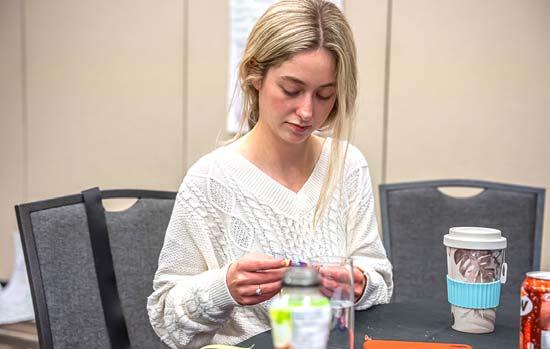
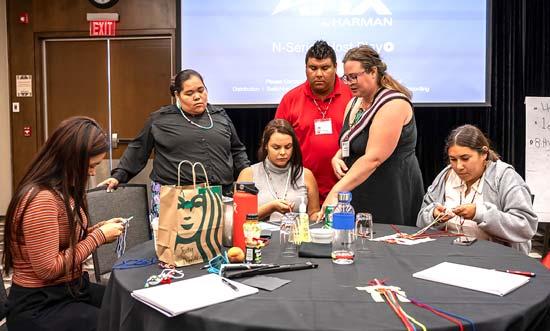

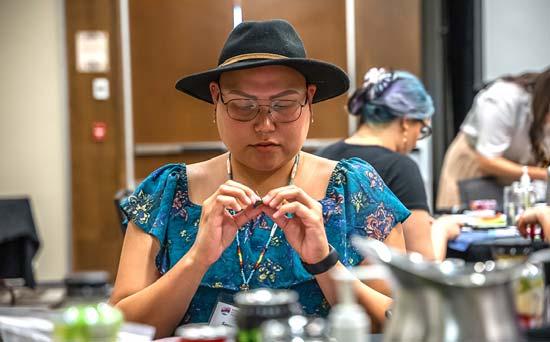


Youth delegates were given the opportunity to choose from several cultural breakout sessions including beading, finger weaving and hand games. It was a great opportunity to learn some cultural traditions and make connections with other delegates. It was also an opportunity to relax and unwind after a busy day of learning.
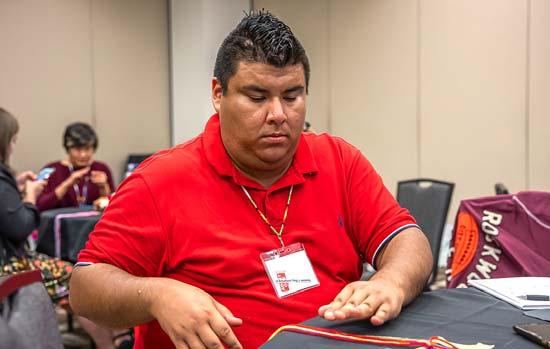
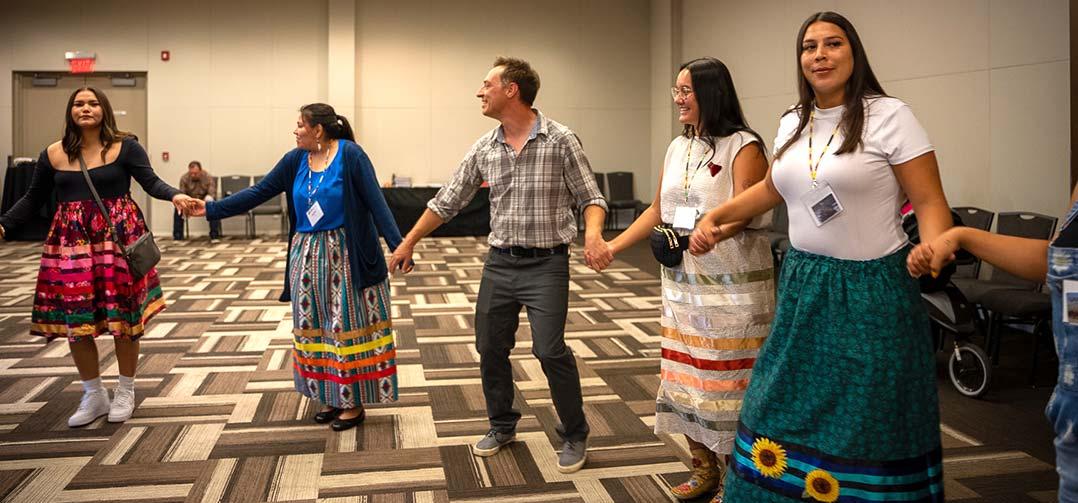

Hal Eagletail(with microphone) in addition to being Co-MC was also the cultural embassador for the event and brought his many stories and insights to share with delegates. Hal also organized the drummers and singers for the EDYS Round Dance on Wednesday evening. It was an amazing evening!

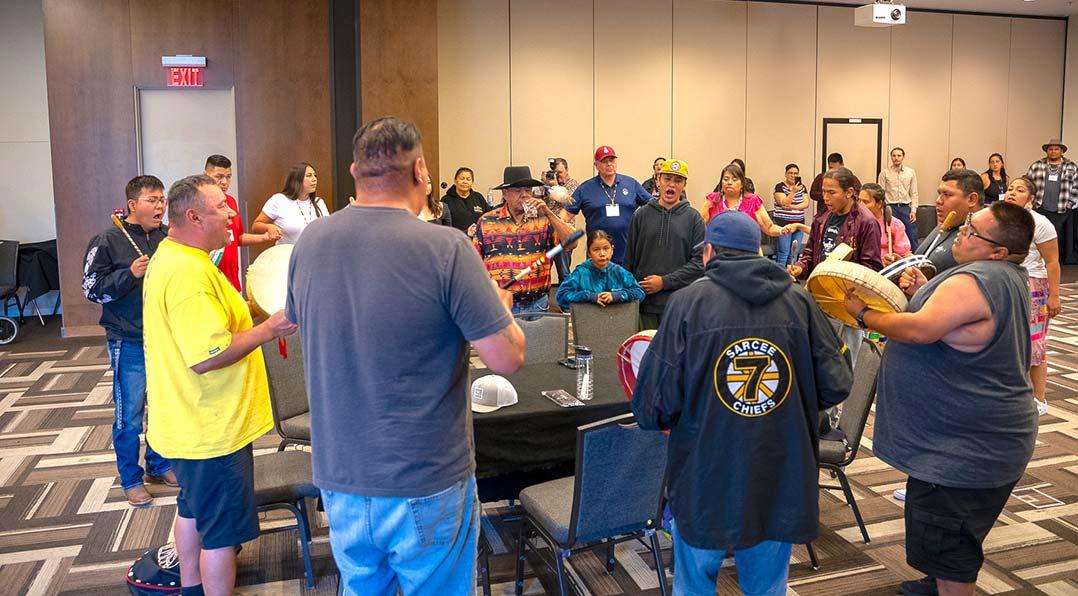
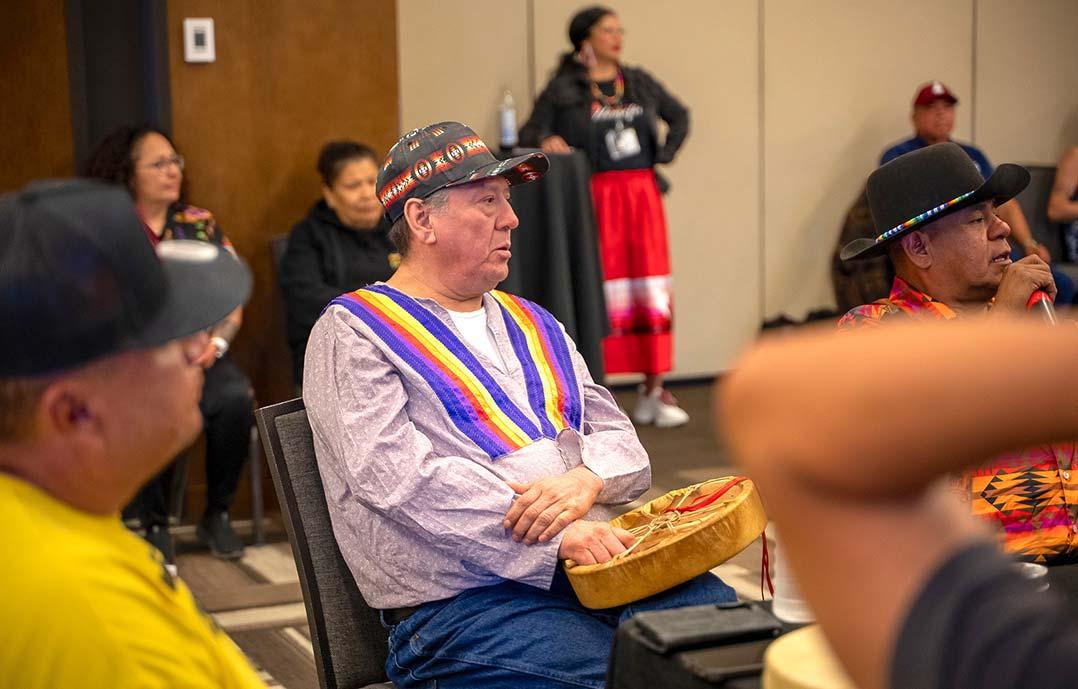

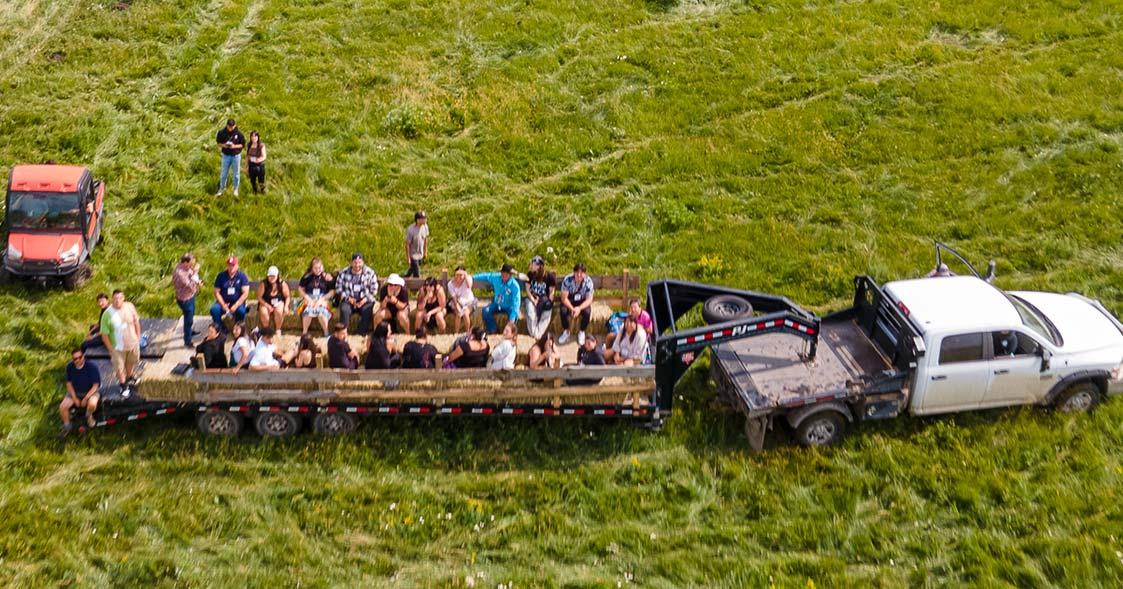

Youth delegates had the opportunity to take an activity and scenery break by leaving the hotel and visiting the Buffalo Paddocks. TsuuT’ina manage a herd of about 425 bisons. Youth learned that several animals are culled each year and are used to feed the community with the bones and pelts being processed for use in traditional cultural practices.
 Photos: Aspen Films
Photos: Aspen Films


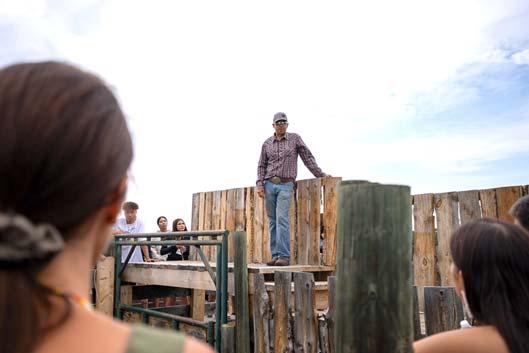
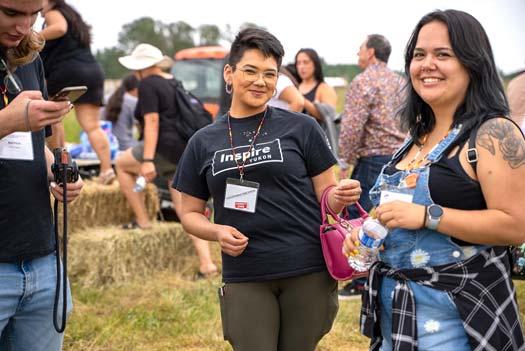

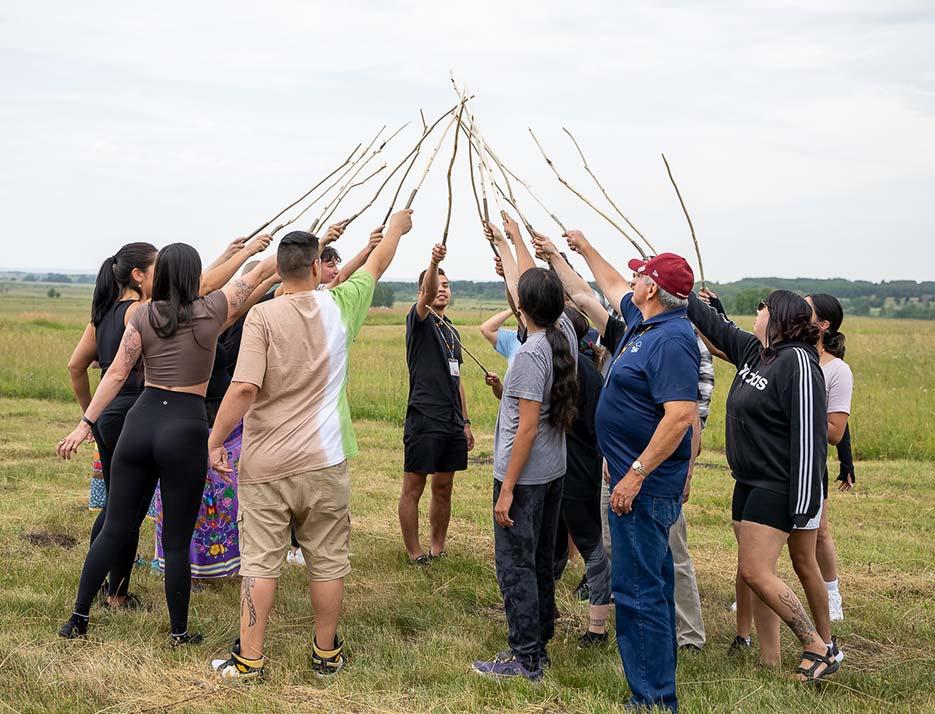

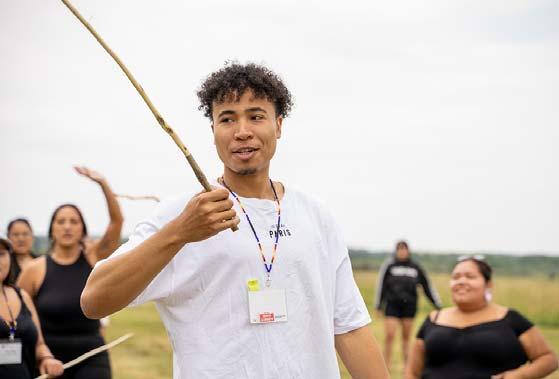
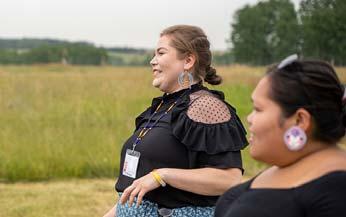
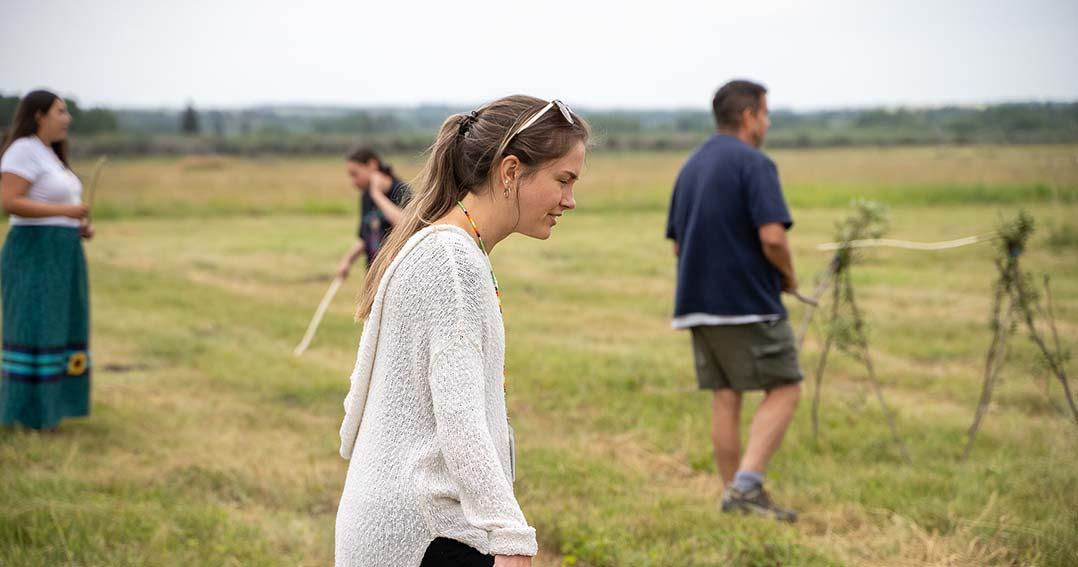
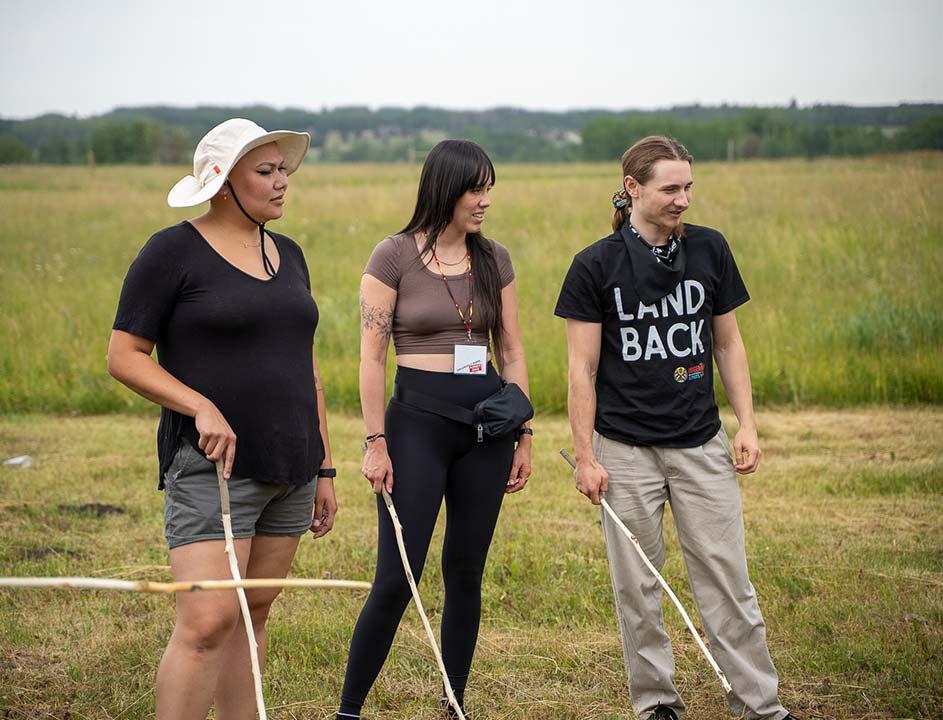



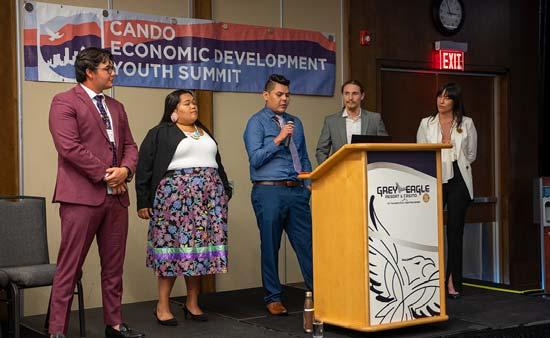
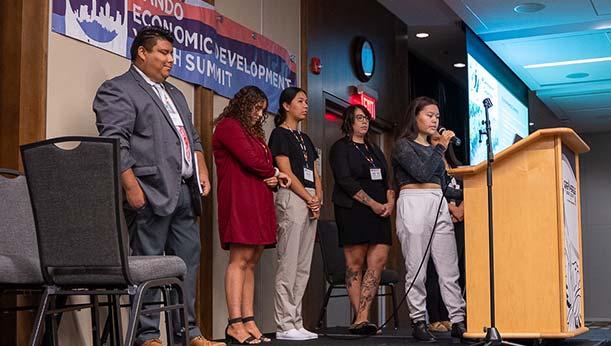

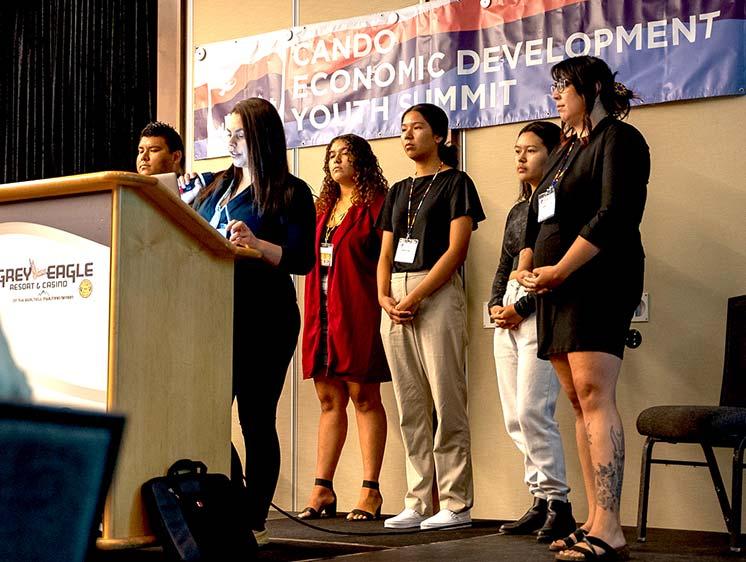
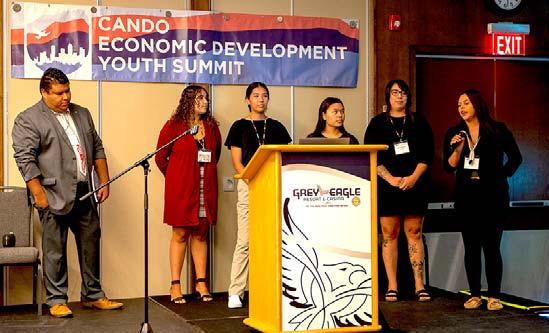

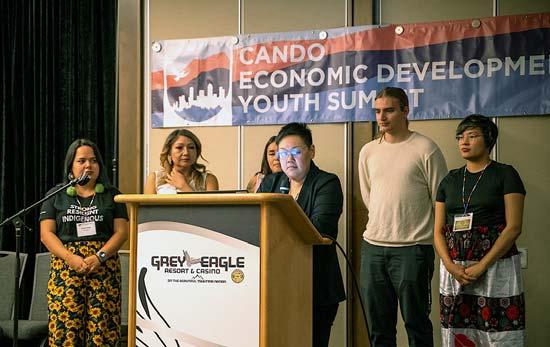


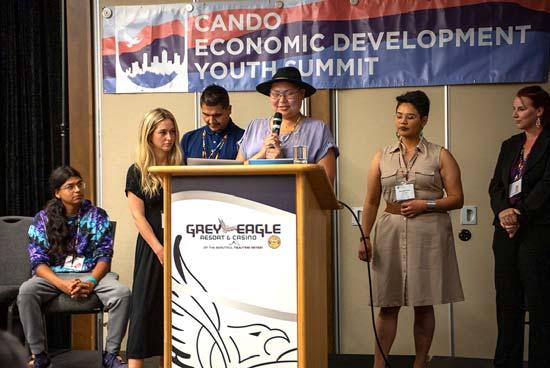
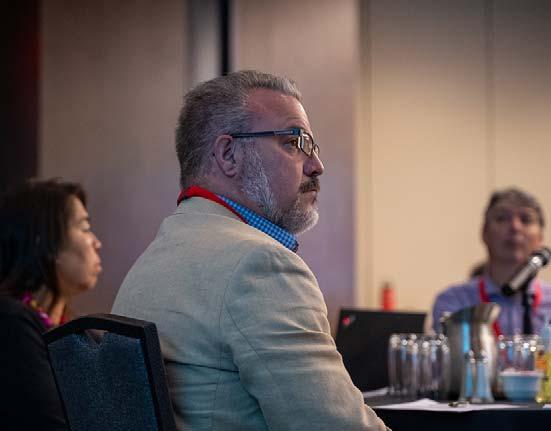
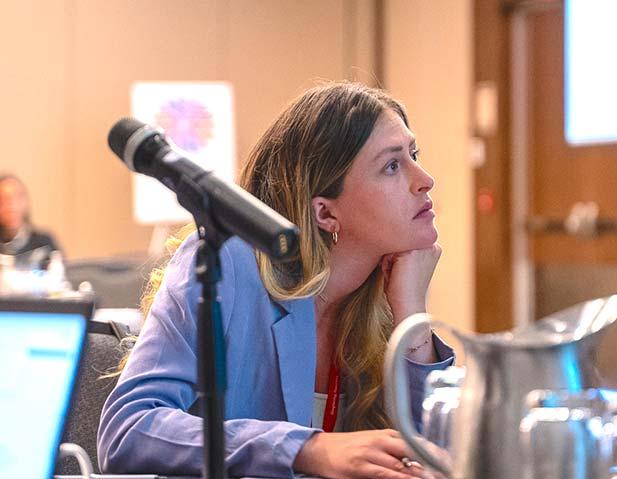
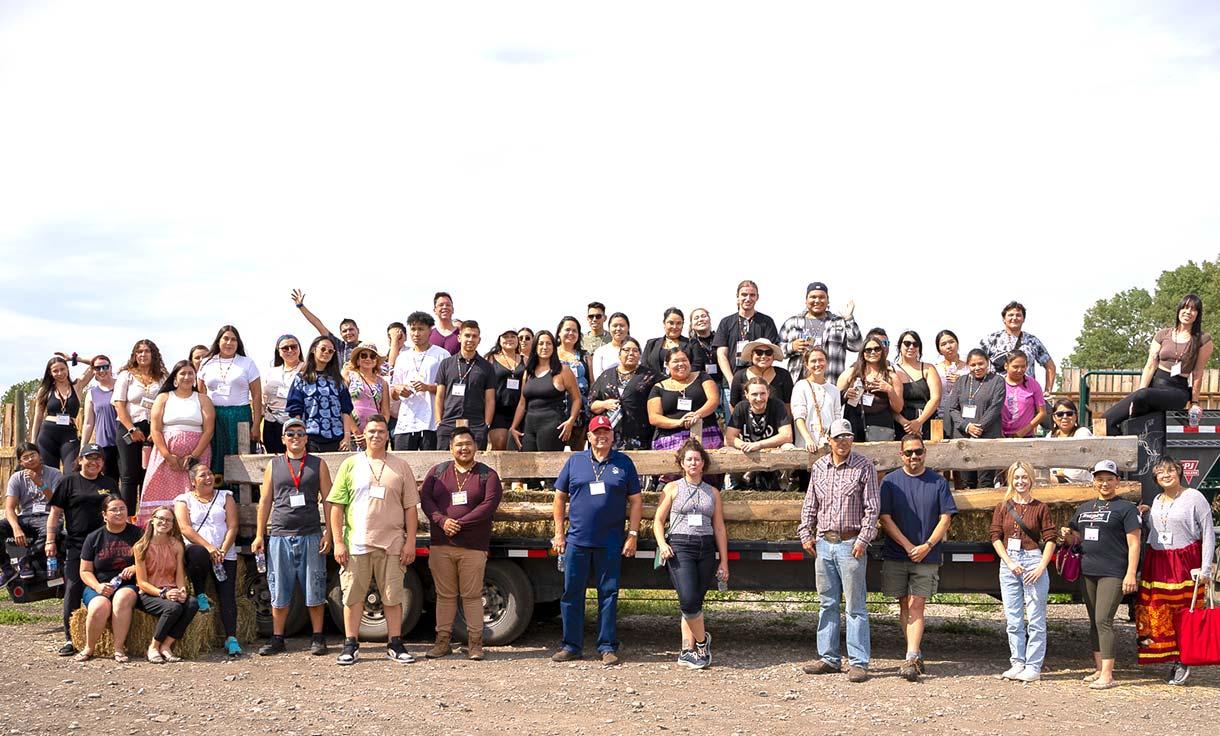
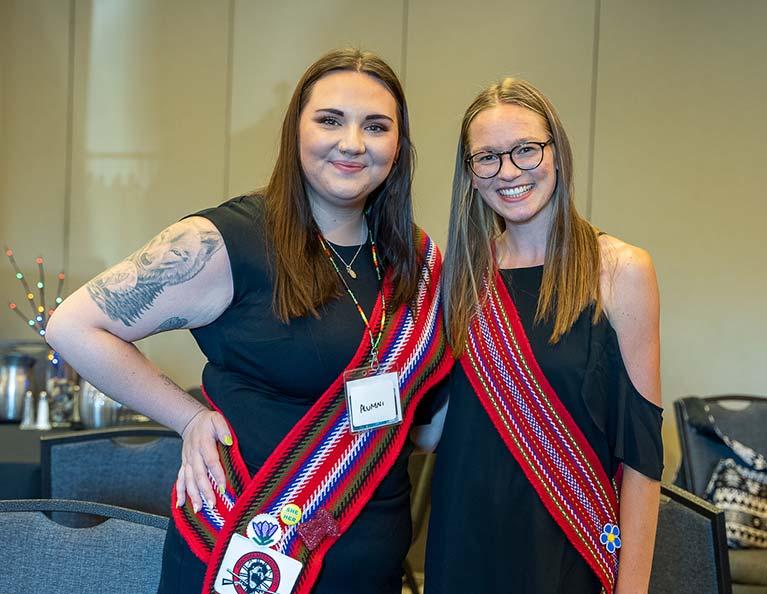
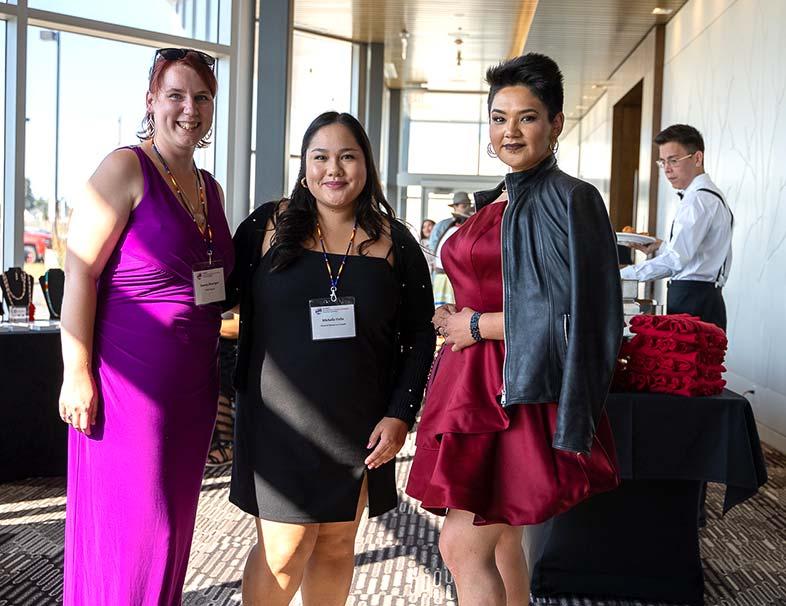


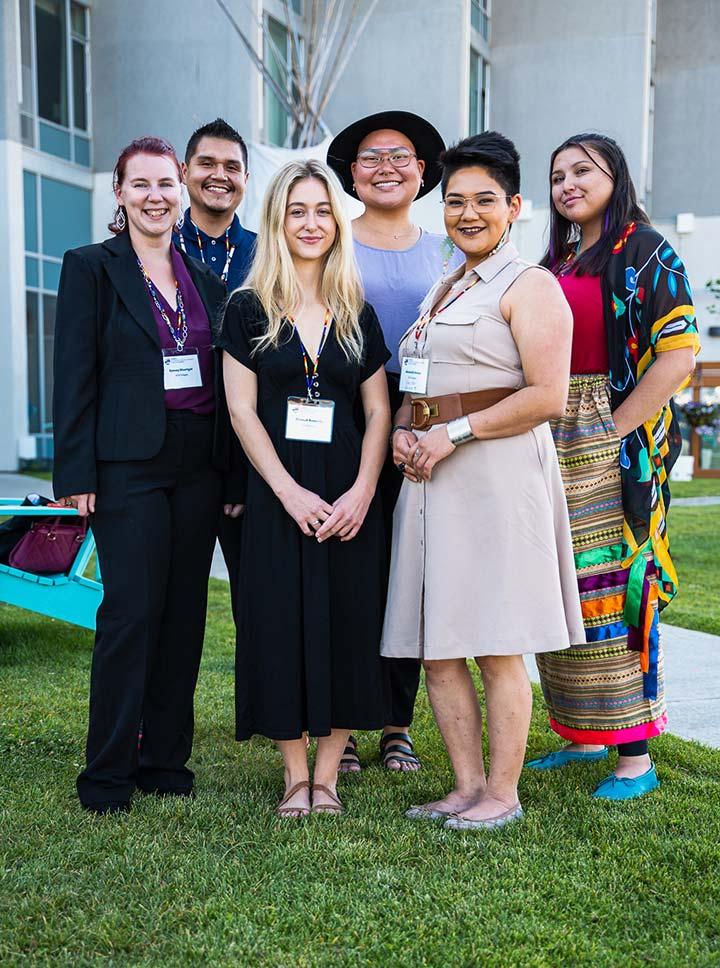
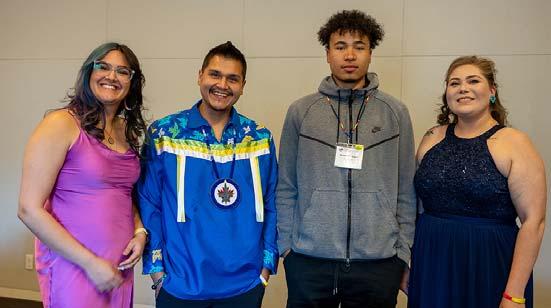
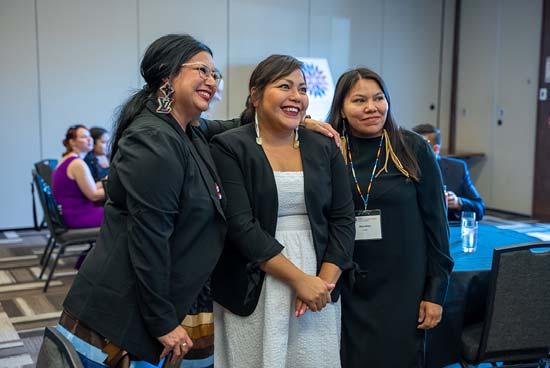
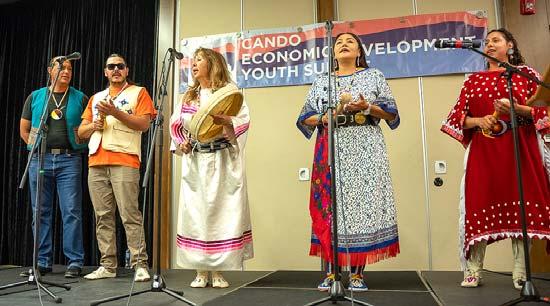

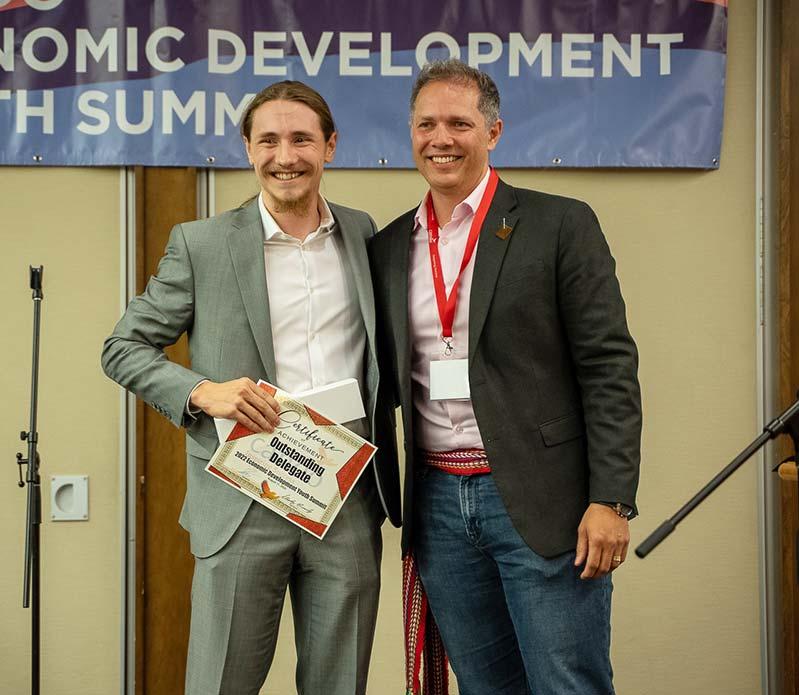
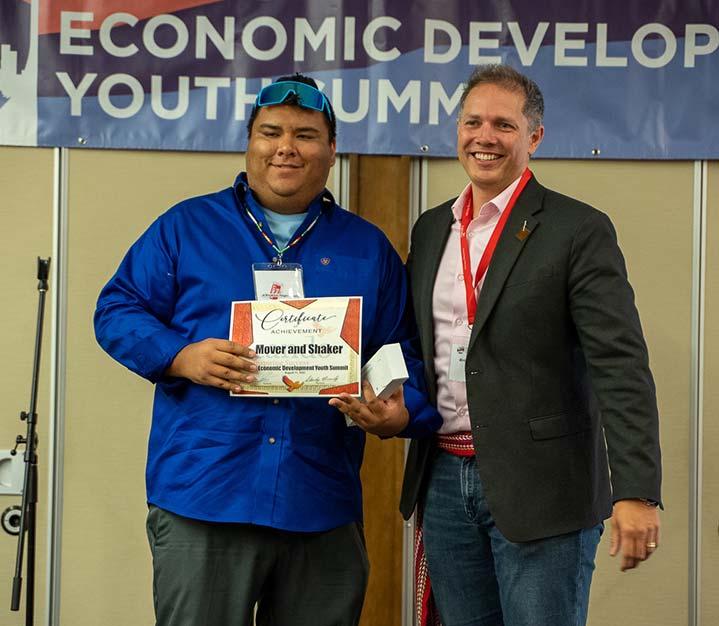

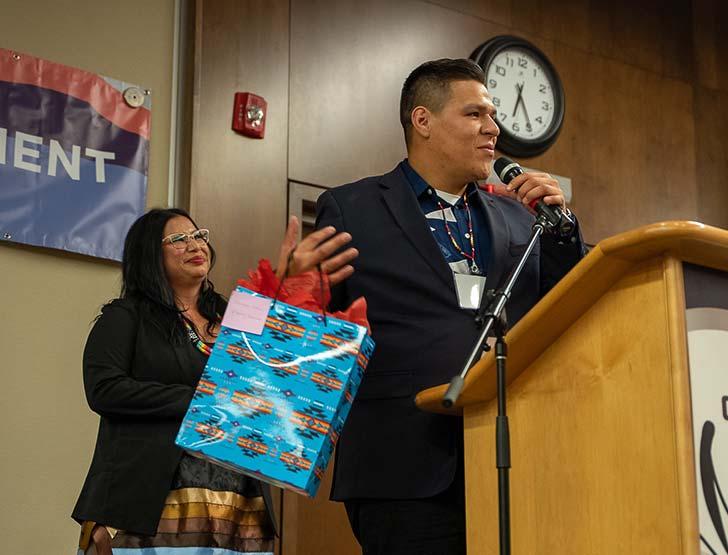

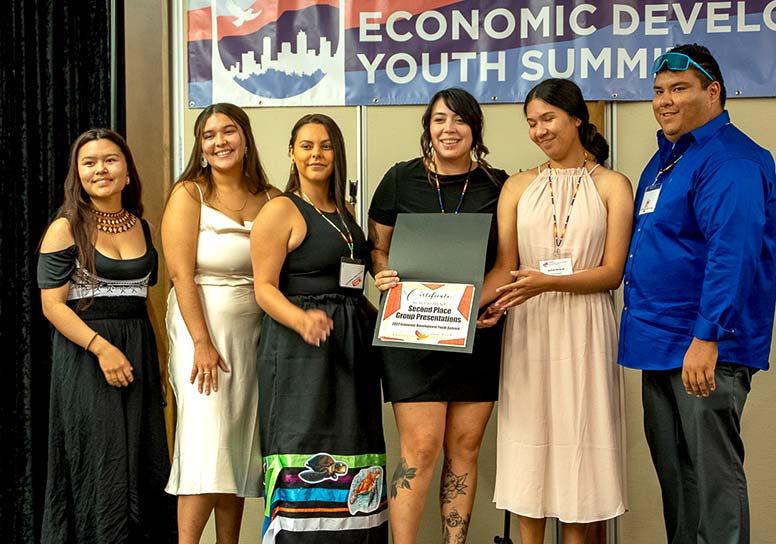

Team Members: Draco Dunphy, Kathleen Doxtator, Samantha Allan, Daniel Nychuk, and Darian Edwards

Second Place - Group 6: 4B Development
Team Members: Tasmin Petrowsky, Salina Nichols, Jody Tulurialik, Trinity Maloney, Sarah Jerome, and James Houle

Team Members: Brayden OmeasooSteinhauer, Bianca Buffalo, Kelly Tsetta, Gaby Doucette, Hannah Surita Beaulieu, and Harveen Saini
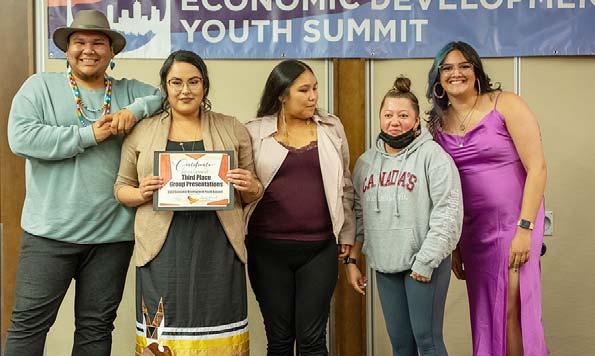


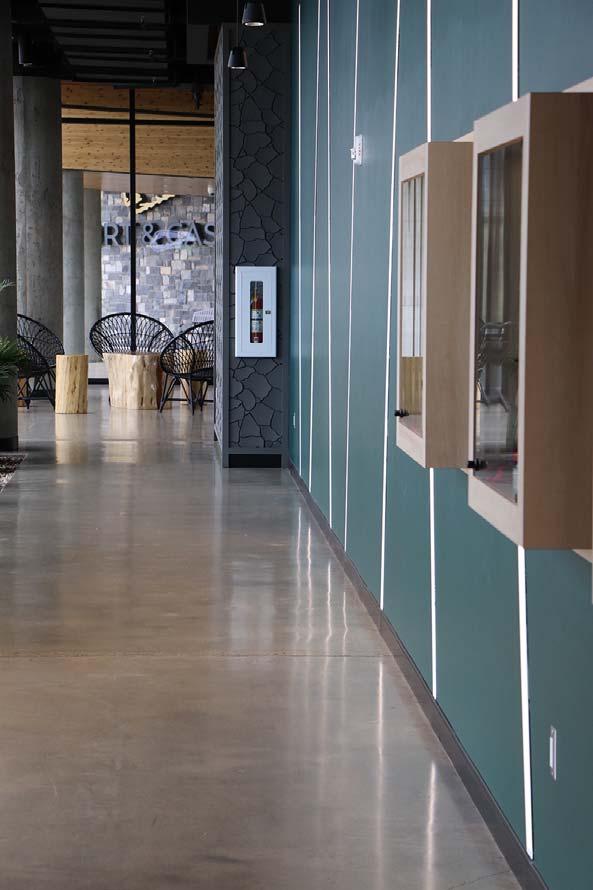

The 28th annual Cando National Conference was hosted by the Whitecap Dakota First Nation at their new Dakota Dunes Hotel at Whitecap, Saskatchewan (south of Saskatoon) from May 16-19. May 16th saw the delivery of the Accredited Training as well as the NIEEF Gold Tournament at Dakota Dunes Golf Links. May 17th was the first ioofficial day ofn the conference with welcome from dignitaries and the opening day panels and workshops. The conference featured the usual showcase events including the National Youth Panel, the Women in Business Panel and the muchanticipated return of the Economic Developer of the Year Awards.
All of those events plus much more will be featured in the following pages.
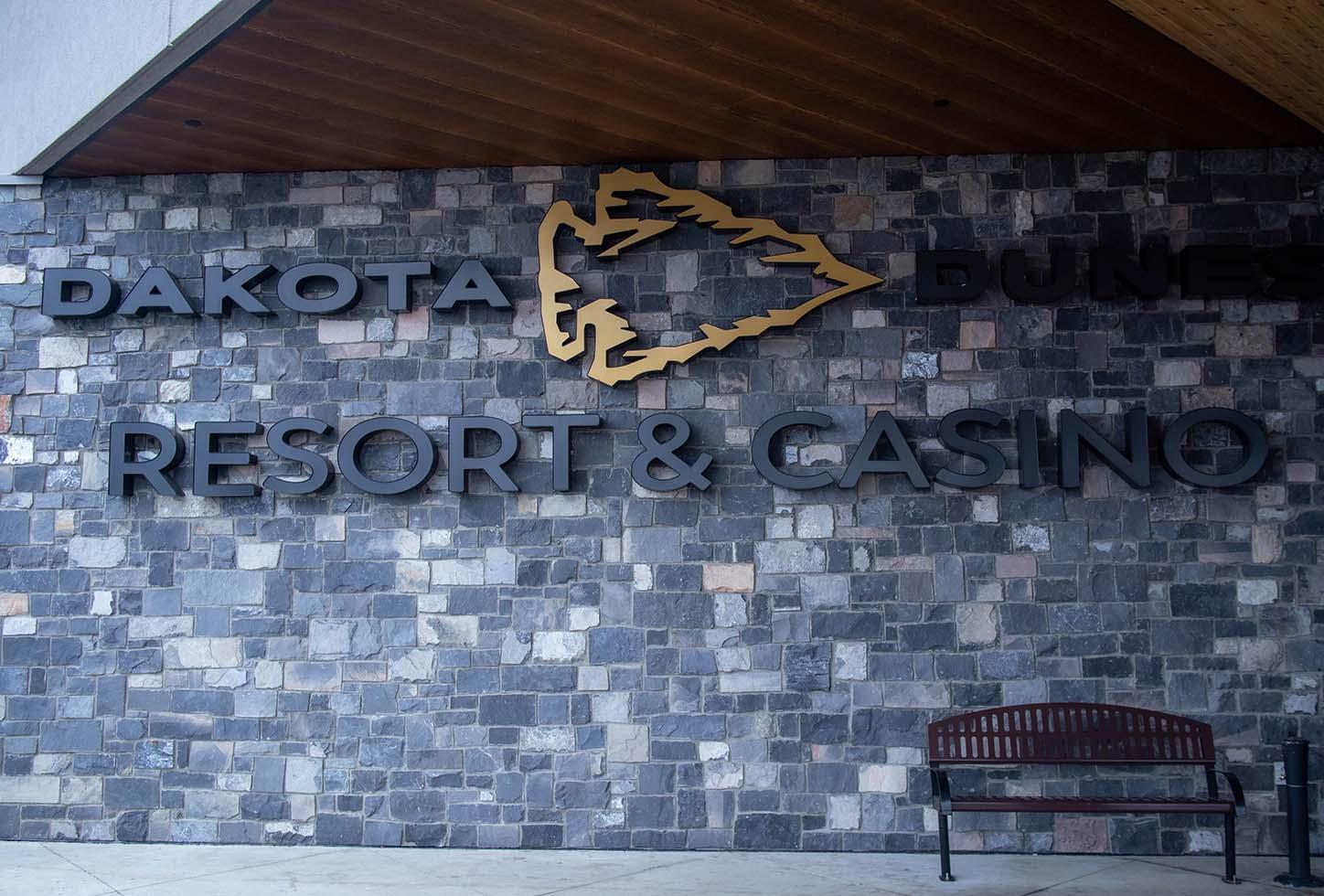
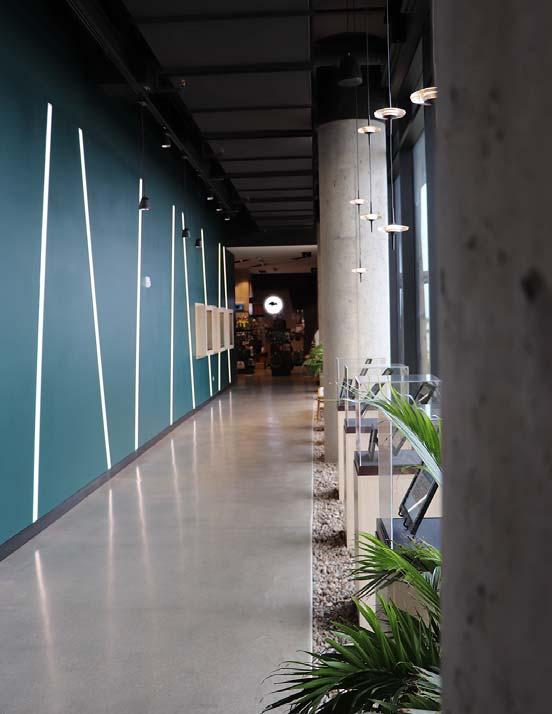
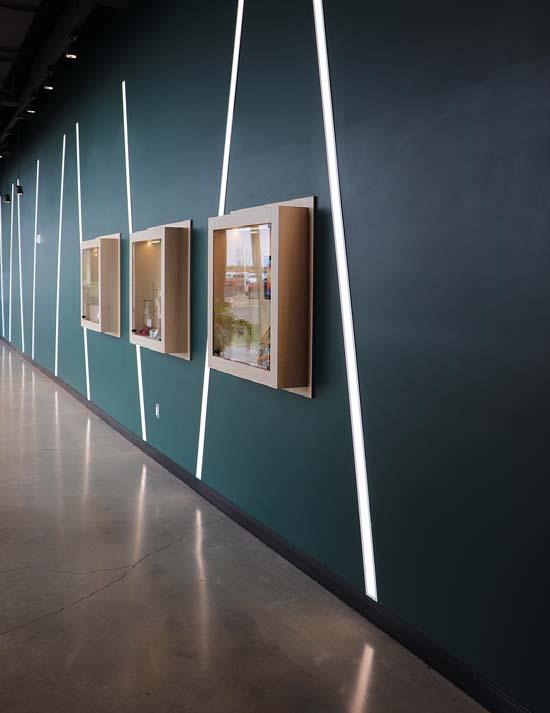



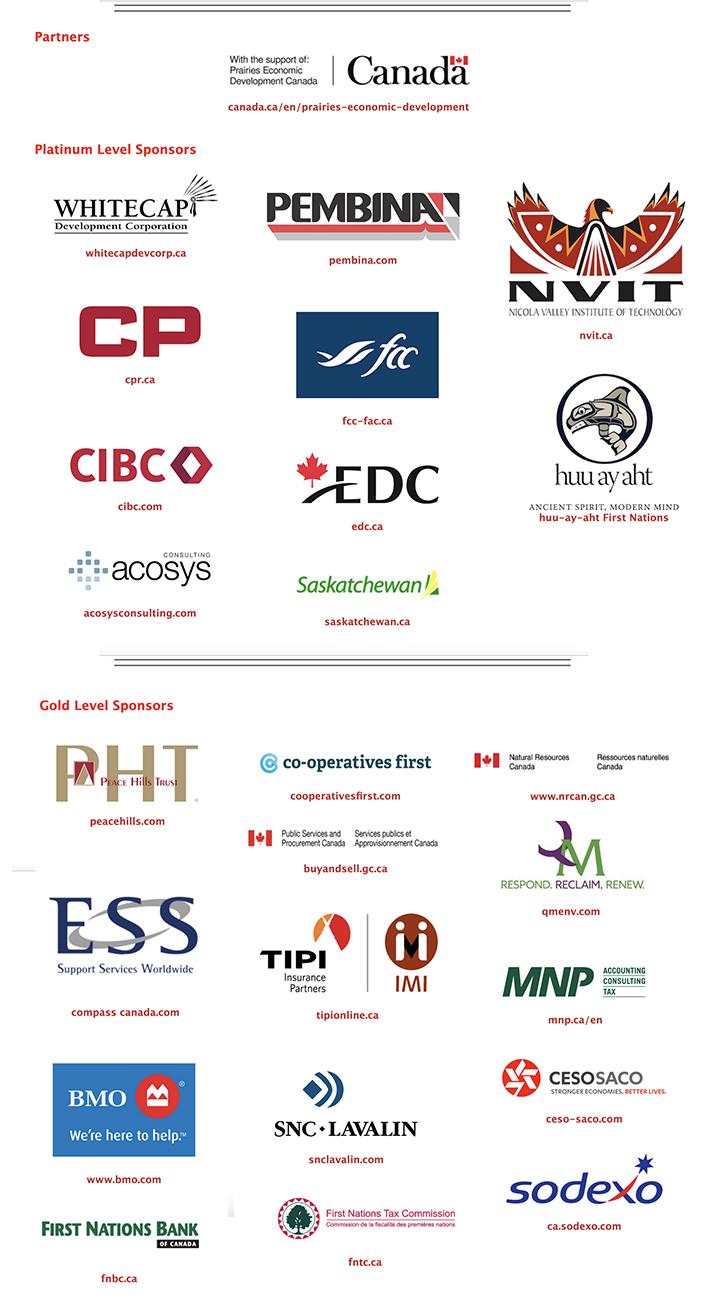

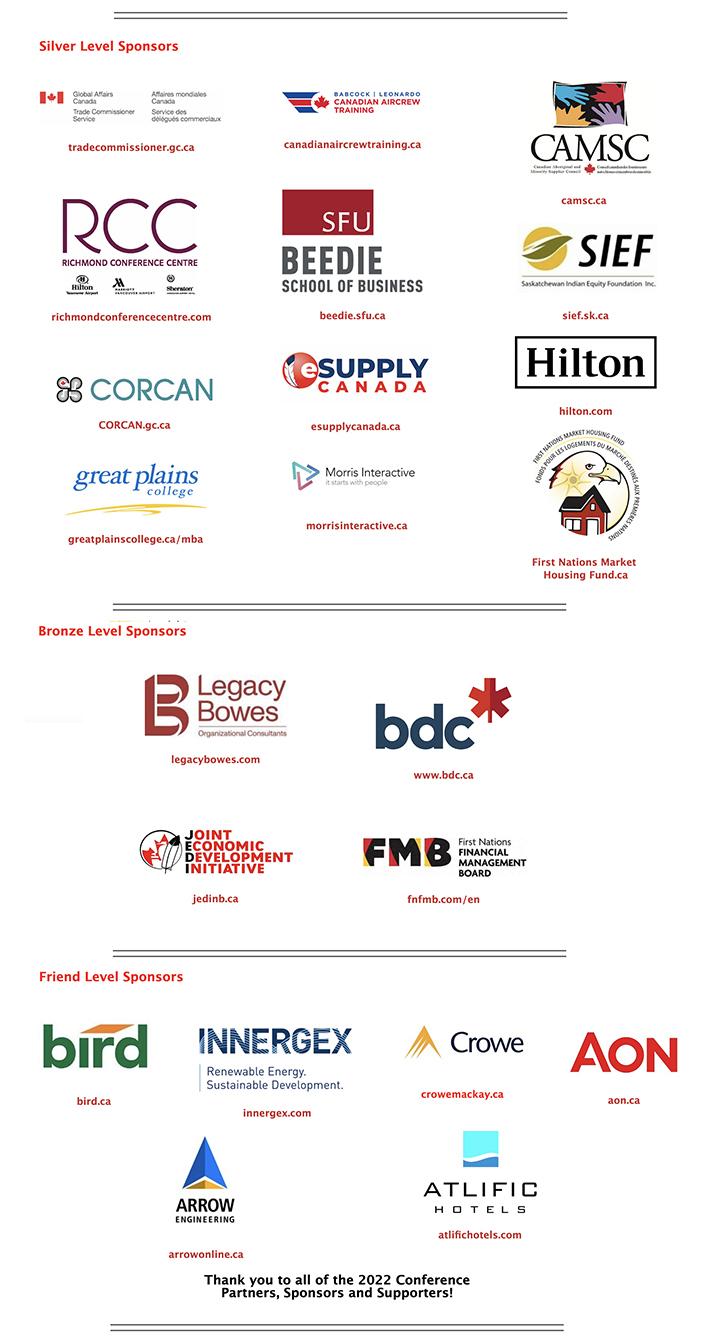
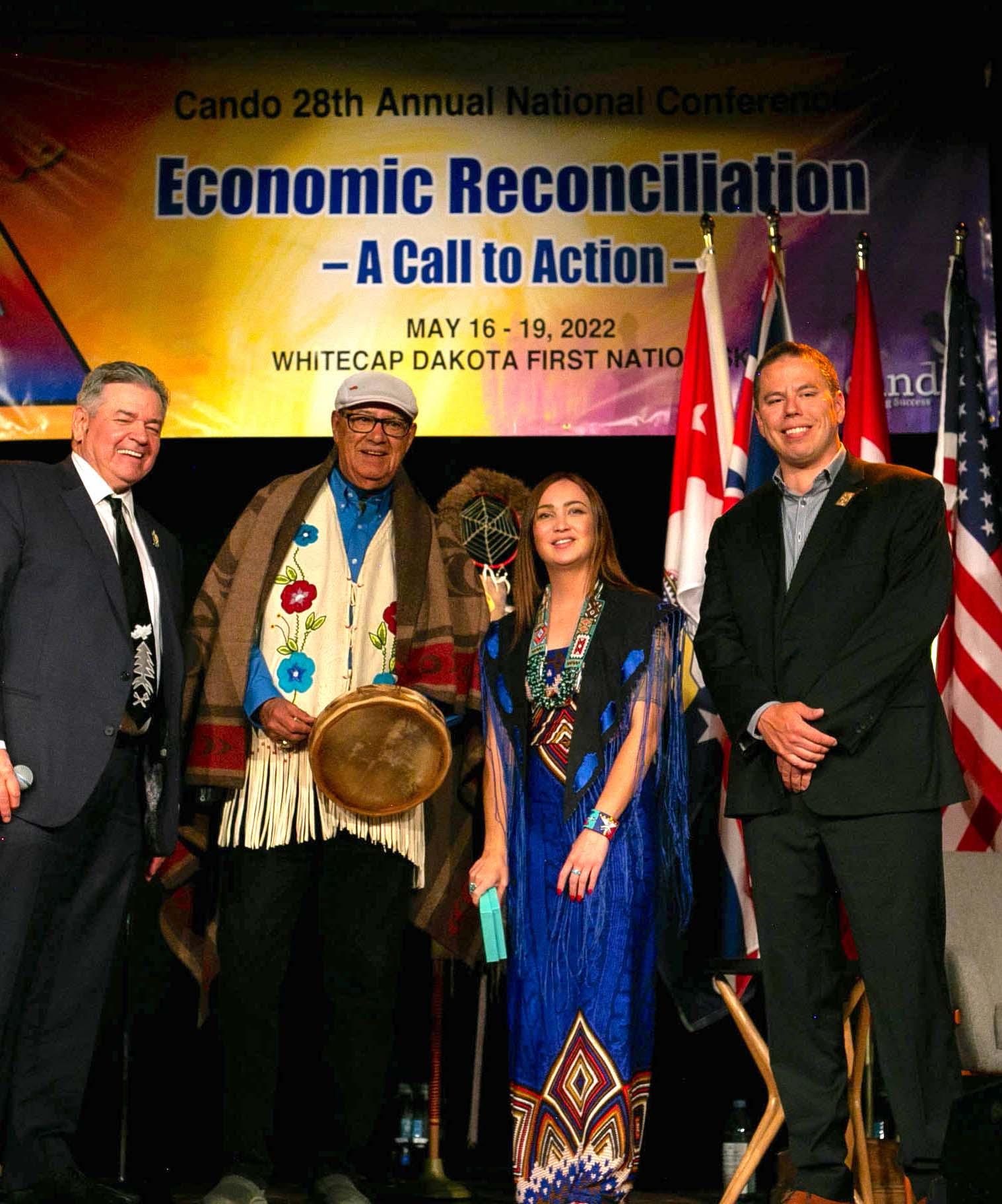
 (Left to right) Ray Wanuch, Cando Executive Director; Eugene Arcand, Conference MC; Aly Bear, Conference MC; and Stanley Barnaby, Cando President at the 28th Cando Conference.
(Left to right) Ray Wanuch, Cando Executive Director; Eugene Arcand, Conference MC; Aly Bear, Conference MC; and Stanley Barnaby, Cando President at the 28th Cando Conference.

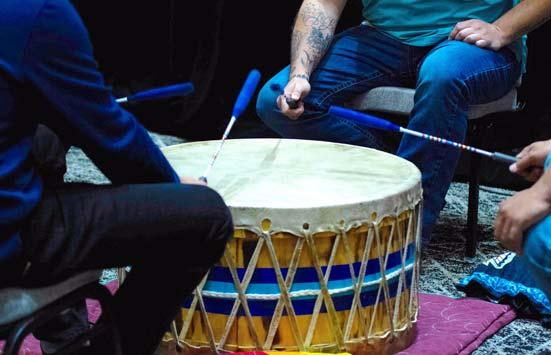




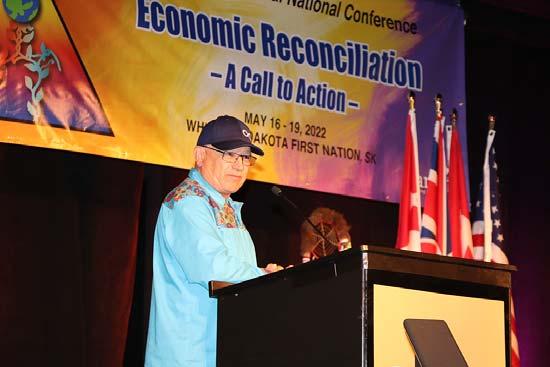
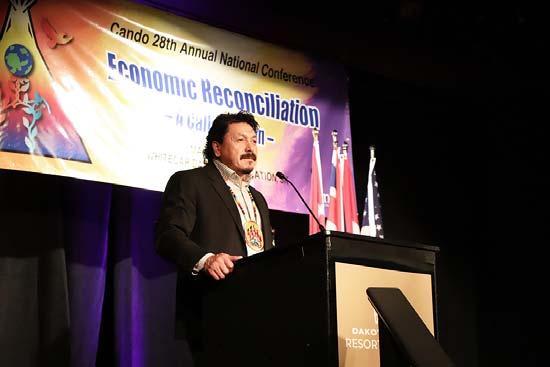
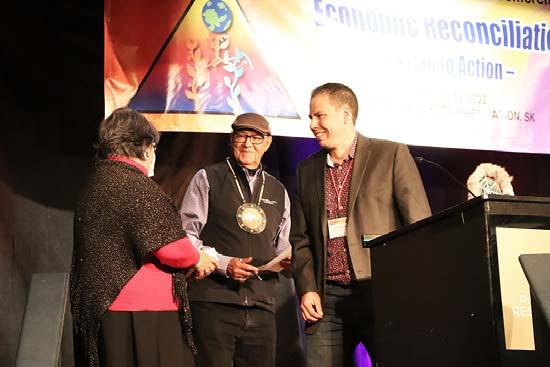

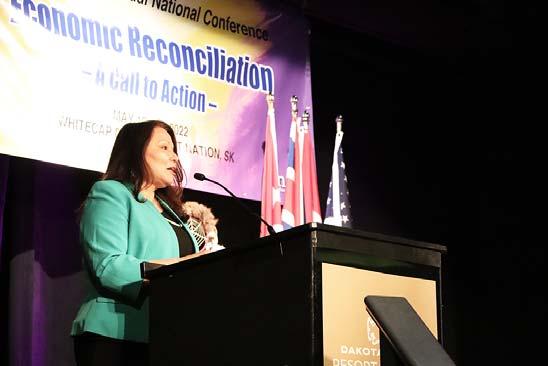


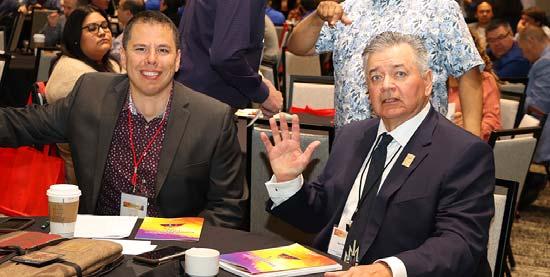
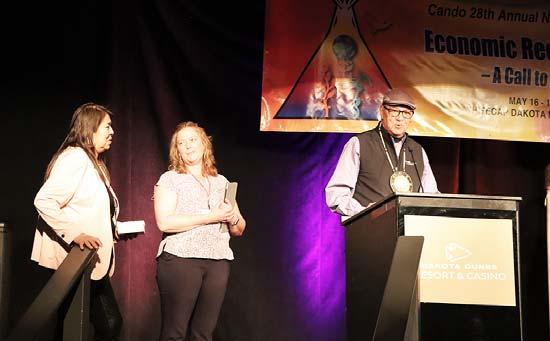
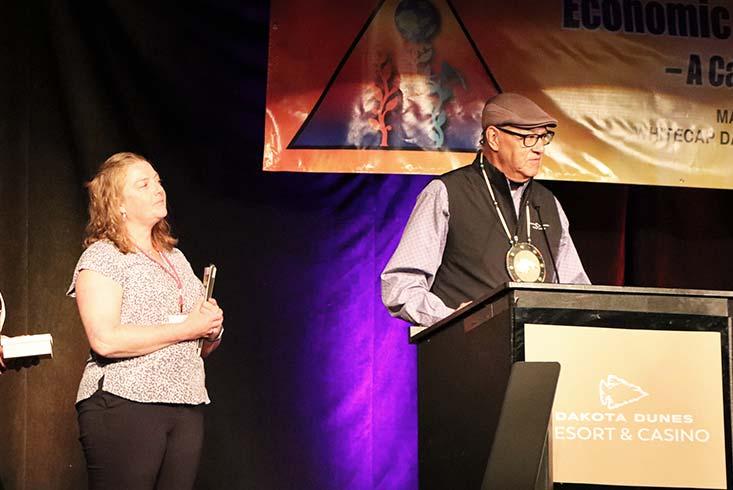
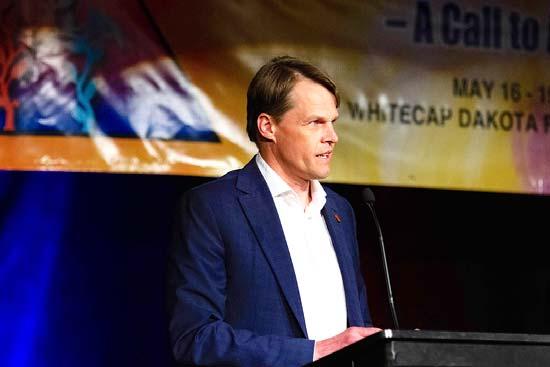


The Dakota Dunes Resort will be hosting this year’s Cando Conference.
By Sam Laskaris Cando WriterIt seems only fitting one of the country’s top Indigenous economic development conferences will be staged at one of the premier Indigenous resorts in Canada.
The 2022 Cando Conference is scheduled to be held May 16-19 at the Dakota Dunes Resort, located on the Whitecap Dakota First Nation in Saskatchewan.

Cando is the national organization that promotes Indigenous economic development across Canada.
This year will mark the 28th annual Cando Conference. The majority of those conferences have been held in person. But because of the pandemic, the last in-person conference was held in October of 2019 in Gatineau, Que.
Cando organized a virtual conference in October of 2020. Cando officials were hoping to hold the 2021 event this past fall at the Dakota Dunes Resort. But because of the ongoing pandemic, that event was push back until this May, in the hopes a full in-person conference experience can be had.
The Dakota Dunes Resort, which opened in October of 2020, has been earning rave reviews from its visitors.
“We really try to make sure that everyone in our hotel leaves with a sense of awe and is treated with an unforgettable authentic Indigenous experience,” said Alex Fleischhacker, Dakota Dunes Resort’s area director for sales and marketing.
The seven-story facility offers 155 guest rooms. All rooms have floor-to-ceiling windows.

“They have a beautiful view of the Dakota Dunes Golf Links course and you get to see the sprawling hills of the dunes,” Fleischhacker said. “Or you get the river valley view. If you look, you can actually see the South Saskatchewan River valley from your room.”
All guest rooms feature a stunning headdress image of Whitecap Dakota First Nation Chief Darcy Bear, who was appointed to the Order of Canada in 2020.
The Dakota Dunes Resort is billed as an ideal location to stage conferences or meetings. The facility can also be enjoyed by those wishing to visit the adjacent casino, which opened in 2007, three years after the First Nation’s golf course started welcoming visitors.
Guests have also been flocking to the Dakota Dunes Resort to take part in one of its Indigenous adventures, including Dakota culture and history, or simply to have a relaxing getaway.
“I don’t think there is a resort experience that you can go to presently in Saskatchewan which will give you the same experience,” Fleischhacker said. “You kind of get to pick your path a little bit. I think there’s something there for everybody.”
Elements key to Indigenous spirituality are prevalent throughout the Dakota Dunes Resort.

“When you walk into our doors, you’ll see that a lot of those elements throughout the hotel,” Fleischhacker said. “So, we have a lot of earth, a lot of fire, a lot of air. And they all kind of meet together in our hotel.”
Fleischhacker added resort officials were keen to have guests feel welcome immediately.
“When you walk through the lobby, there’s lots of windows with lots of great natural light,” she said. “We have our
fireplaces in the lobby to make that warm and cozy feeling. And then you’re going to see lots of natural types of elements throughout the hotel.”
Some of the symbolistic elements are prevalent throughout the facility. For example, angular designs, which represent tipis, are a common sight.
“We walk through the corridor and there’s river rock to symbolize Whitecap Dakota First Nation building their First Nation alongside the river valley,” Fleischhacker added.
The resort also features a suspended, handcrafted canoe that was shipped in from Montreal.
“It’s a beautiful centerpiece to a hallway,” Fleischhacker said.
As for dining experiences, the Dakota Dunes Resort includes its own restaurant, the Moose Woods Home Fire Grill.
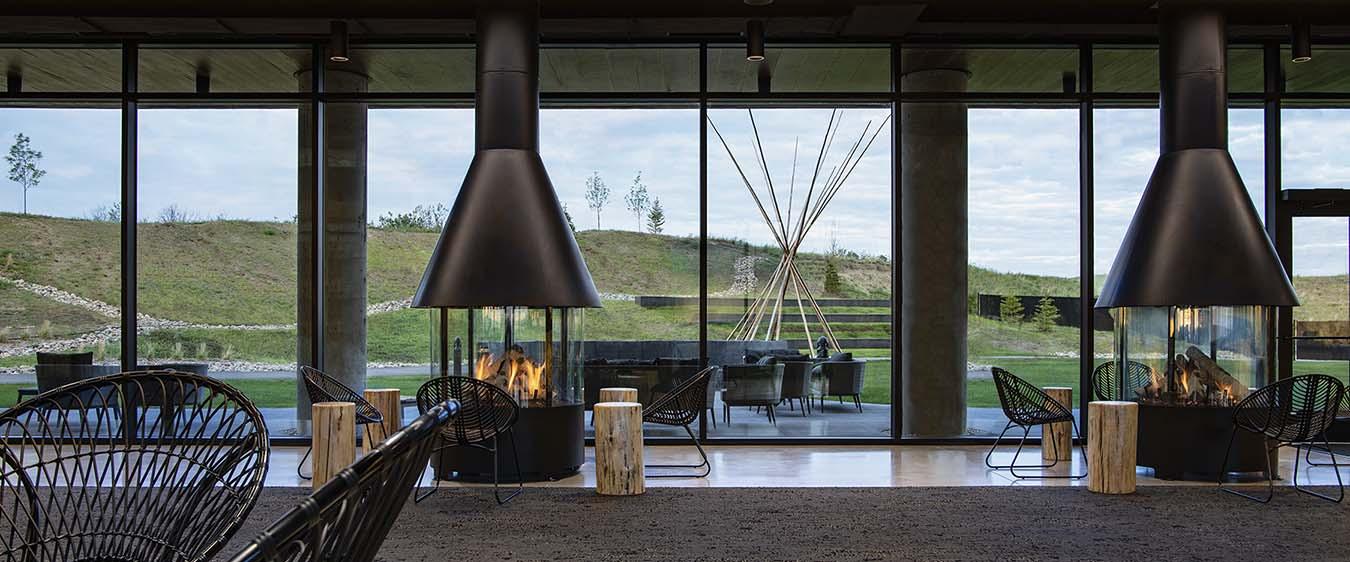
“We really try to have that farm to table feel,” Fleischhacker said. “There’s a lot of local producers that we source from. We go to the farmers produce every weekend and get fresh produce. And we source local venison, local beef, local bison, lots of different local foods are sourced here.”
Darrell Balkwill, the CEO of Whitecap Development Corporation, the First Nation’s economic arm, said the resort was the latest part of a 20-year master development plan.
Balkwill said that master plan was developed a decade ago, in 2012.
“We continue to try to pick off some of these projects, one by one,” said Balkwill, who first joined the Whitecap Dakota First Nation to serve as its director of economic development in 2003.
Future facilities that are being planned include a thermal spa and an arena featuring two ice pads.
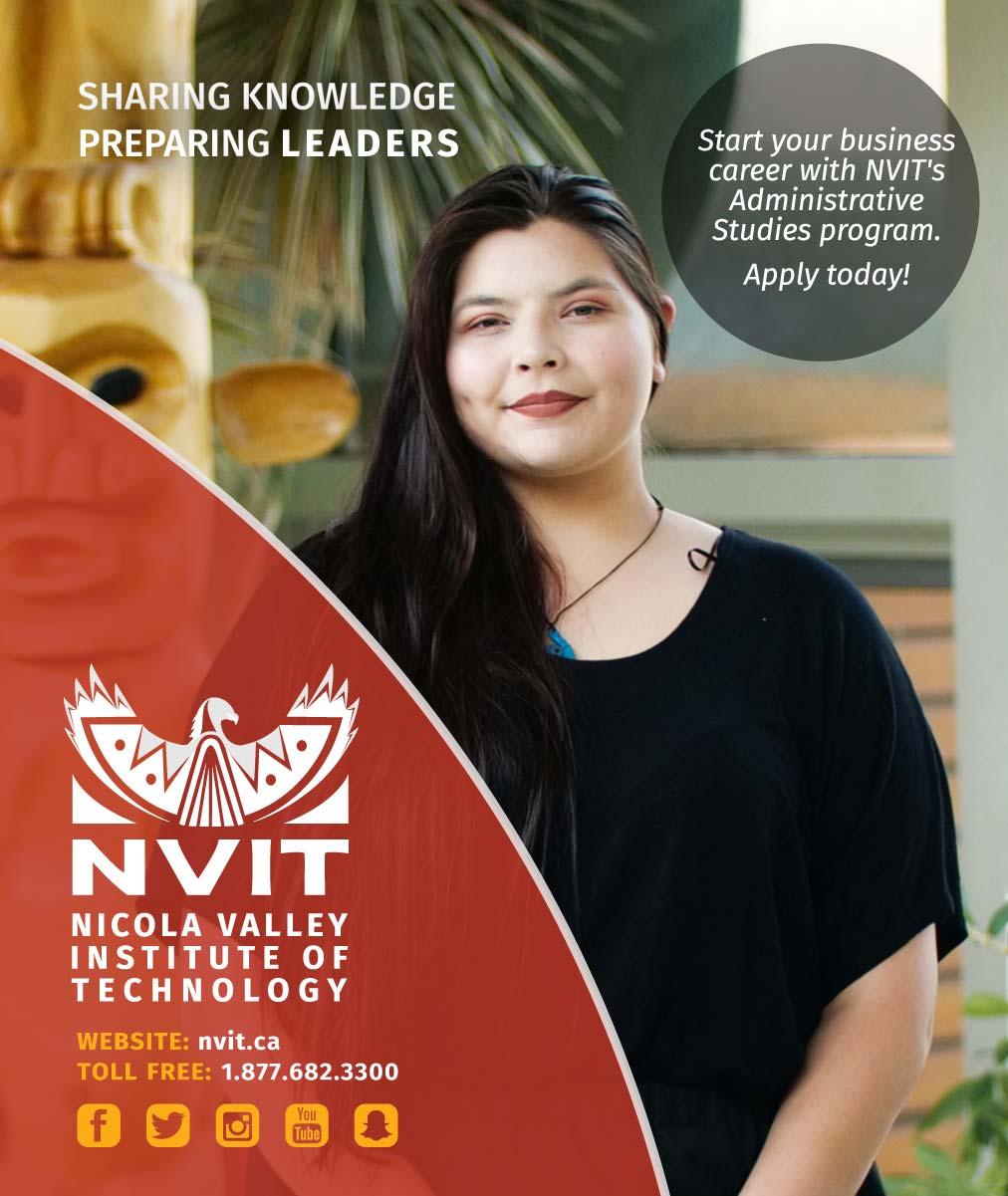



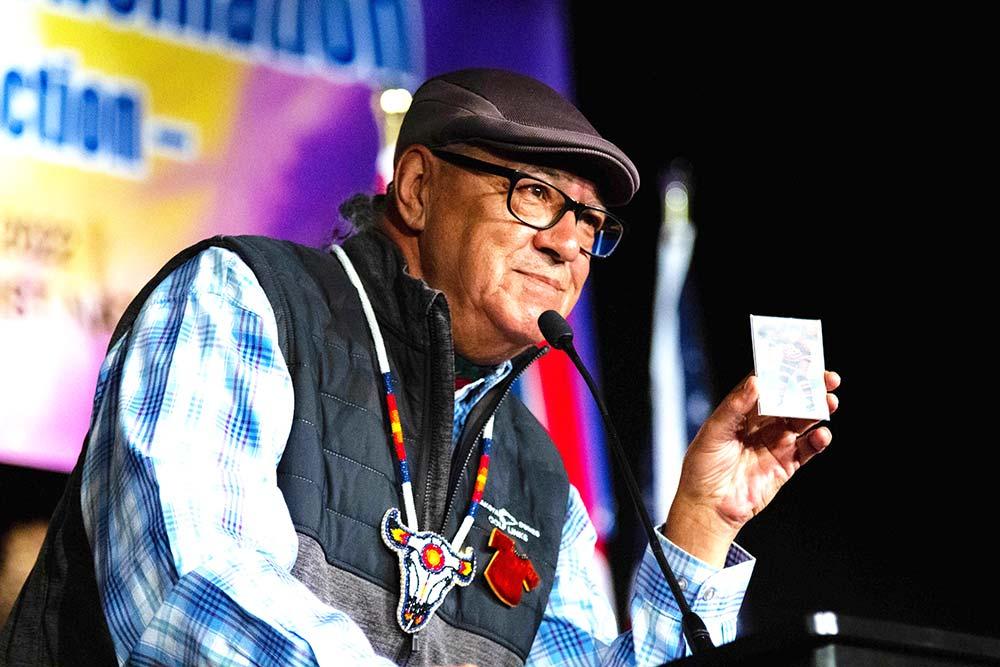
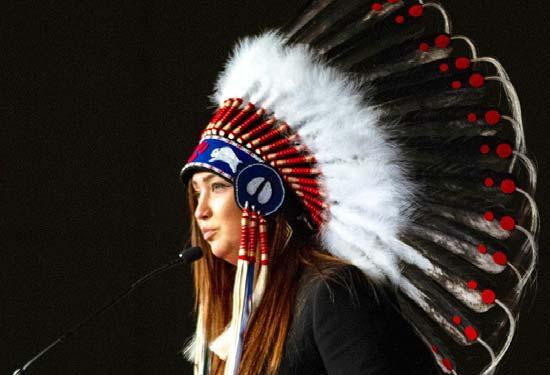

Conference delegates were given the opportunity to visit Wanuskewin Heritage Park and tourinside the interpretive centre and around the property. Interpreters shared how Indigenous peoples had used the region and site to hunt and process bison for thousands of years.
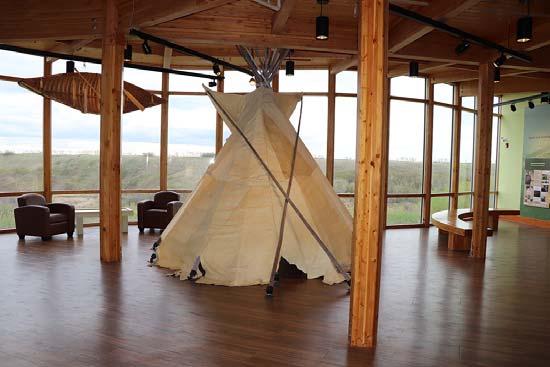





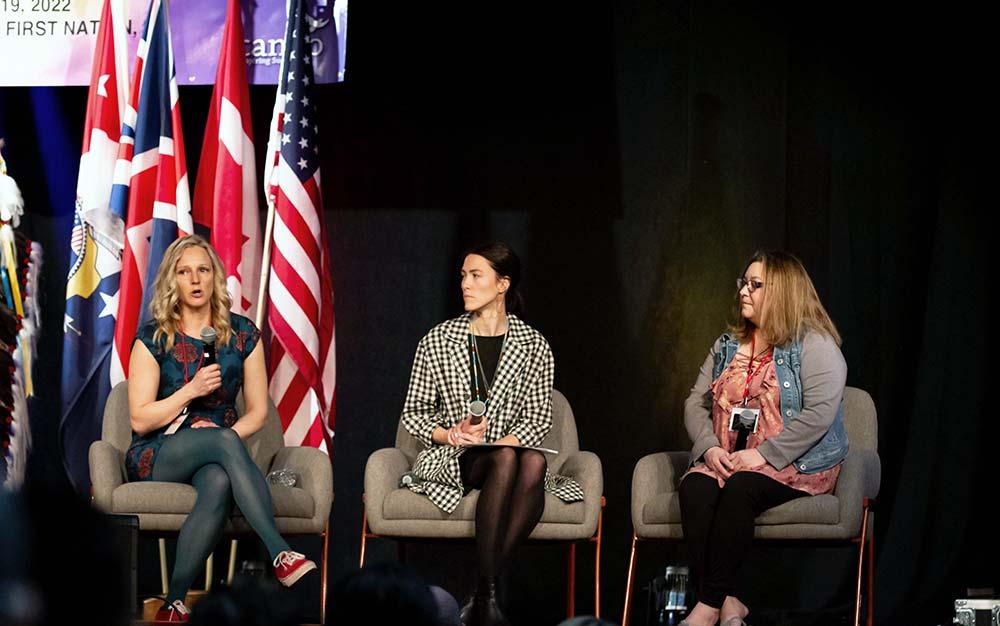
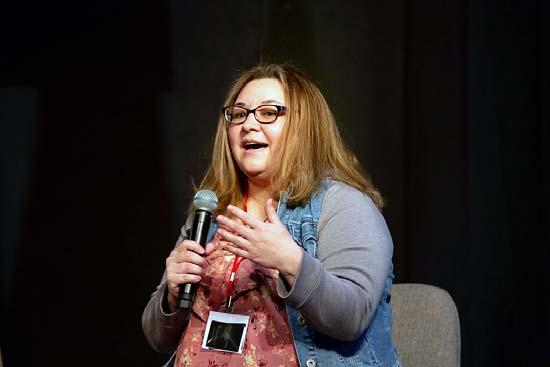
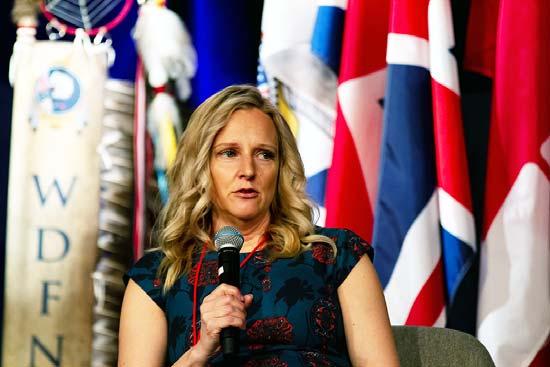


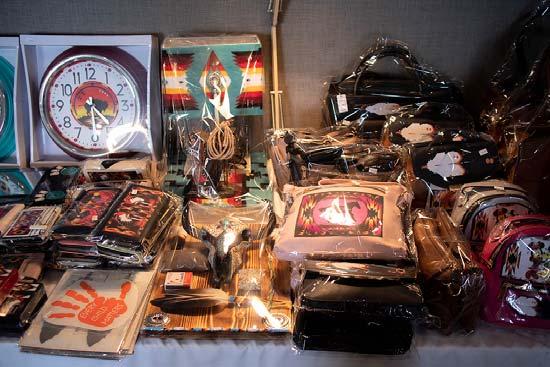


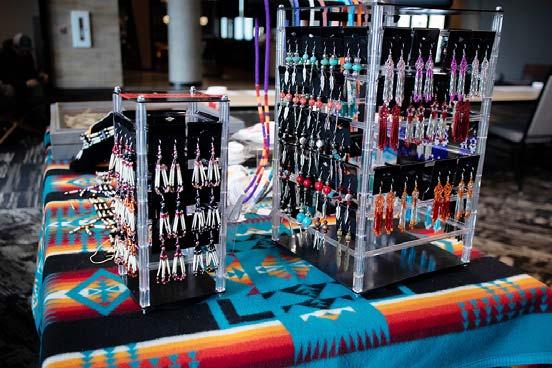
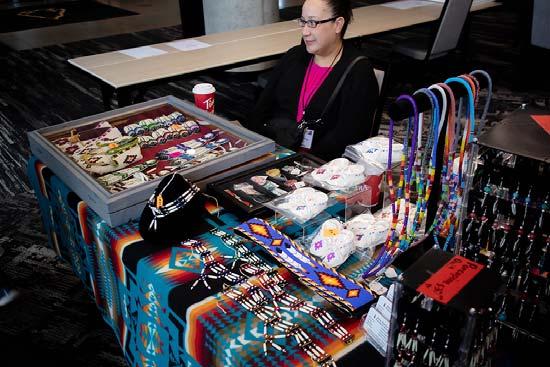
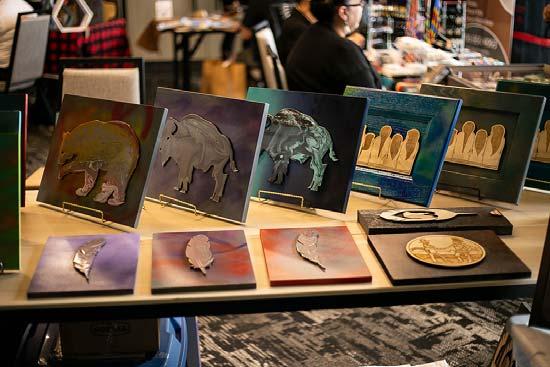
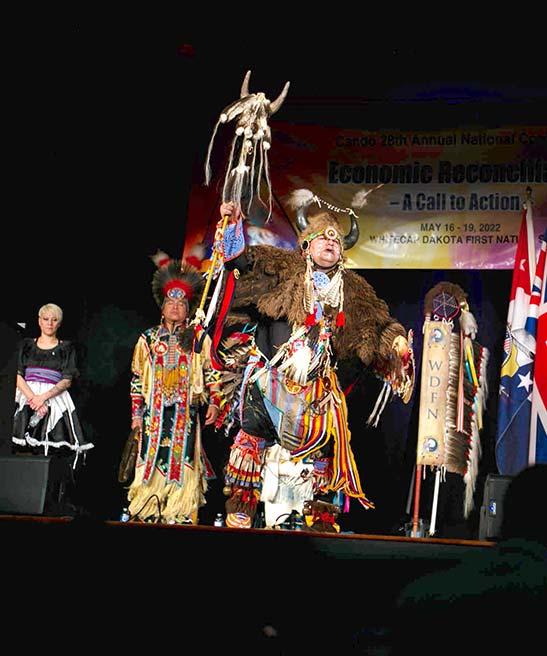


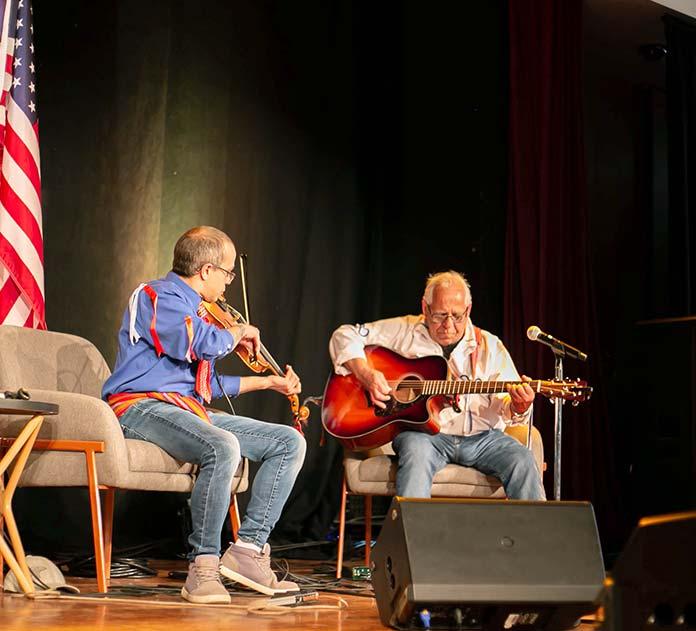
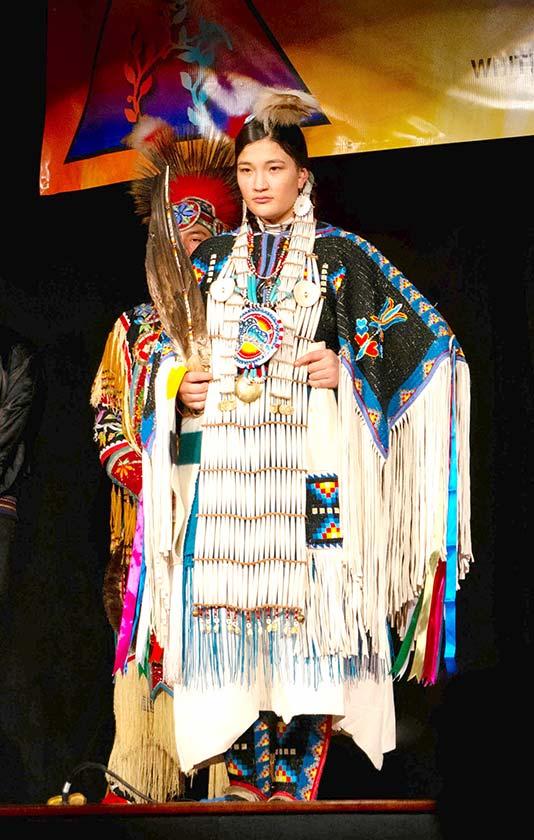


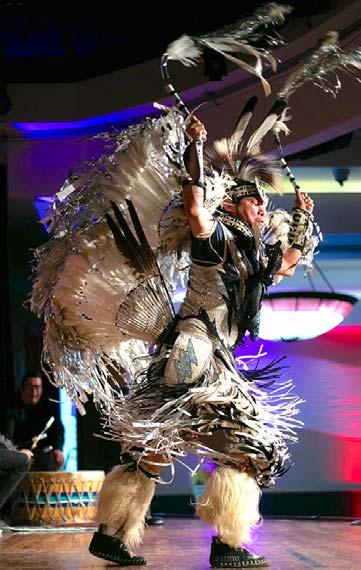

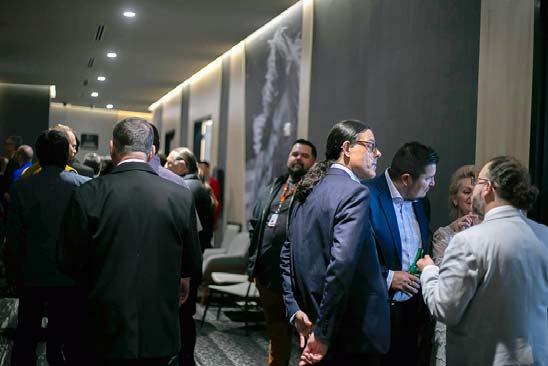
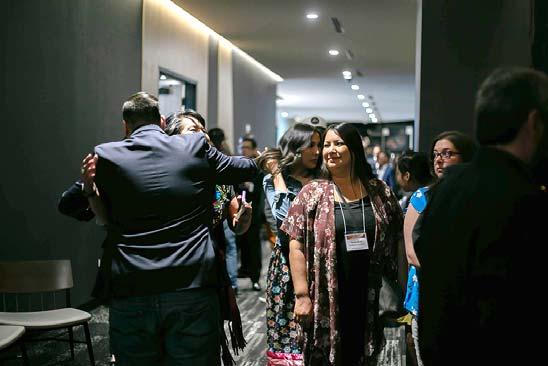
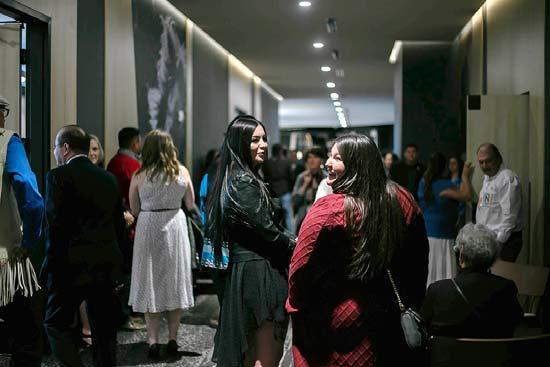
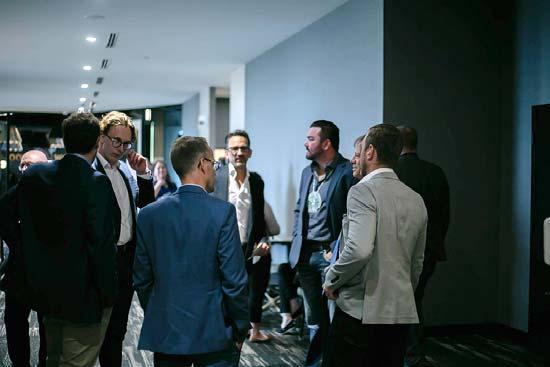
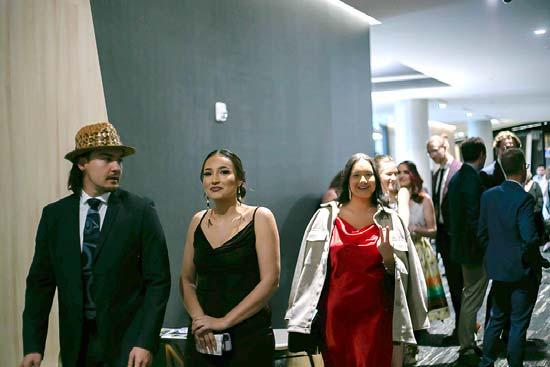


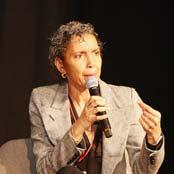

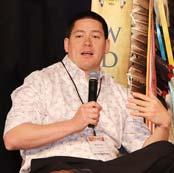
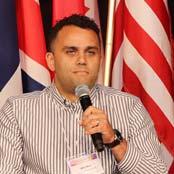

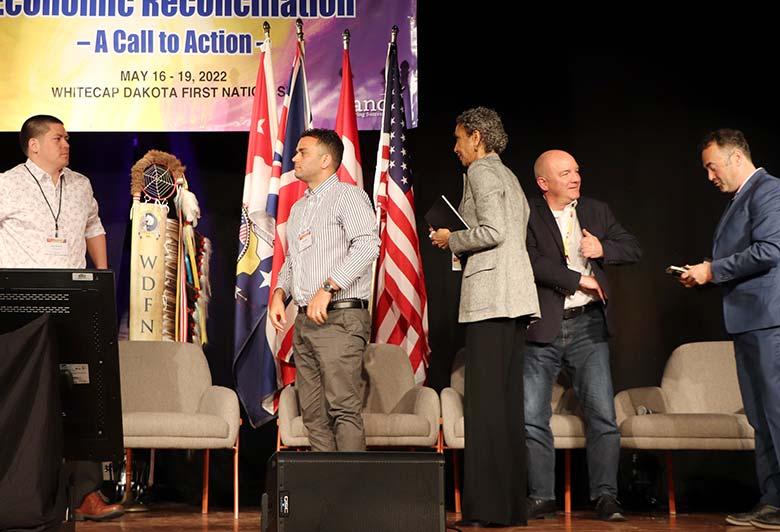

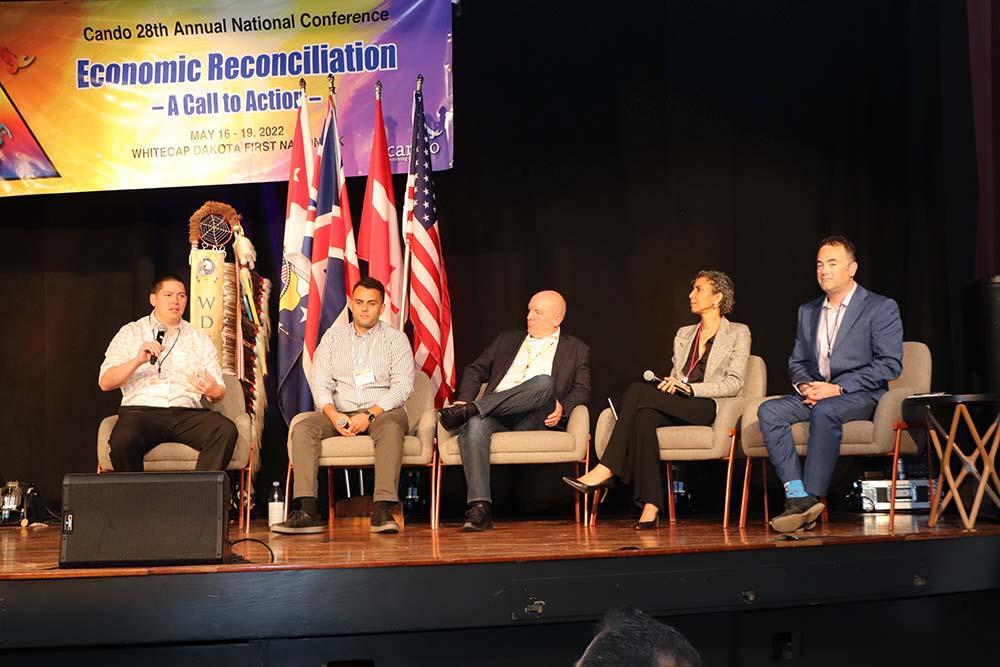

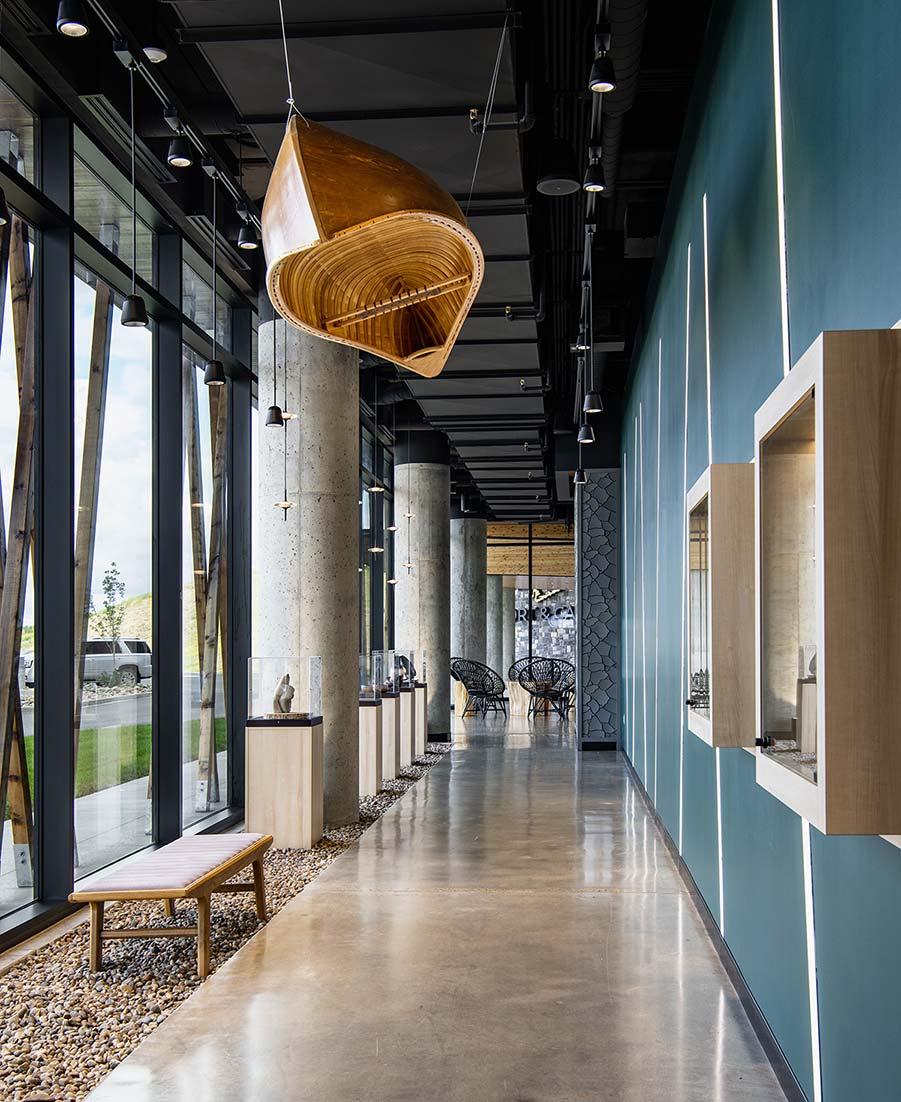
Officials with the Whitecap Dakota First Nation are certainly not resting on their laurels.
Representatives from the First Nation, based in Saskatchewan, are constantly working to better and further develop several initiatives which will provide numerous benefits to its members.
Back in the spring of 2004, Whitecap Dakota was thrust into the spotlight when it opened its spectacular Dakota Dunes Golf Links course to the public.
The course earned rave reviews from its inception and continues to do so.
In fact, one of the sport’s most respected magazines, Golf Digest, selected Dakota Dunes as the best new Canadian course for 2005. That accomplishment signified the first time any course in Saskatchewan had been recognized with any sort of award from Golf Digest.
The course continues to be included on various lists which compile the top golf facilities across the country.
The Whitecap Dakota First Nation has also been applauded in various circles for its casino which opened in 2007 as well as its Dakota Dunes Resort, which opened its doors to the public in the fall of 2020.

Darrell Balkwill is currently serving as the chief executive officer of the Whitecap Development Corporation, which is the economic arm of the Whitecap Dakota First Nation.
Balkwill said several new initiatives are being planned for the First Nation.
“There was a tourism master plan developed back in 2012,” Balkwill said.
That plan included various initiatives Whitecap Dakota officials were hoping would come to fruition during the next 20 years.
“We continue to try to pick off some of these projects, one by one,” Balkwill said.
The Dakota Dunes resort, a seven-story facility which includes 155 guest rooms, was one of the ventures in the First Nation’s master plan.
Balkwill added Whitecap Dakota representatives have now turned their attention to constructing a thermal spa, patterned after Scandinavian spas, on its lands.
“We are in the design phase right now,” Balkwill said. “And then we will start construction in 2023.”
Balkwill is hoping the First Nation’s spa will be completed and ready to start welcoming visitors by some point in 2024 or the following year.
“It’s a fairly large investment,” Balkwill said, estimating it will cost about $40 million to build the spa. “There is nothing really like it in Saskatchewan.”
Balkwill added Quebec currently has several thermal spas. But they are rare in western Canada.
“There are a couple in B.C., one in Alberta and one in Manitoba,” he said.
Balkwill said an arena, featuring two ice pads, is also being planned by the Whitecap Development Corporation.
“It can also double as a larger entertainment centre,” Balkwill said of the rink, which could potentially see construction begin as early as 2024.
The facility would include seating for 1,500-2,000 spectators, which would allow First Nation reps to host some even larger concerts than it currently is able to.
Other future plans include adding retail opportunities on the First Nation as well as a residential development, which would feature approximately 300 units, including condos, townhouses and single-family homes.
Balkwill said corporation officials are constantly focused on having profitable and sustainable developments.
“We’re trying to create revenue streams,” he said. “And we’re trying to create employment opportunities for our community members.”
Balkwill added Whitecap Dakota has become a regional employer because the First Nation, which has about 600 members, does not have enough residents to fill all of the positions required at its current ventures.
Balkwill praised the First Nation’s leadership team, led by Chief Darcy Bear. He has served as the Whitecap Dakota chief since 1993.
“He’s very driven,” Balkwill said. “Once he gets the mandate from the community, we try to be fairly aggressive with our projects and developments.”
Besides having its own businesses, including its golf course, casino and resort, the Whitecap Dakota First Nation is also a partner in several other ventures.
For example, the Whitecap Development Corporation owns 50 per cent of Whitecap Commercial Real Estate. The other half of this venture is owned by those in construction, engineering and electrical sectors within Saskatchewan.
The Whitecap corporation also has a division called Whitecap Industrial Services, providing assets to resource, oil and gas, utilities and pipeline sectors. The First Nation has various partners involved in this venture.
The Whitecap Dakota is also one of the seven First Nations which comprise the Saskatoon Tribal Council (STC). As a result, it has been part of various STC partnership initiatives, including real estate holdings.
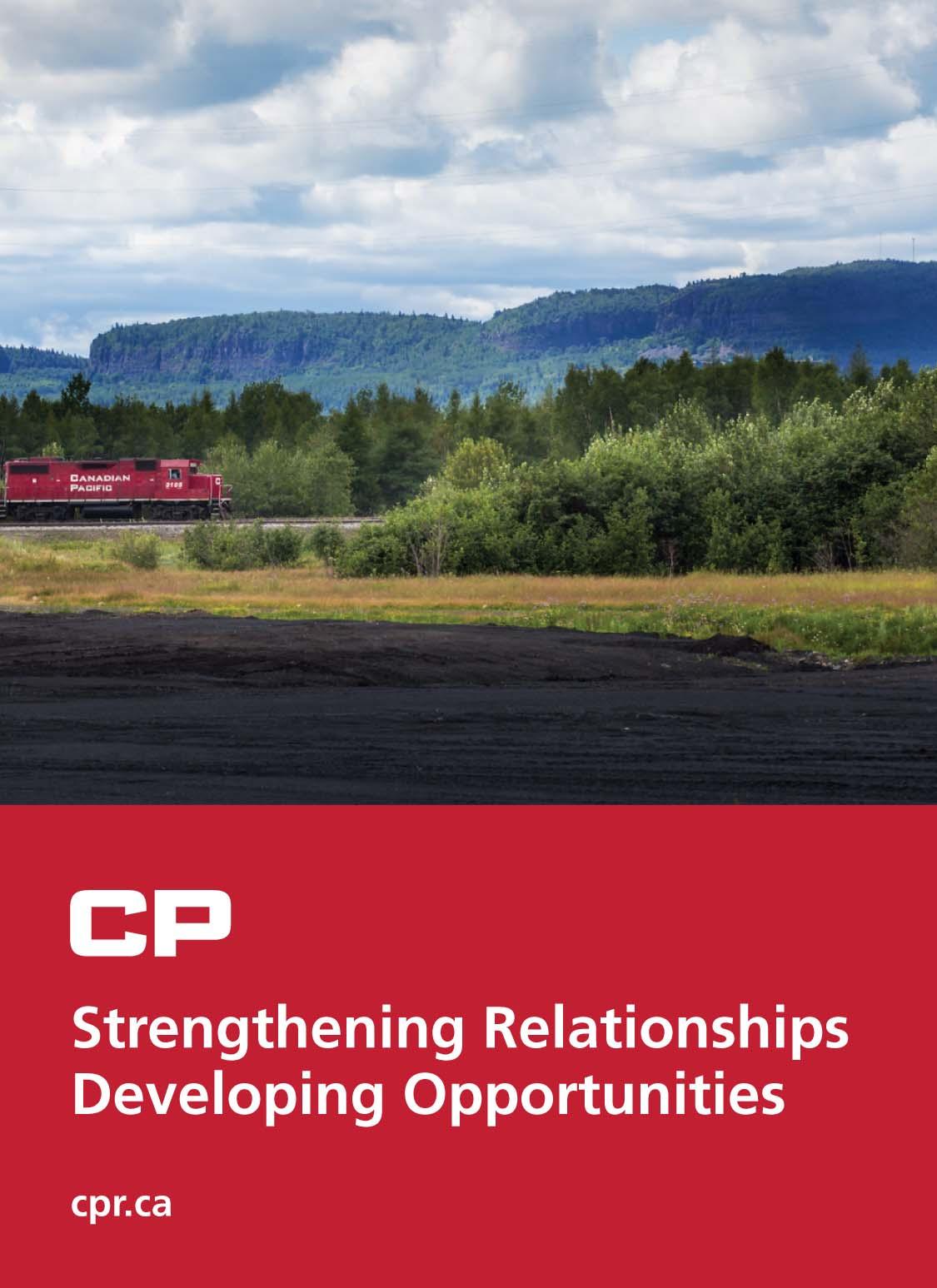

Last fall, Export Development Canada (EDC) surveyed Cando members to learn more about business activities and challenges in their communities. We’re grateful for everyone who responded. EDC uses your feedback to develop products and services that meet the needs of Indigenous businesses.
I’ve summarized four important findings below. I’m also pleased to announce that EDC will host a workshop during the 28th Annual Cando National Conference , May 16 to 19, 2022, to go in-depth on strategies for Indigenous businesses to overcome challenges and get started with exporting.
Our survey captured a trend that Paul Macedo, Cando’s director of communications, sees in many communities: “A growing number of Indigenous people, especially youth, are becoming entrepreneurs. Especially in rural areas, young people are creating businesses and employing themselves.”
I’m excited by this development. Entrepreneurship creates new economic opportunities for the entire community. Once these businesses become sustainable, they’ll generate self-determined prosperity for future generations. Indigenous entrepreneurs are also role models, who contribute to their communities by mentoring others and sharing knowledge.
Given the rise of entrepreneurship, it’s not surprising that most Indigenous-owned companies in Canada are small- to mediumsized enterprises. The highest proportion of businesses in our survey had annual sales under $100,000.
Managing the transition from start-up to sustainable business can be tough, but with the right support and knowledge, there’s lots of opportunity to grow. This post has some tips for getting started: https://www.edc.ca/en/blog/exportingchecklist-for-indigenous-entrepreneurs.html
When asked about challenges to growth, the top response was “hiring the right people.” Finding qualified employees is a problem for businesses everywhere, as COVID-19 has impacted workers’ availability and priorities. The challenge is especially tough for Indigenous businesses in rural communities.
There’s no simple solution to the hiring crunch, but I’d urge you not to overlook good people, who may lack the skills you need now, but are eager to learn. Cando recommends these organizations for help with training and upskilling your employees: Okimaw Community and HR Solutions: https://okimaw.co Spirit Omega: https://www.spiritomega.com
“Word of mouth” is an important sales channel for Indigenous businesses, showing the importance of community ties. But more entrepreneurs are using social media to broaden their reach, connect with other Indigenous entrepreneurs, and find customers.
Social media is a great way to market your Indigenous brand beyond Canada’s
borders. Combine it with an e-commerce platform, and you’re on your way to building an export business. If you create a MyEDC account, you can watch our webinar to learn more about brand building:
https://www.edc.ca/en/events/ webinar/set-your-indigenous-businessapart.html
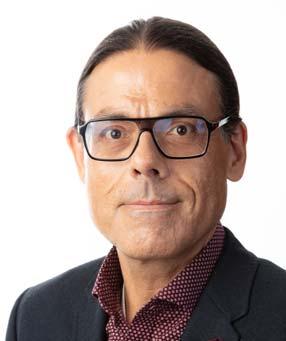

Working capital is the lifeblood of any business. Our survey found that Indigenous entrepreneurs continue to face unfair barriers when seeking business financing. EDC is working with our partners to explore new ways for Indigenous businesses to access capital more easily. For now, the EDC Export Guarantee Program may provide your business with pathways to working capital.
https://www.edc.ca/en/solutions/ working-capital/export-guaranteeprogram.html
Join me in person on Thursday, May 19, 2022, from 2:30 to 4:00 p.m . at the 2022 Cando National Conference for EDC’s workshop on preparing your business to export. Our panelists will provide practical tips on growing a startup into a sustainable, international business. I hope you will join us.
If you can’t attend, I encourage you to reach out and connect with EDC. We want you to succeed, and there’s an entire ecosystem of support available as you grow your business. Working with us gives you the opportunity to build relationships with our global network of partners and trade advisors, as well as other Indigenous businesses, associations, and financial institutions. So, let’s talk.
For more information on how we can support your exporting journey, call a trade advisor at 1-800-229-0575, or visit edc.ca/indigenous-business.
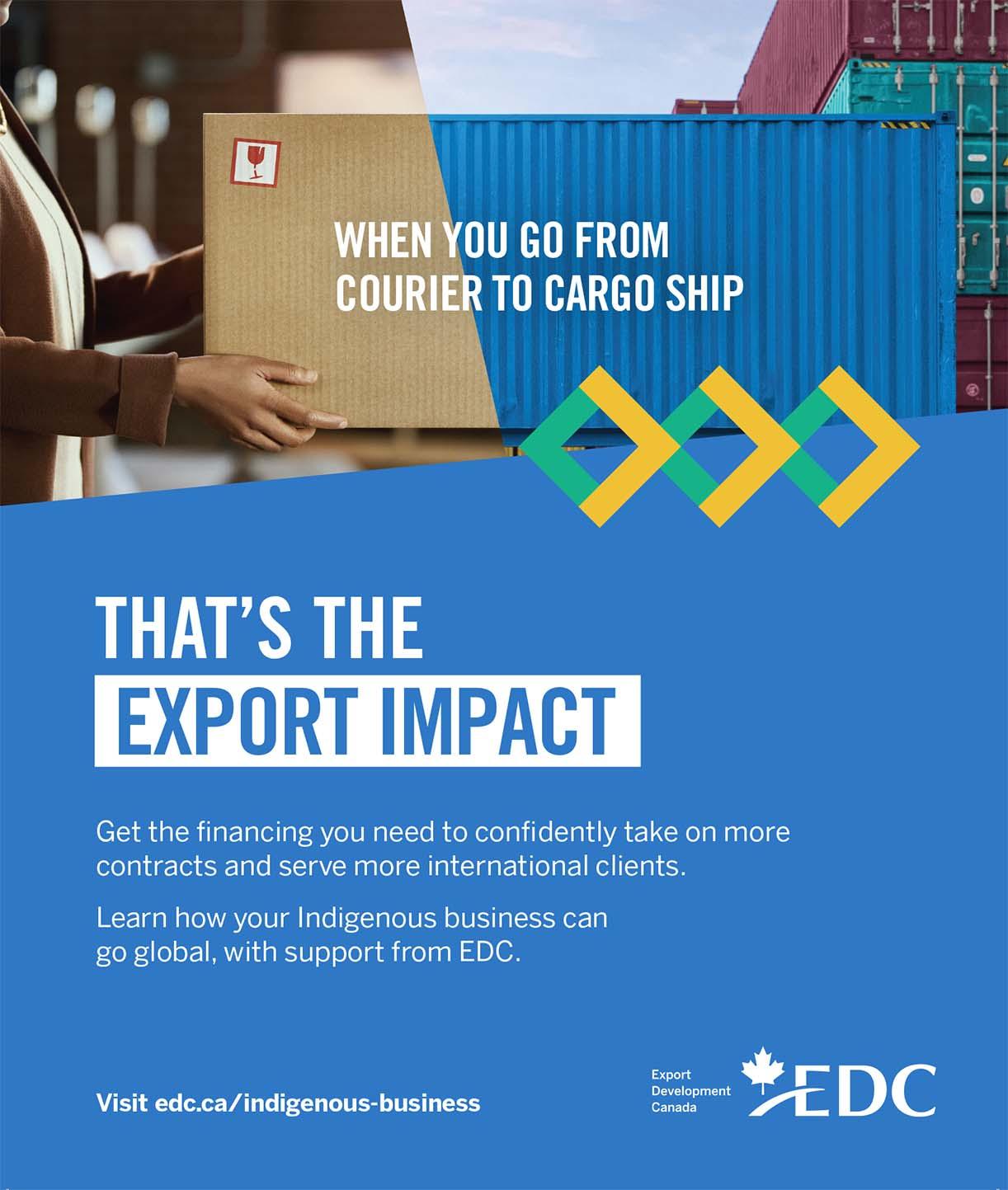
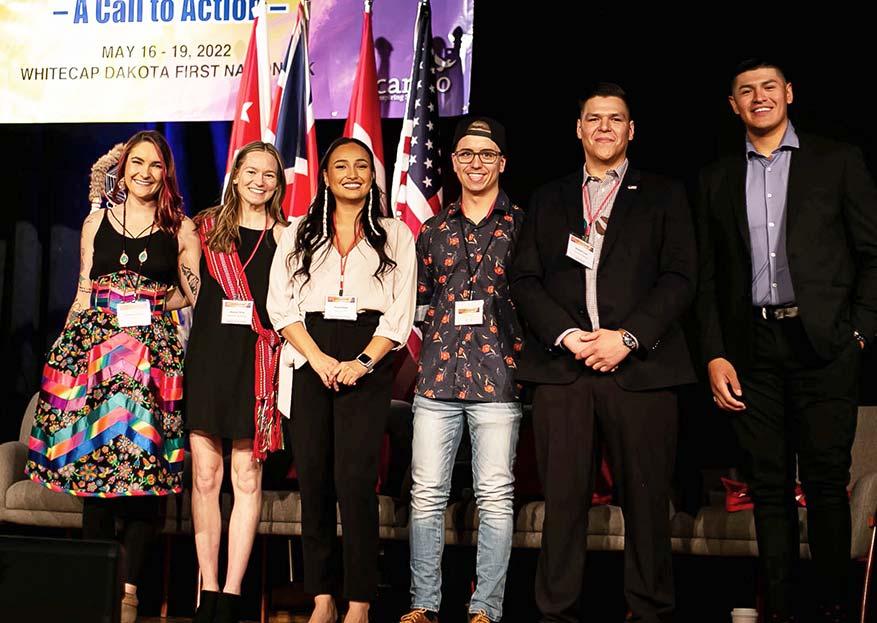

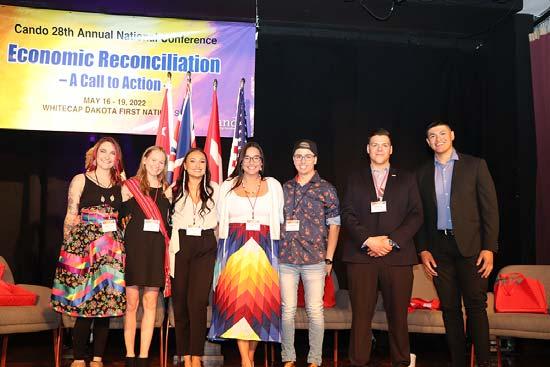

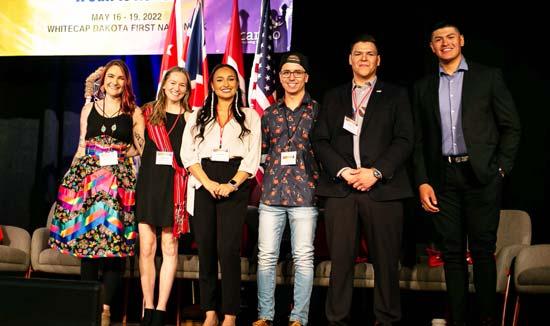

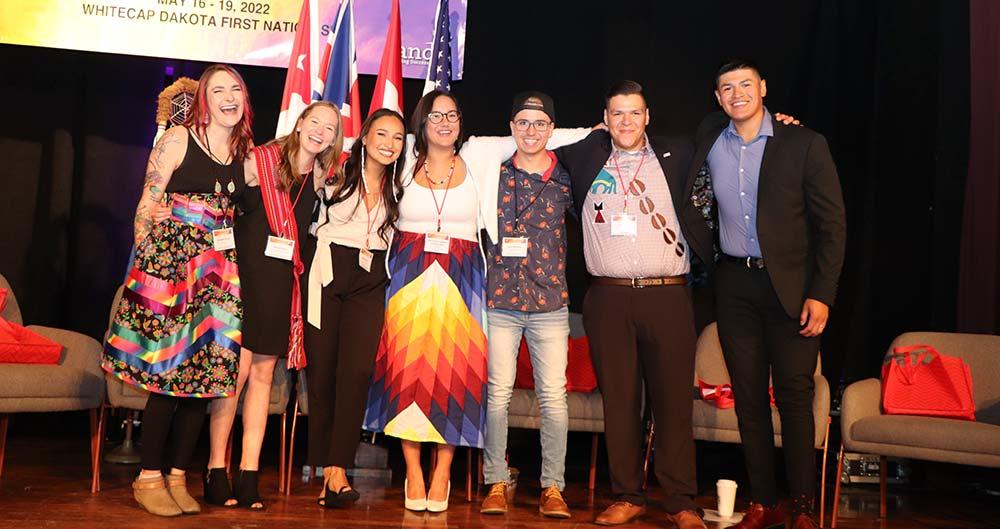

 Mackenzie Brown and Shayna Uhryn
Nolan McAllister
Mackenzie Brown and Shayna Uhryn
Nolan McAllister

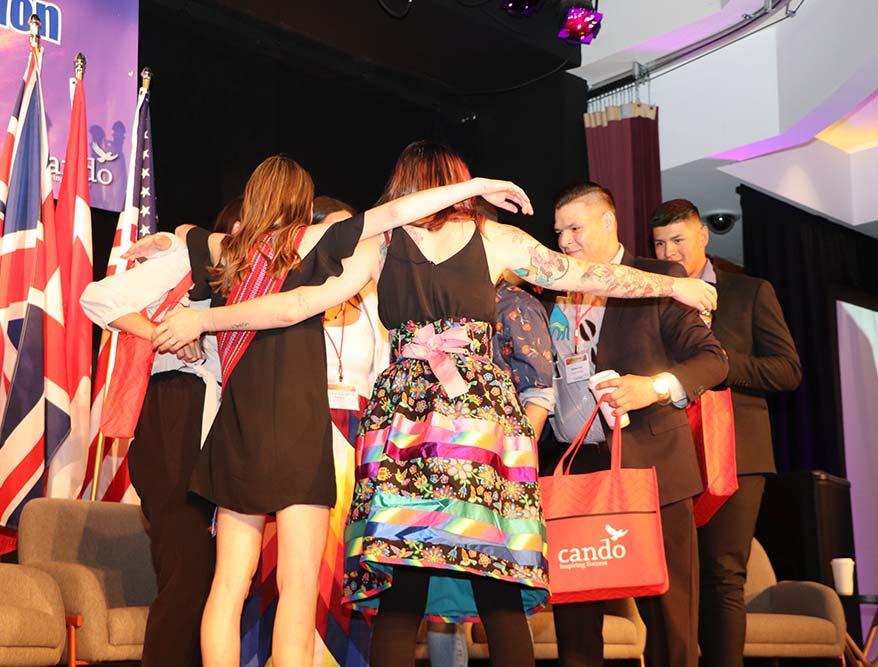

 Josh Montana
Nathan Crow
Josh Montana
Nathan Crow

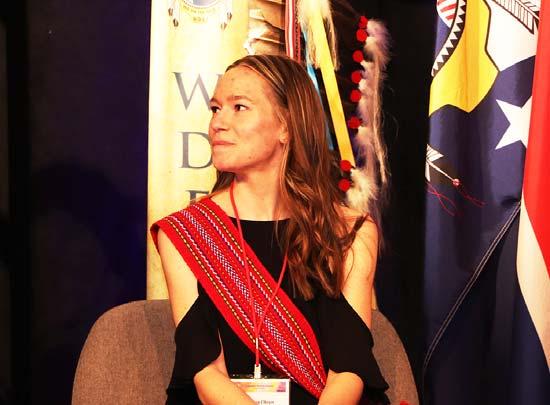
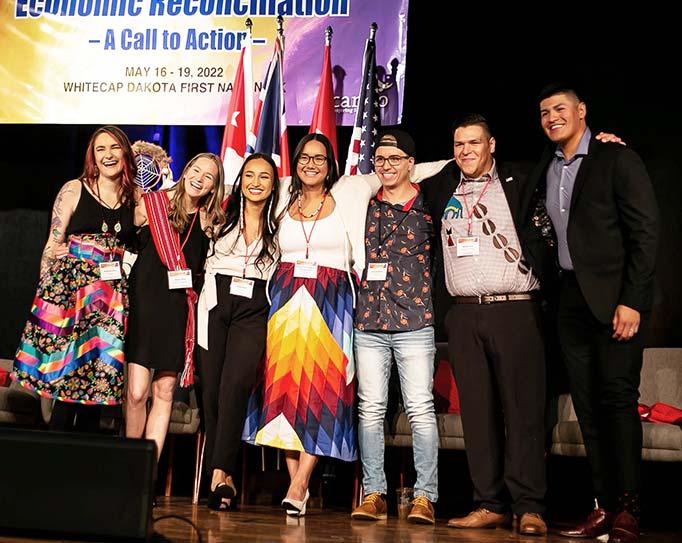
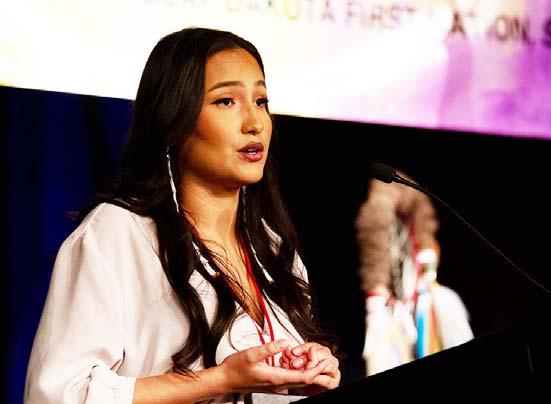 Shayna Uhryn
Shayla Raine
Shayna Uhryn
Shayla Raine
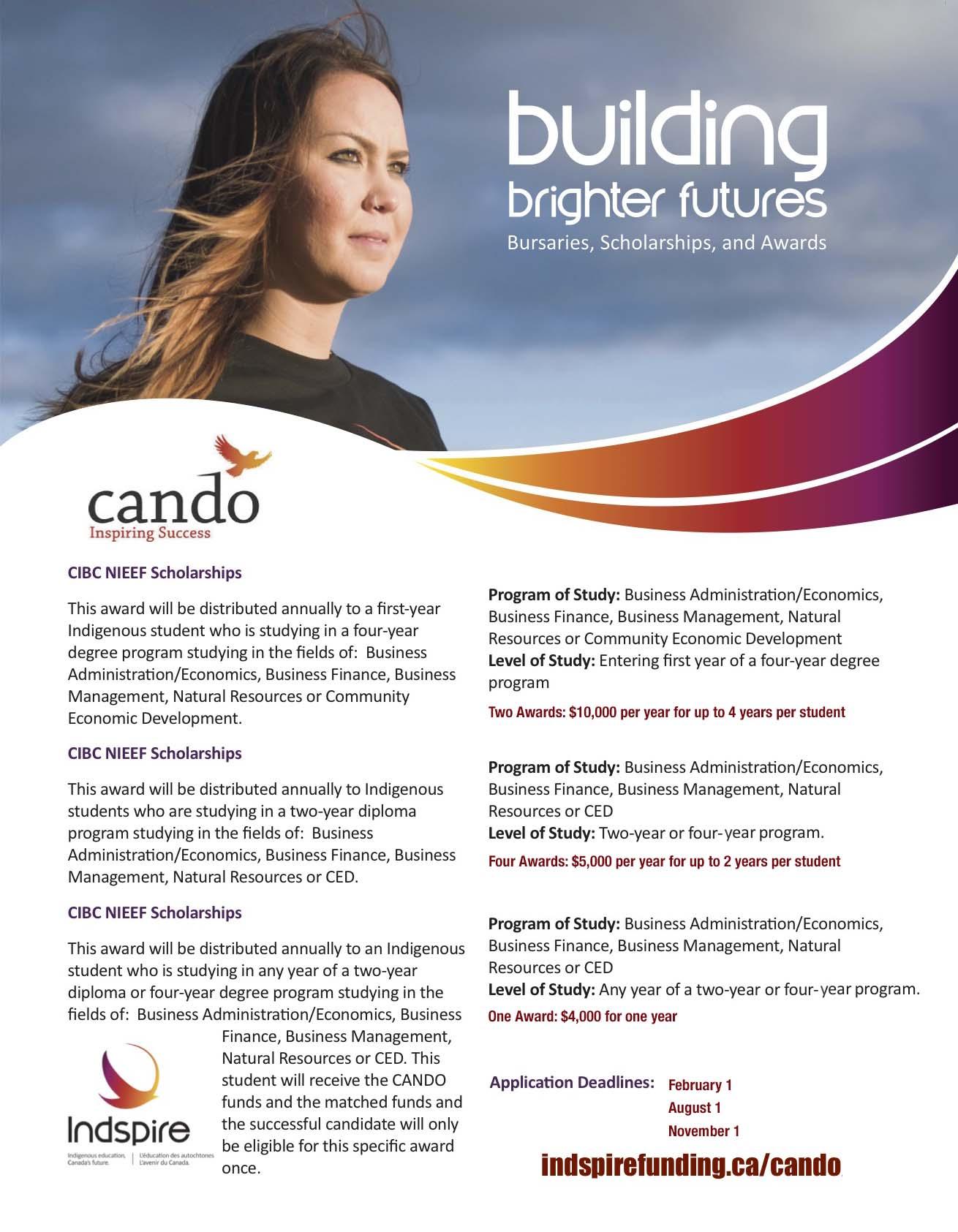
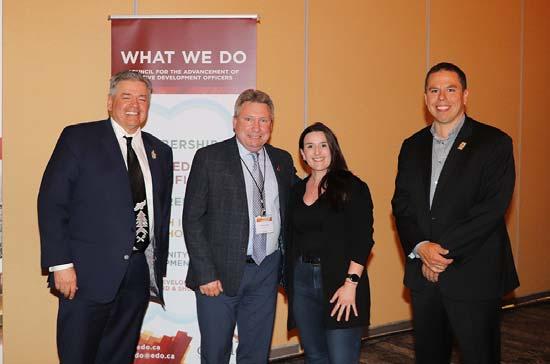
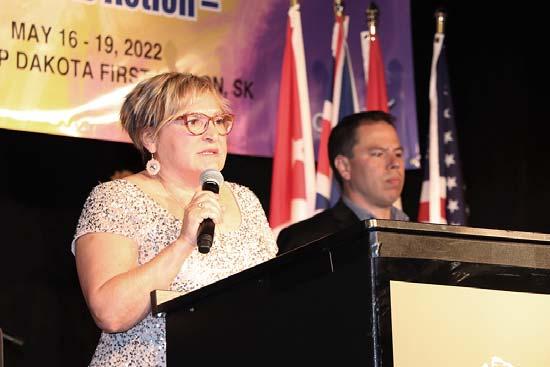
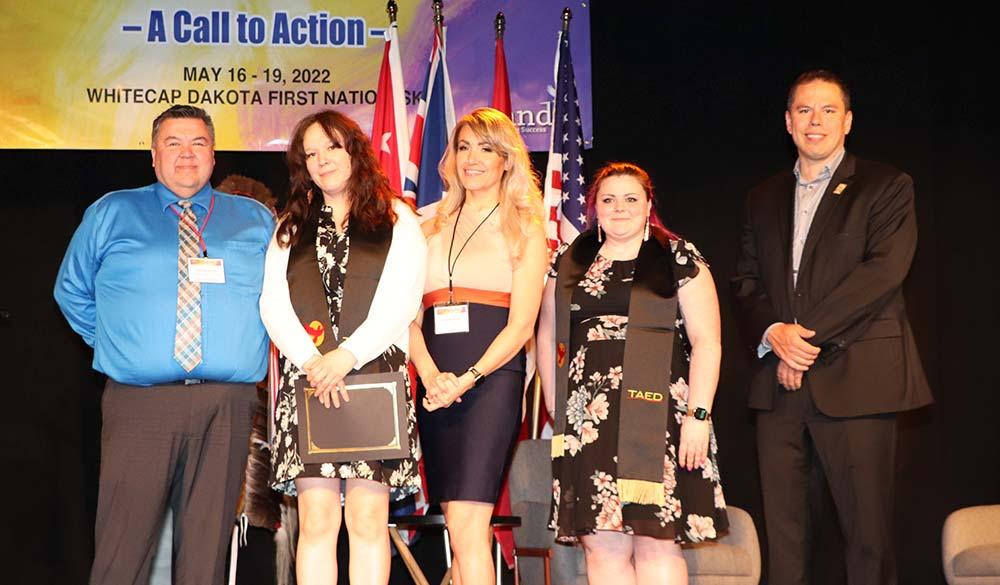


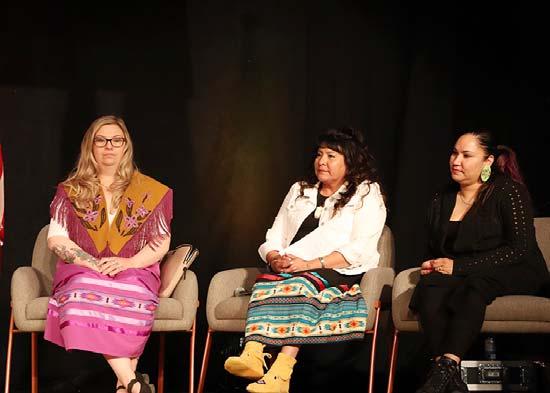
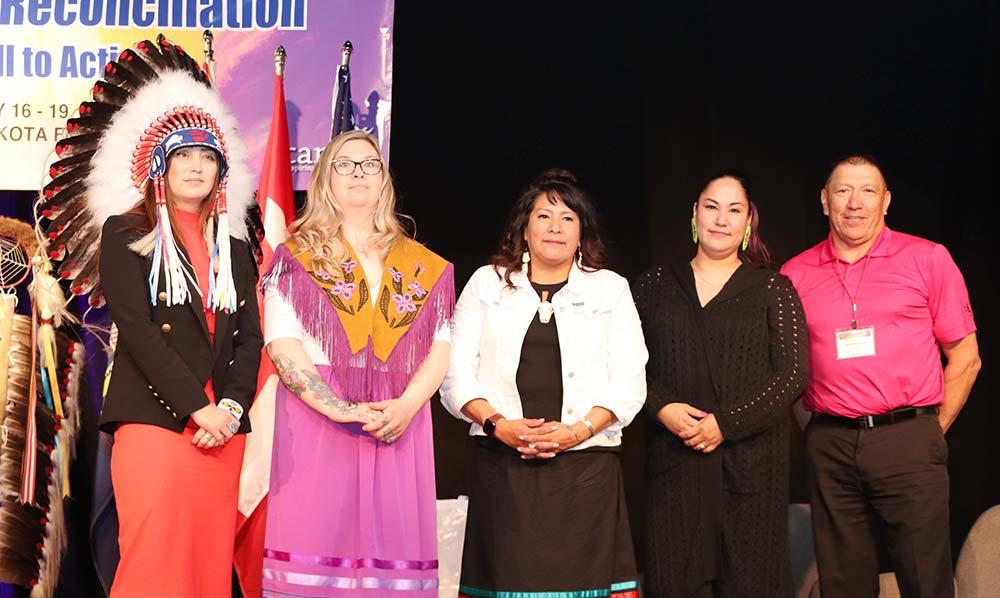






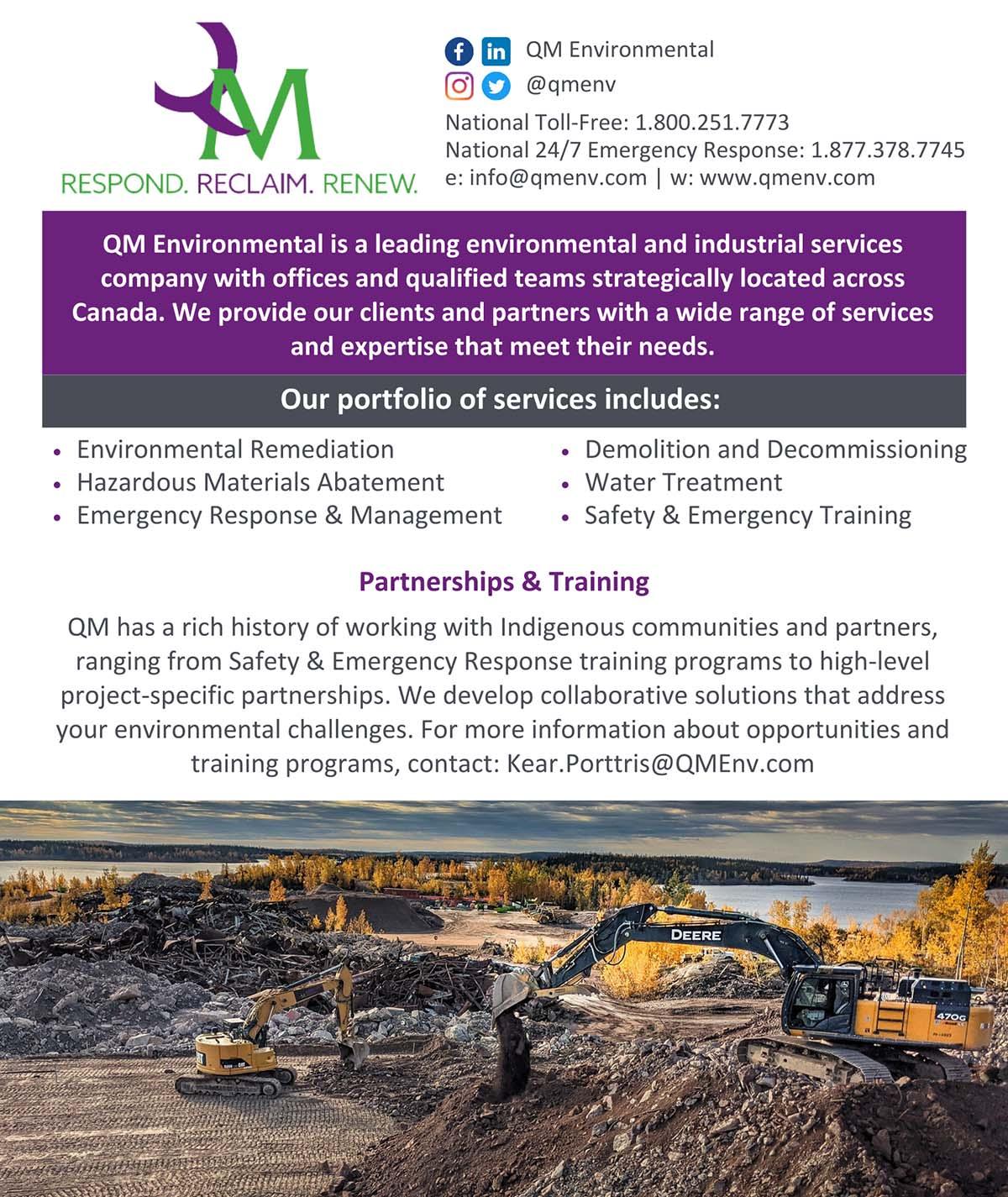





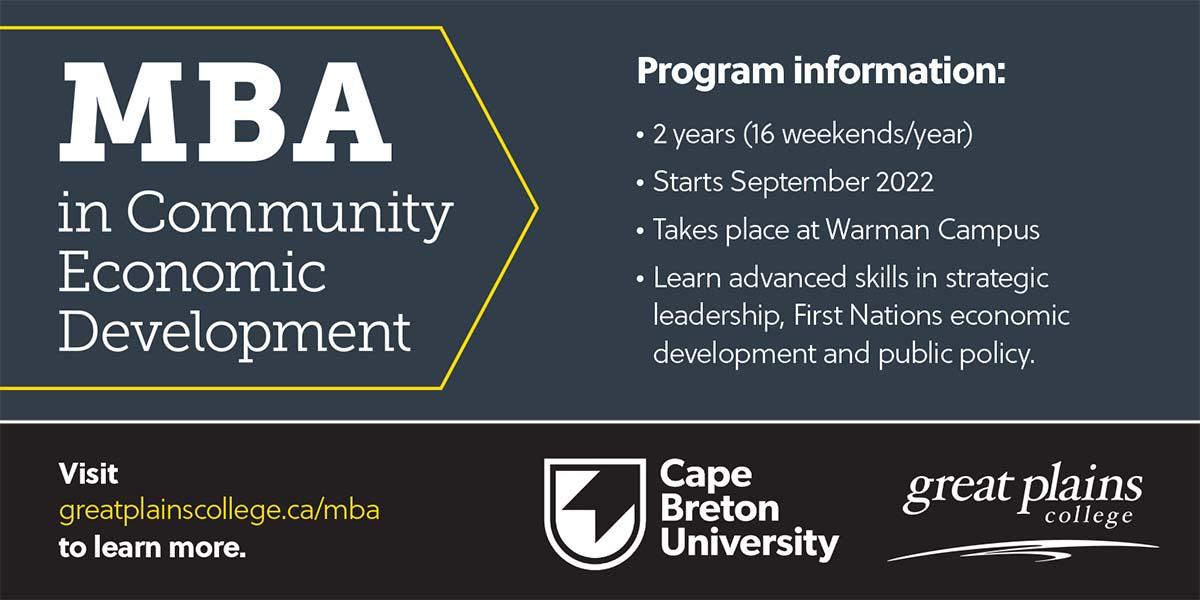

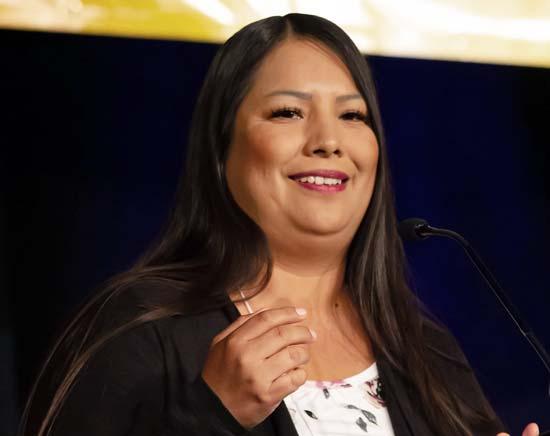

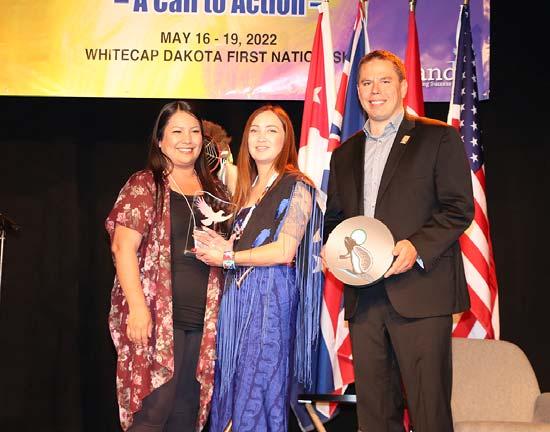
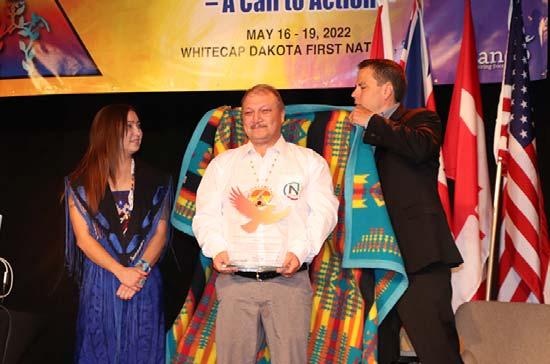

EDO of the Year
Albert
Katrina
Community Economic Developer of the Year - Winner: Nelson House Development Corporation - David Kobliski executive director for the Nelson House Development Corporation, the economic arm for Nisichawayasihk First Nation in Manitoba accepts the award. The award is sponsored by ESS Compass Group and presented by Patrick Ilangan.
Community Economic Developer of the Year - Runnerup: Meadow Lake Tribal Council (MLTC) has long been considered a model organization.The Saskatchewan-based council, comprised of nine First Nations in the province, has received what is perhaps some long overdue recognition. The award is sponsored by ESS Compass Group and presented by Patrick Ilangan.
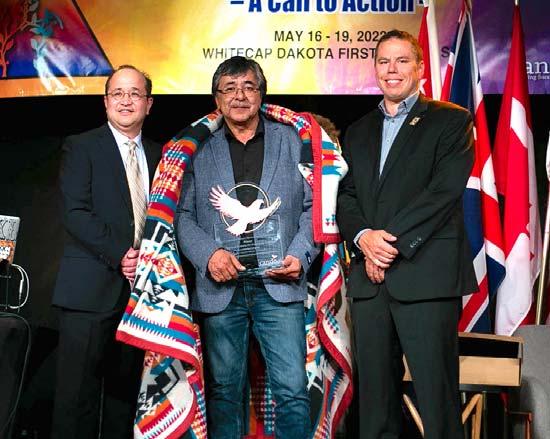


Indigenous Private Sector Business of the Year: Walker Home Construction. Leslie Walker, a member of Champagne and Aishihik First Nations in Yukon accepts the award for his Whitehorse-based business. The award is sponsored by Accosys Consulting Services and presented by David Acco.

Indigenous Private Sector Business - Runnerup: The TIPI Group of Companie. Award accepted by Janice Gladue on behalf of Tipi. This award is sponsored by Accosys Consulting Services and presented by David Acco.
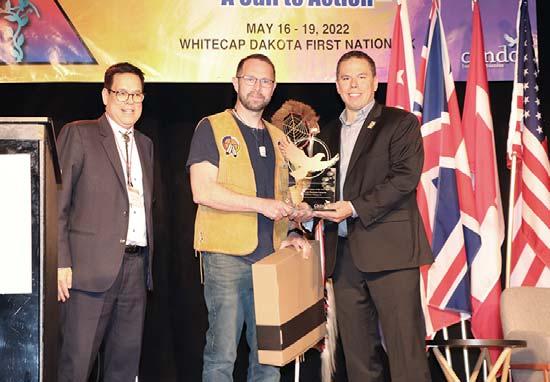
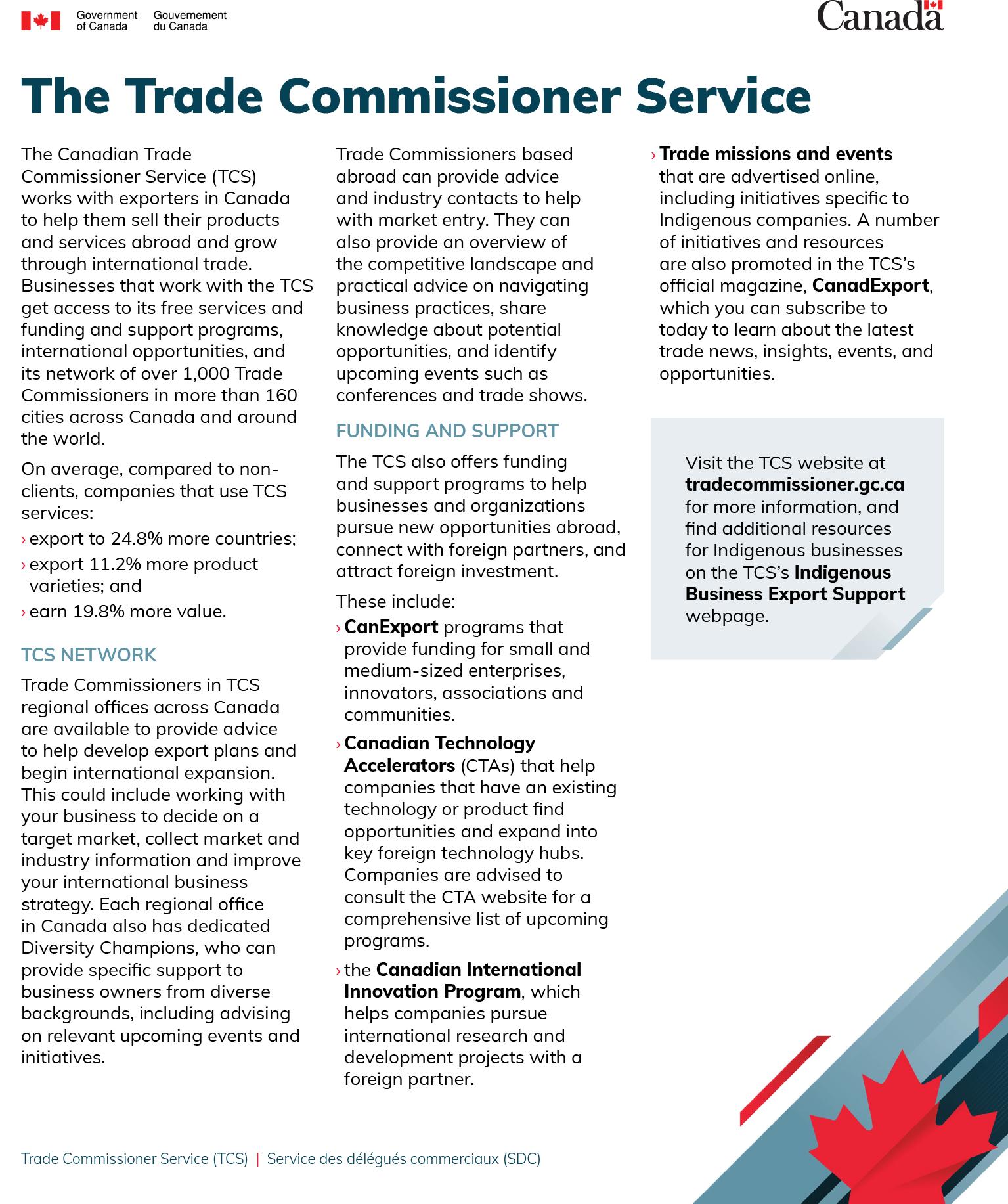
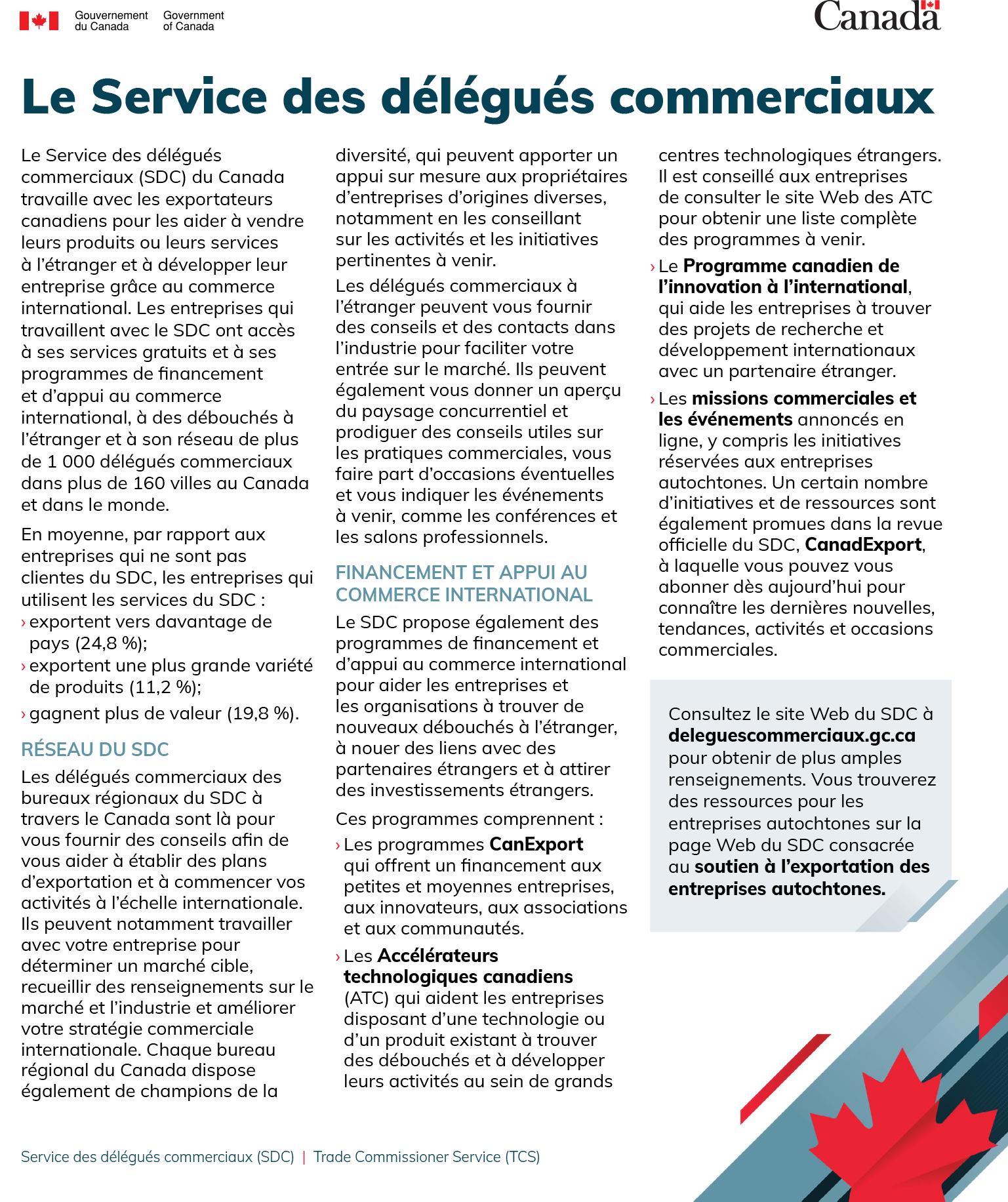
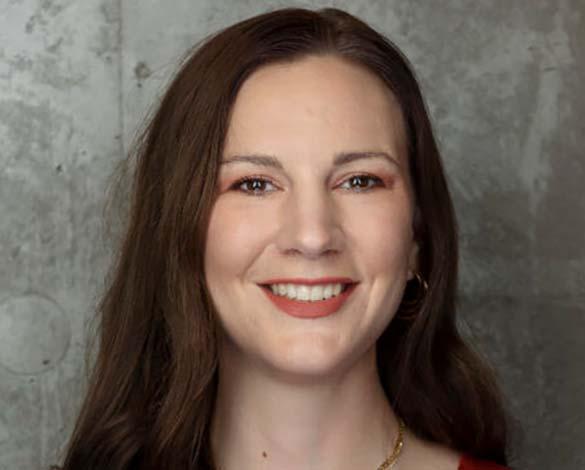 By Sam Laskaris Cando Writer
By Sam Laskaris Cando Writer
Officials with Co-operatives First have come up with a new way to further their mission.
The Saskatoon-based organization promotes and supports business development in rural and Indigenous communities, primarily throughout the four western Canadian provinces.
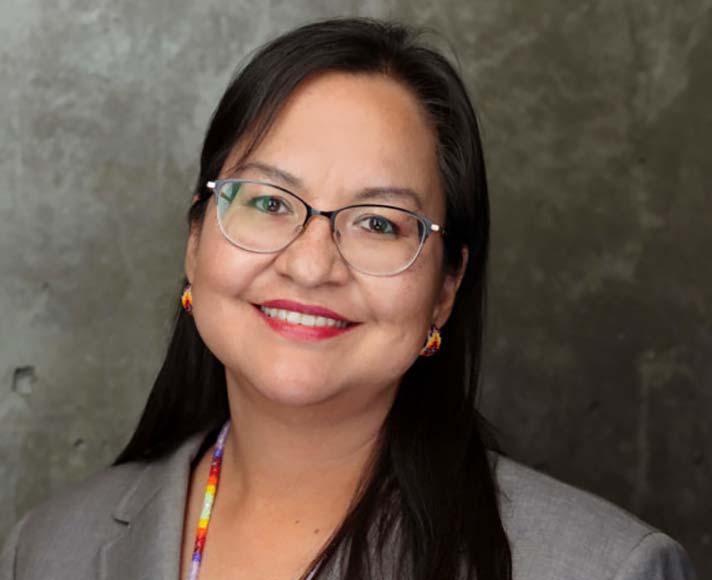

One of the latest ways Co-operatives First officials plan to get their message out is via the Regional Synergies Webinar Series.
Throughout this series those who tune in for the free online webinars will hear about business and community leaders that have forged regional partnerships.
Co-operatives First hosted the first event in this series on Dec. 8. That event featured representatives from the South Island Prosperity Partnership (SIPP).
“The group we had was super engaged,” said Heather Hallgrimson, who is Co-operatives First’s business development lead. “People had such great questions that they were asking.”
In fact, Hallgrimson said organizers had to scrap the prepared questions they had for the hosts since webinar participants had plenty of their own asks.
SIPP is an alliance of more than 70 public and private sector partners in Greater Victoria. Partners include nine First Nations, 11 local governments, three post-secondary schools, nine industry associations and non-profits and more than 30 employers.
SIPP representatives who spoke at December’s webinar were Elysia Glover and Kear Porttris. Glover is SIPP’s manager of strategic partnerships while Porttris is a SIPP board director and the director of Indigenous relations from QM Environmental.
Co-operatives First’s webinar series will continue to explore rural and Indigenous partnerships throughout western Canada.

Continued from page 30.
The goal will be to learn how members of communities and their neighbours join forces to share resources and knowledge. The plan of these partnerships is to have an entire region benefit as opposed to just one community.
Hallgrimson is teaming up with her colleague, Trista Pewapisconias, who is Co-operatives First’s Indigenous relations lead, to organize the webinar series.

“It went really well,” Pewapisconias said of December’s webinar. “And we want this to be an ongoing conversation. We just want to promote both Indigenous and municipal partnerships.”
Despite its moniker, Pewapisconias, a member of Little Pine First Nation in Saskatchewan, said discussions in the series do not have to be focused on co-ops.
“They don’t have to be a co-op model, just a partnership within your region,” she said.
Pewapisconias said Co-operatives First officials are still trying to finalize dates and speakers for upcoming events in the series.
She added the next event will in all likelihood be at some point in March. And then the plan is to stage one another event later on in 2022.
“The need for these webinars came about based upon feedback from groups we had dealt with,” Pewapisconias said.
She added since she focuses her work on Indigenous groups and Hallgrimson’s efforts concentrate on nonIndigenous organizations, it made sense to merge the two.

“We just said let’s create a space so that other people can come and talk together,” Pewapisconias said.
A couple of dozen participants took part in December’s webinar. Besides municipal representatives, also attending were individuals in various economic development positions.
Following presentations from the two SIPP reps, the inaugural webinar in the series allowed for discussions in various breakout rooms.
“We were able to group people together based on where they’re at (with their partnership ventures),” Pewapisconias said. “It was really positive being able to create those breakout sessions. We had a lot of positive feedback.”
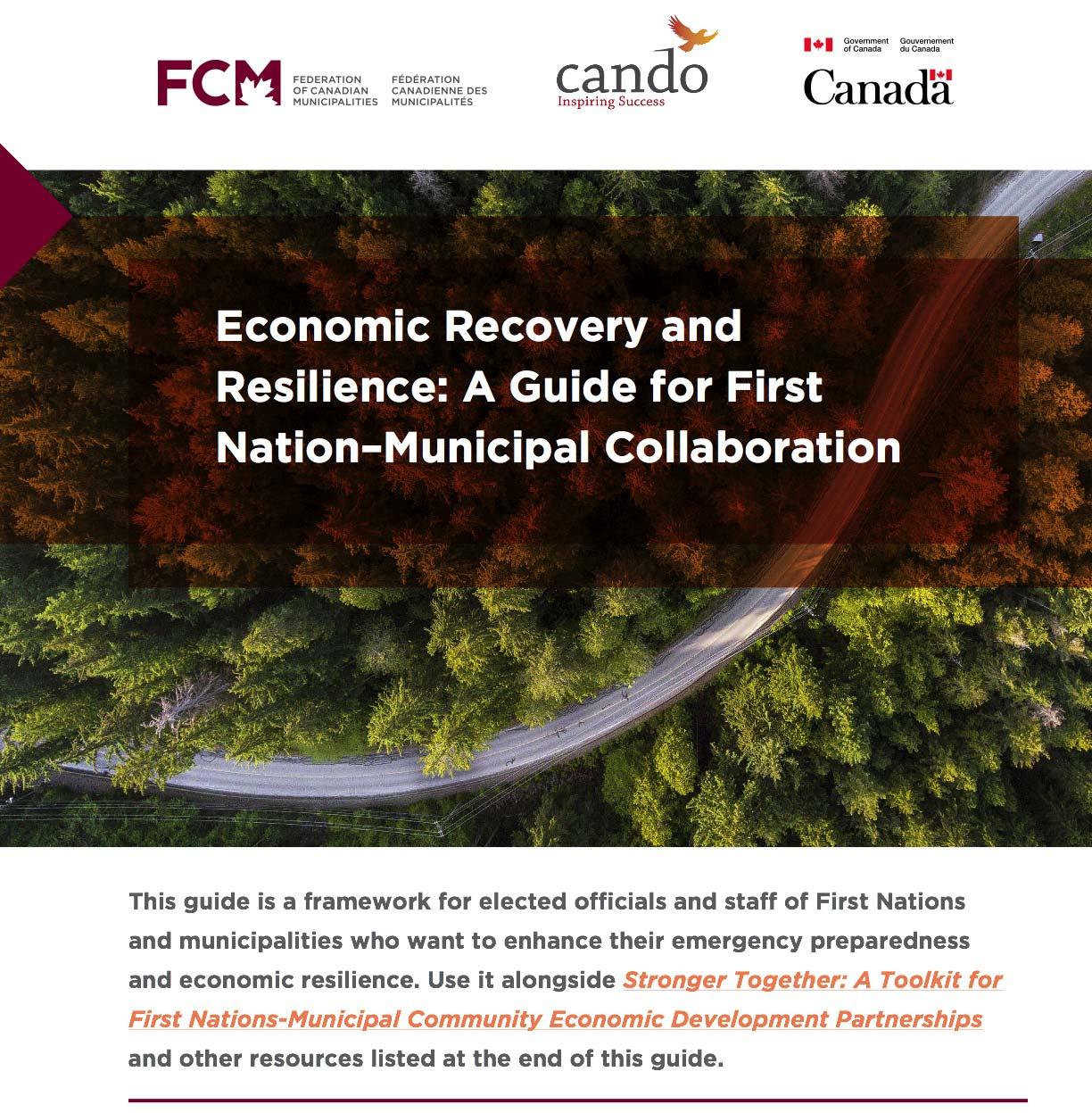
Disasters have increased in frequency and intensity in recent years. Across borders and jurisdictions, natural disasters and economic impacts of COVID-19 have thrust emergency preparedness and economic recovery onto government radars. First Nation and municipal governments have unique jurisdictions and different relationships and responsibilities to their membership or citizens; although, similarly they often lack the fiscal and human capacity for effective preparedness, response, and recovery.
The First Nation – Municipal Community Economic Development Initiative (CEDI) has created this guide with the intention to support First Nations and municipalities to collaborate

on preparing for, responding to, and recovering from disasters of any kind. It establishes a framework, bolstered by best practices, for communities who want to begin or strengthen emergency management partnerships.
Our sincere gratitude to the peer reviewers, case study communities and subject-matter experts (please find these individuals listed on p. 15 of the Guide) who generously shared their knowledge and experiences with us. A special thank you to our contract writer, Josh Regnier.
Find this Guide here: http://www.edo.ca/downloads/cediguide-economic-recovery.pdf
Did you know that startups graduating from accelerator programs have a 23% higher survival rate than their counterparts? Mentoring and coaching are foundational to accelerator programs. Entrepreneurs benefit from ‘been there-done that’ expertise which translates into success.
It doesn’t matter what stage your startup is at, whether you’re searching for product-market-fit, launching your product or landing your first customer, we’re willing to bet you’d love to reach your goals as soon as possible. And that’s exactly what an accelerator program helps you do: fast-track progress.
In this article, we’ll cover the top 5 benefits of accelerator programs:
1. Speed up your progress
2. Grow your network 3. Gain clout and investor attention
4. Decreased costs and exclusive perks
5. Avoid costly mistakes
Accelerator programs can be fixed-term, cohort-based programs that support early-stage, growth-driven companies through education, mentorship, and financing. But not all accelerator programs are the same. There are three main types of accelerator programs:

• Open Innovation Programs invite startups to set up shop at a large corporation. Through this partnership, startups receive financial resources and guidance.
• External Corporate Accelerator Programs partner companies with third-party accelerators for the purpose of getting funding. Integration opportunities and collaboration are generally provided in return.
• Innovation Outposts are a dedicated physical office staffed by innovation professionals. Their primary job is to do market analysis and identify new trends, and based on this research, they create innovation programs.
At Innovate BC, our accelerator program falls into the external corporate accelerator programs.
And good news – you can access the program from anywhere in BC. Our program—the Venture Acceleration Program—is delivered throughout the province of BC by delivery partners in different regions. If this sounds like something you might be interested in, keep reading to uncover the top 5 ways joining an accelerator program will benefit your startup.
Learn more about the Venture Accelerator Program: https://www.innovatebc.ca/programs/mentorship/

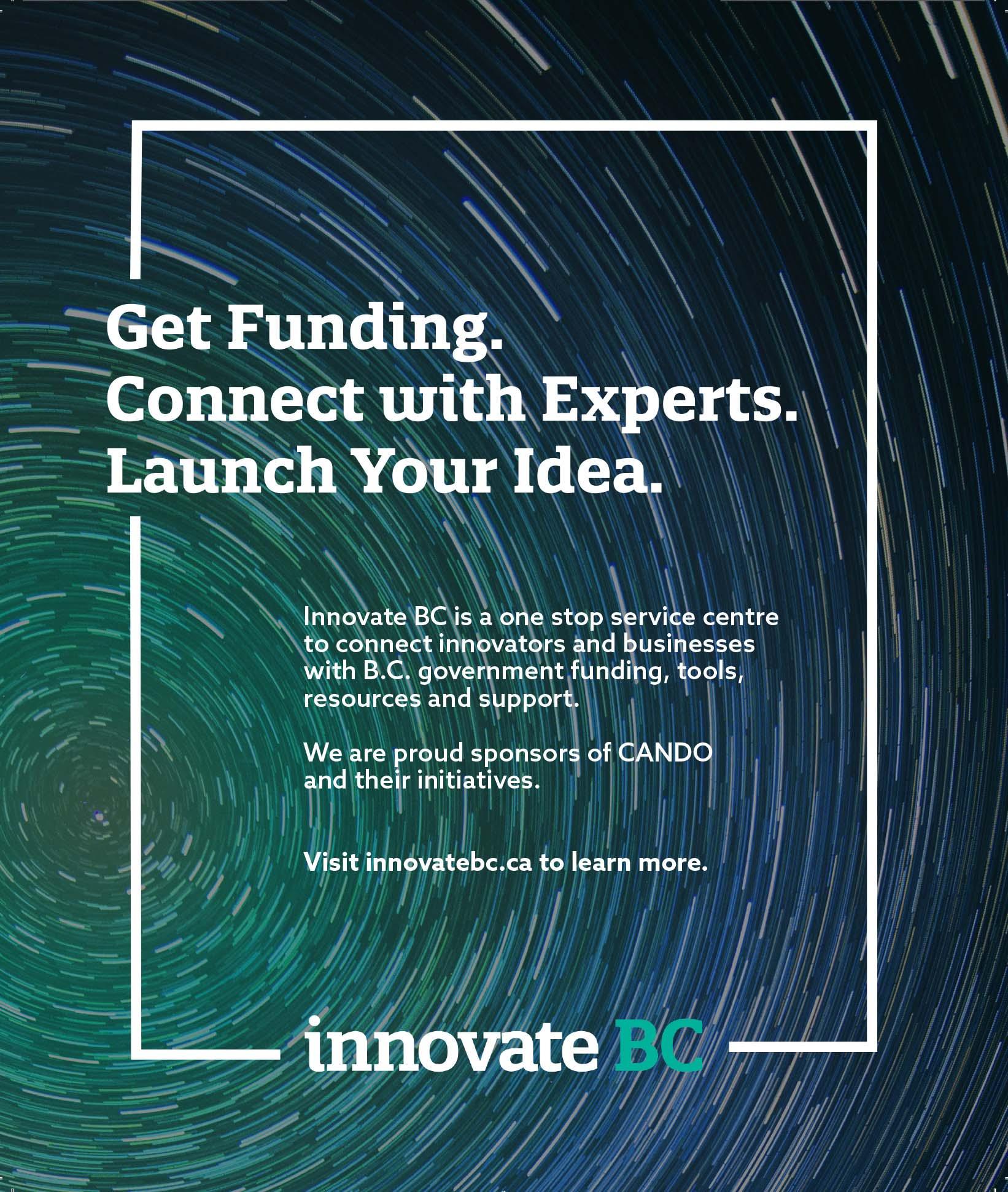
Continued from page 20.
You’ll have an expert work with you on your business plan, prototyping, marketing, etc. to set you up for success.
Since you’ve got a coach guiding you through the process of starting and growing your business, you’re cutting out the time it would take to learn these things on your own. Not to mention the cost associated with countless phases of trial and error. You’ll learn where and how to best allocate resources and have your business turning a profit much sooner than if you were to go it alone.
#2:
Accelerator programs are hot spots for up-and-coming tech companies. By being a part of one you’ll also be part of a community of entrepreneurs and founders. Entrepreneurs need to find partners, customers, employees and other players to help them build their businesses. Getting the chance to talk to peers who have faced similar challenges and learn how they overcame them is crucial to success. According to Co-Founder and CEO of Techstars, David Brown, companies emerge from accelerator programs and†do truly amazing things when their founders have been able to leverage the value of the associated network.
Investors are drawn to accelerators in the hopes of discovering the next, big innovation. And many attend the demo days. This is where you showcase your company for an audience. From the investor’s point of view, they’re more
likely to see a return on their investment when a startup has benefited from the expertise of someone who has successfully launched their own company. A recent article from the Harvard Business Review cited a comparison between graduates of top accelerators with similar startups who instead raised angel funding. What they found was that the accelerator graduates were more likely to receive their next round of financing significantly sooner.
Did you know that a lot of accelerators include office space as part of their program? If you need a workspace but don’t have the funds to rent an office, this is an excellent benefit of accelerator programs. This will often look like a coworking space with boardrooms available for booking. But there are also private offices and labs available at some of these tech and innovation hubs. This is one example of how you can decrease overhead costs. You can also access services the accelerator offers at volume rates and access equipment or hardware by sharing instead of buying.
Also, many large service providers partner with accelerators to help them offer programs that are tailored for small businesses. We’re talking about programs like Microsoft for Business and HubSpot for Entrepreneurs. Program participants are given access to their suite of software, business and marketing tools at a significantly discounted rate.
We’ve come full circle, and it bears repeating, the foundational component
of accelerators is ‘been there – done that’ experience. There’s a reason why startups who graduate from accelerator programs have a 23% higher survival rate than their counterparts.
The ability to lean on resources that have been through it before to gives you:
1. Line of sight
2. A safe space to talk about what keeps you up at night
3. An outlet to clear up mental space and reduce anxieties
4. Time and energy saved by not having to grind through problems on your own
But most of all, working with an expert helps you avoid costly mistakes. Imagine reducing the amount of trial and error while starting your business or launching your new product. That’s a significant cost savings. Instead, you’ll get advice from someone who can tell you how to do it right from the get-go. Don’t forget about the revenue you’ll gain by being able to get to market sooner.
Did you know that there’s a network of tech accelerators in BC? The BC Acceleration Network offers all of the above benefits to your tech startup and can be accessed from almost anywhere in the province.
Innovate BC oversees the BC Acceleration Network and the delivery of the accelerator program. We want to ensure all entrepreneurs and innovators across the province have access to this resource so together we can continue to grow strong businesses and a prominent BC innovation economy.
Learn more about the BC Acceleration Network and apply today: https://www.innovatebc.ca/ programs/mentorship/
www.innovatebc.ca/programs/mentorship/

